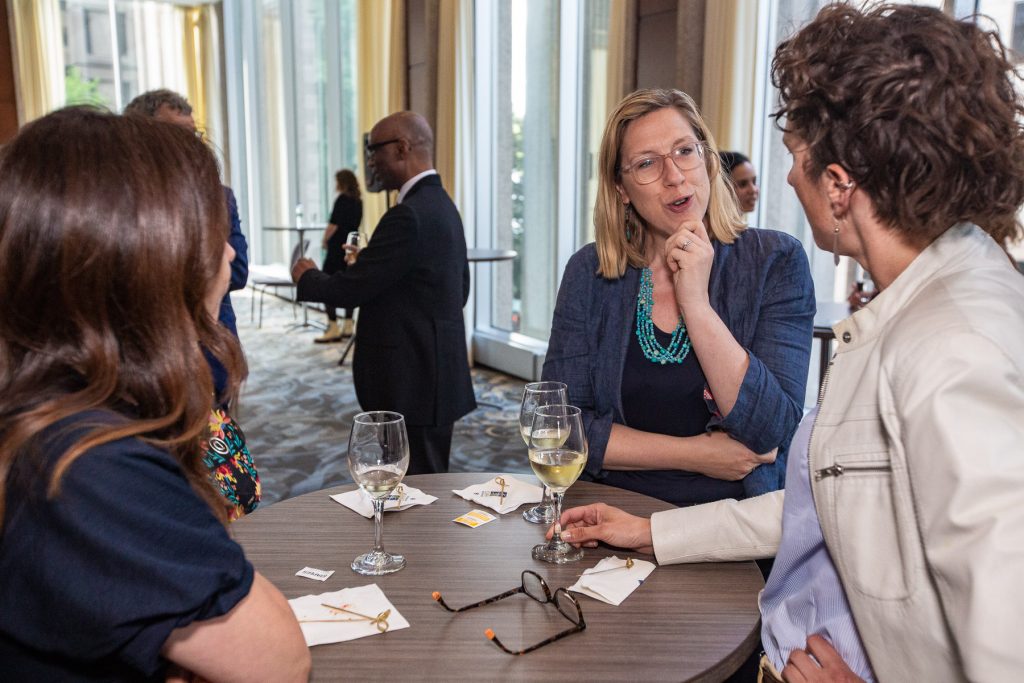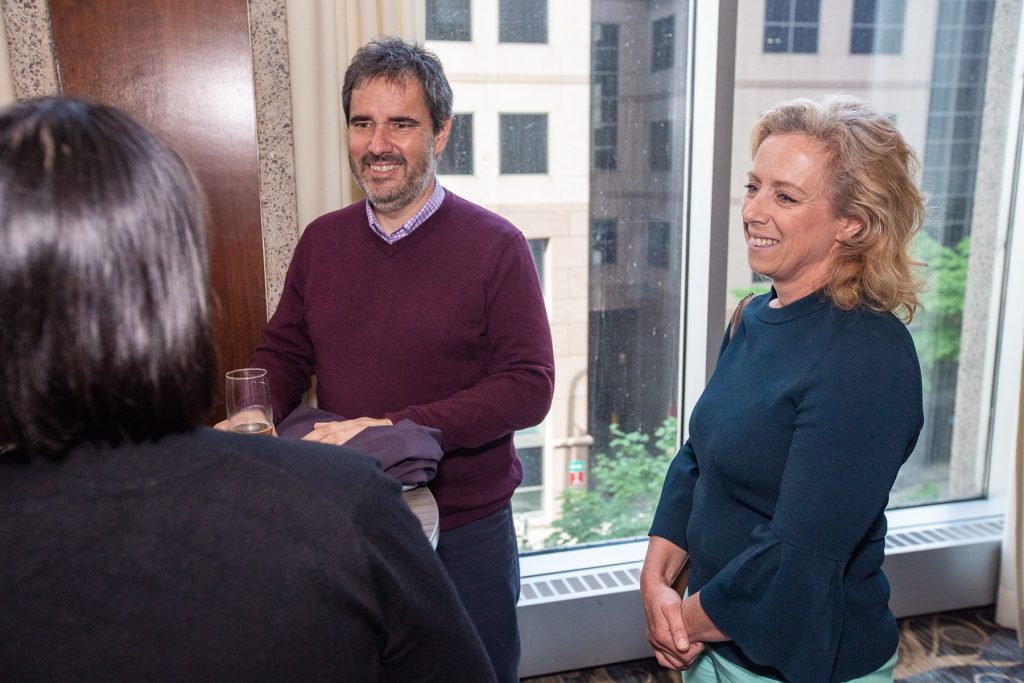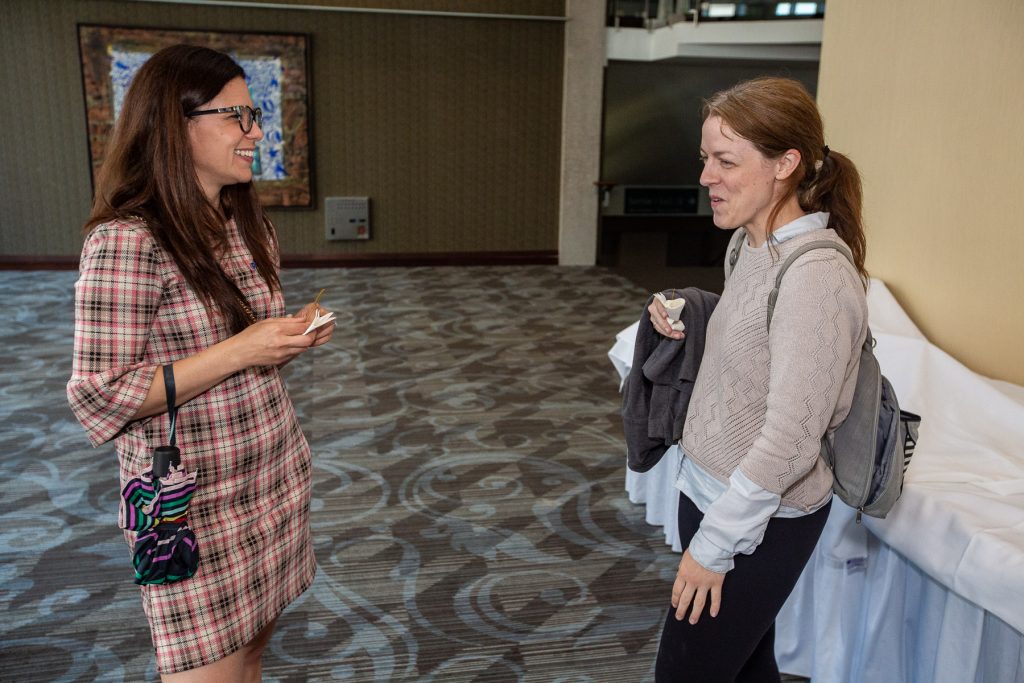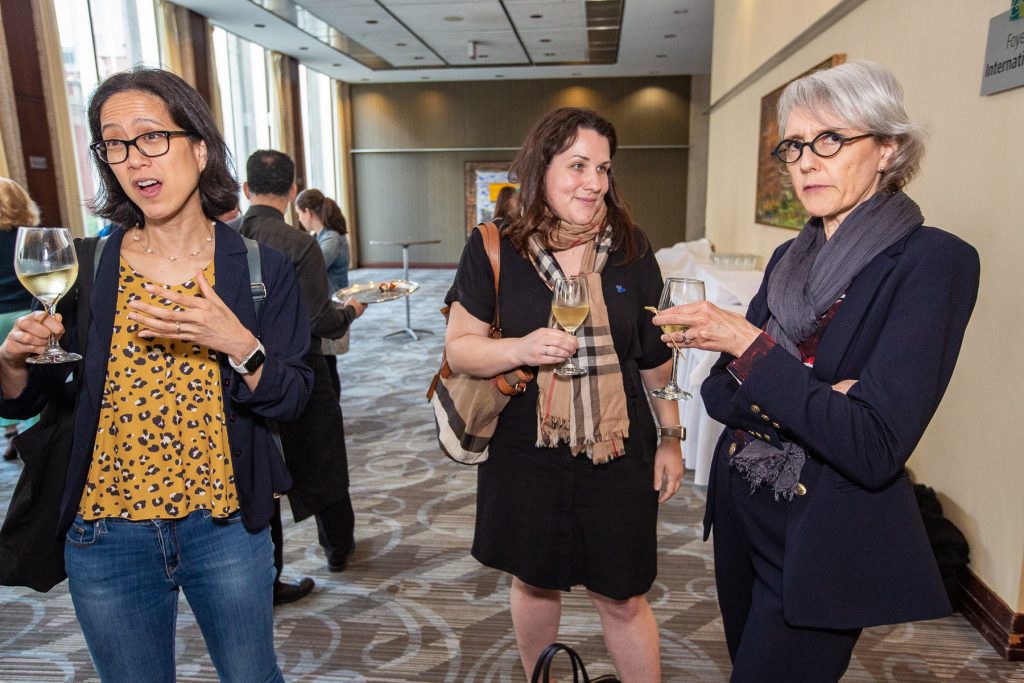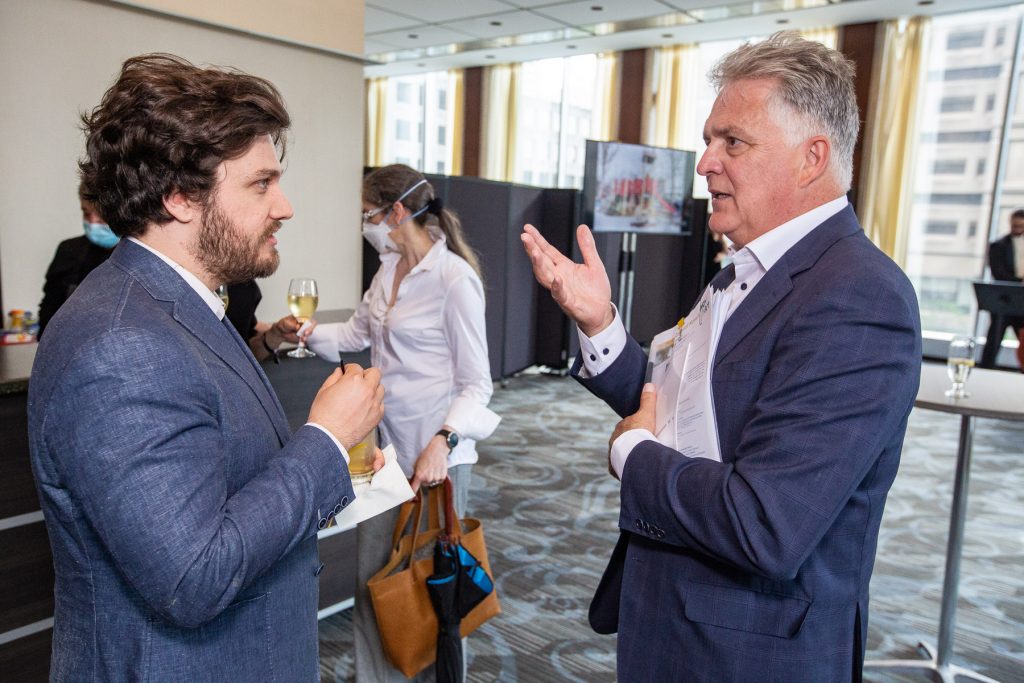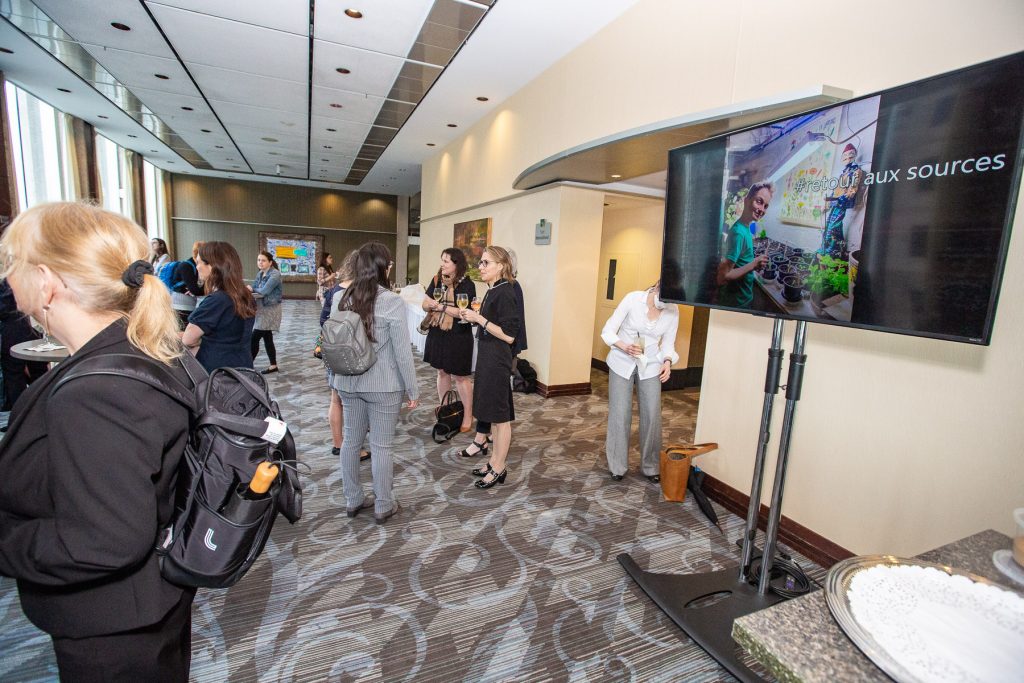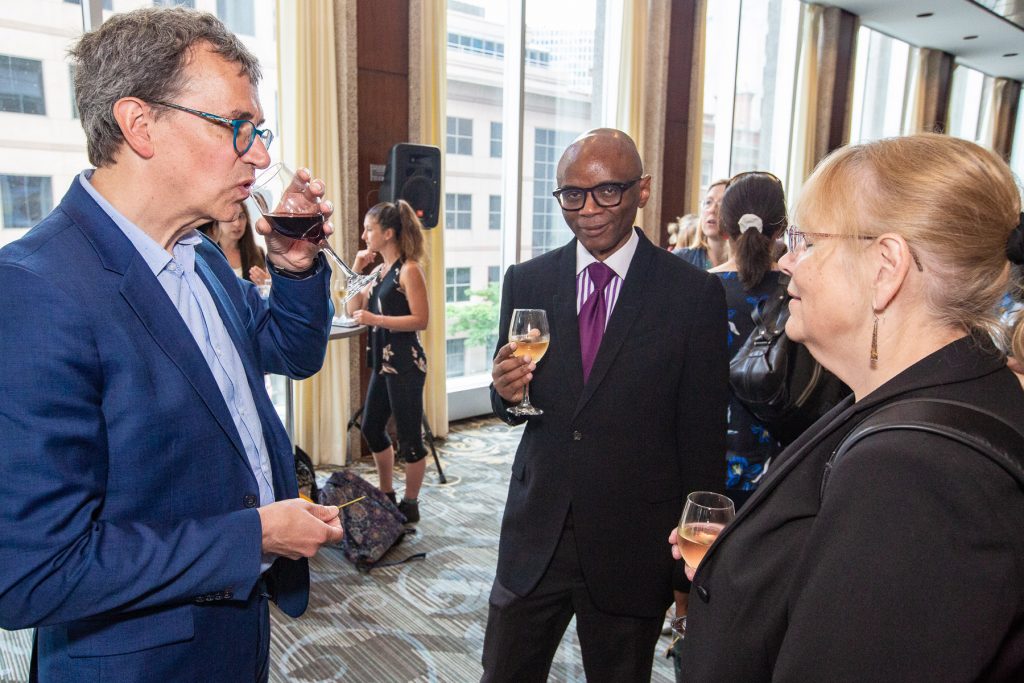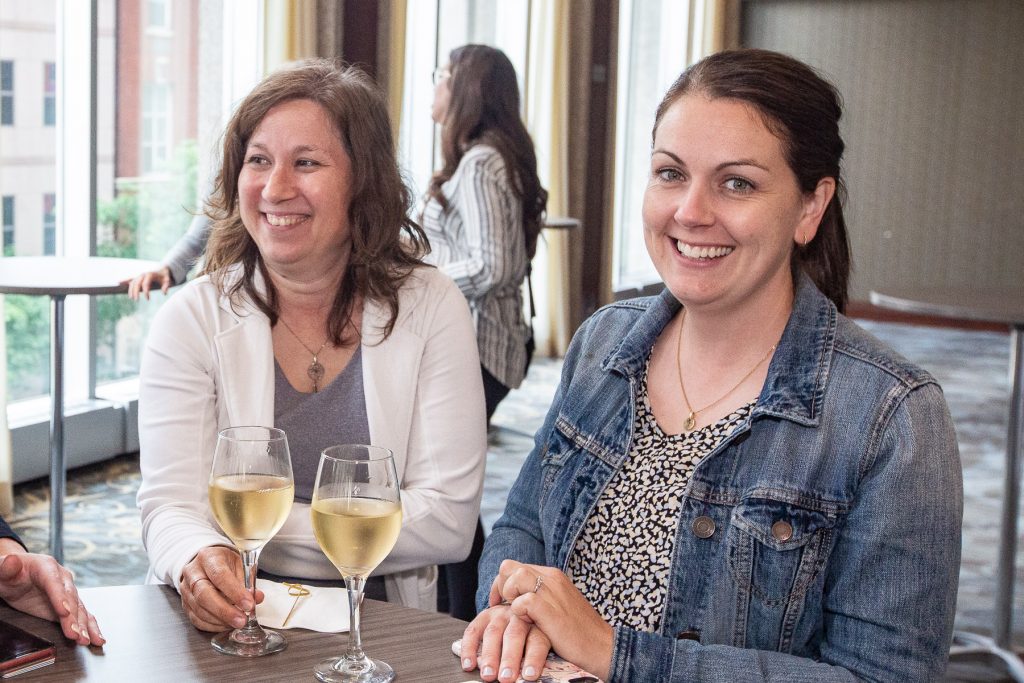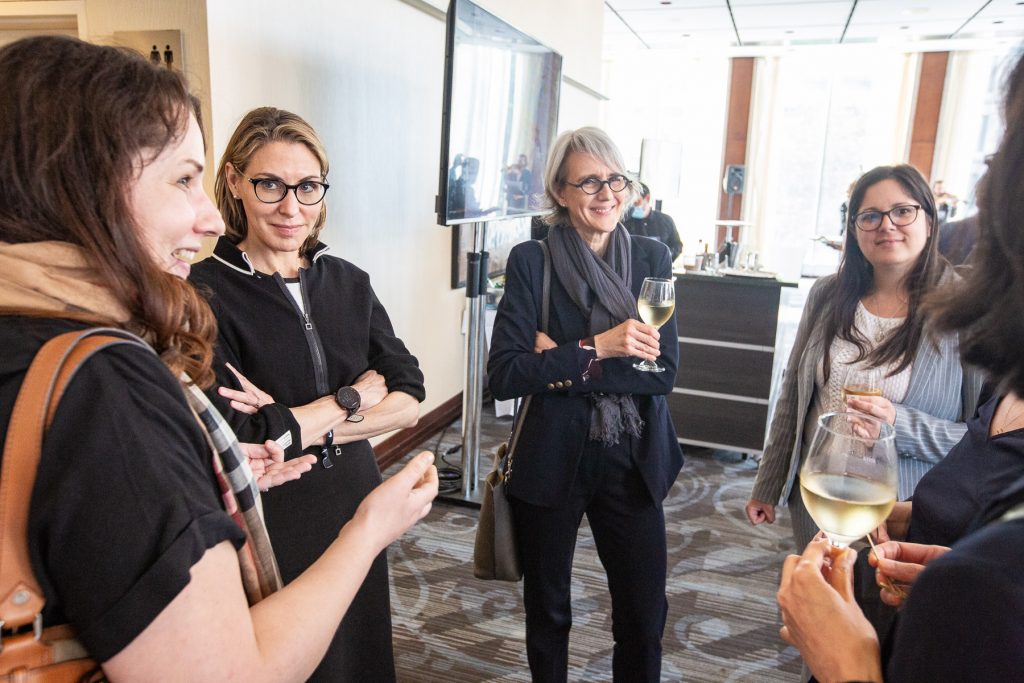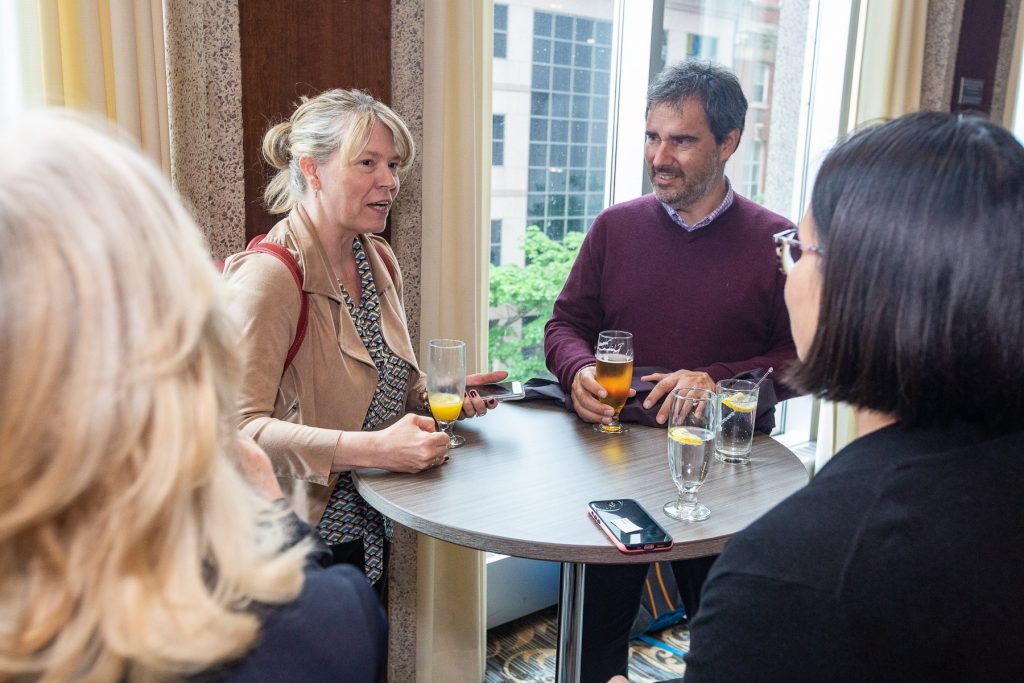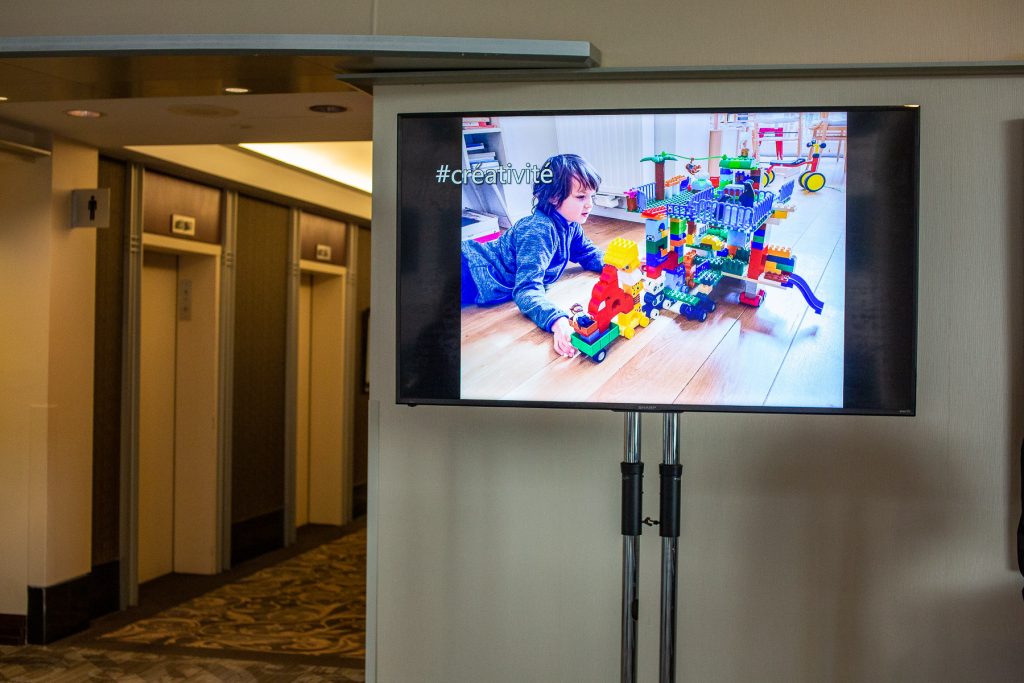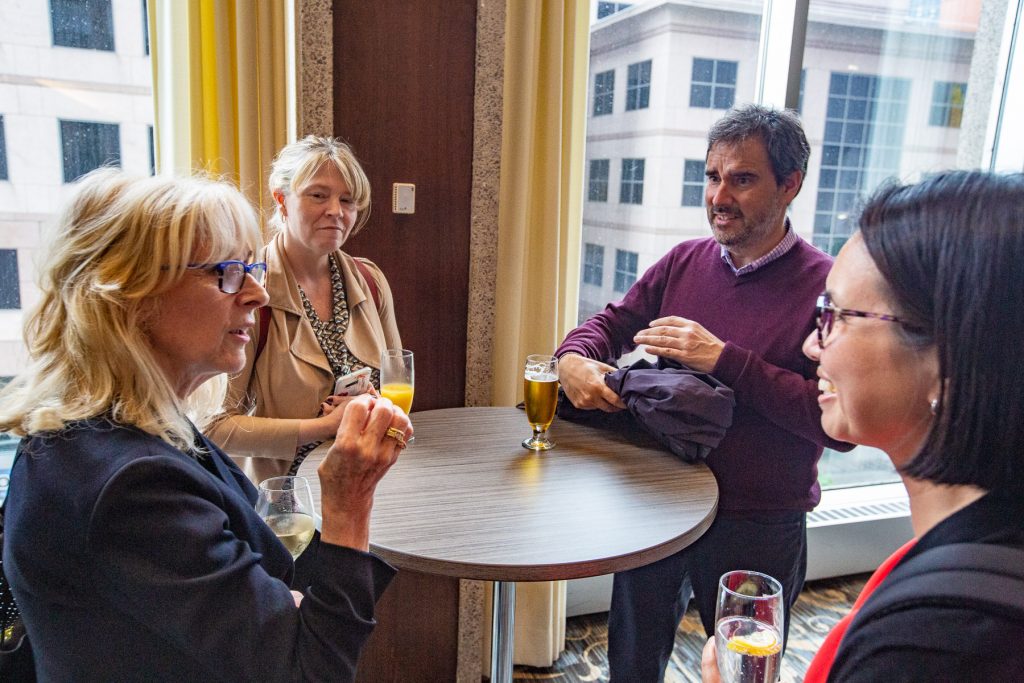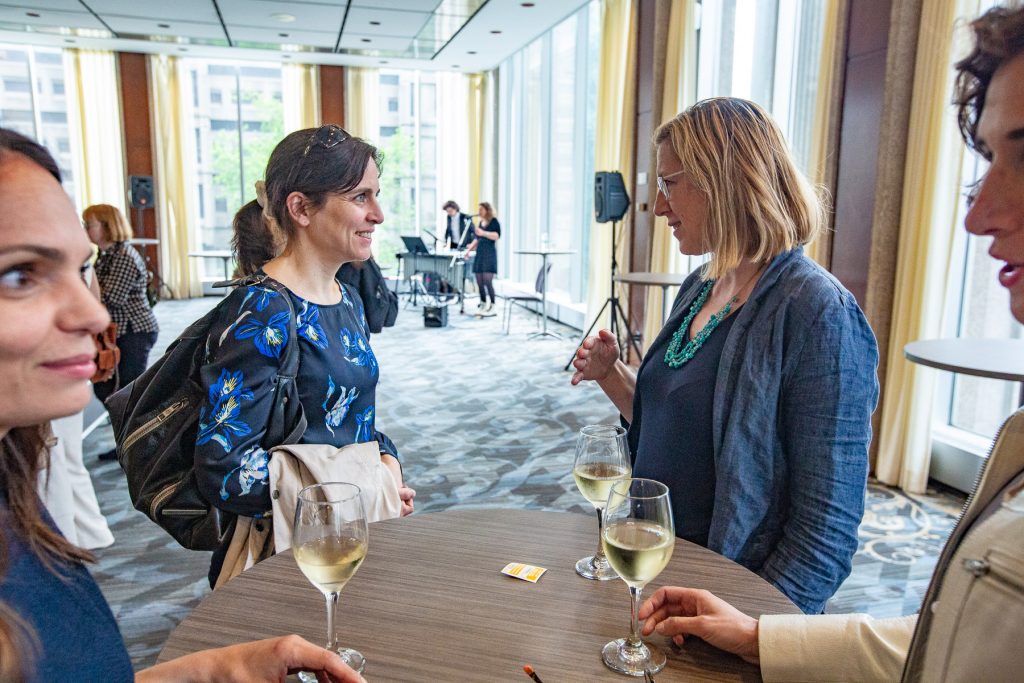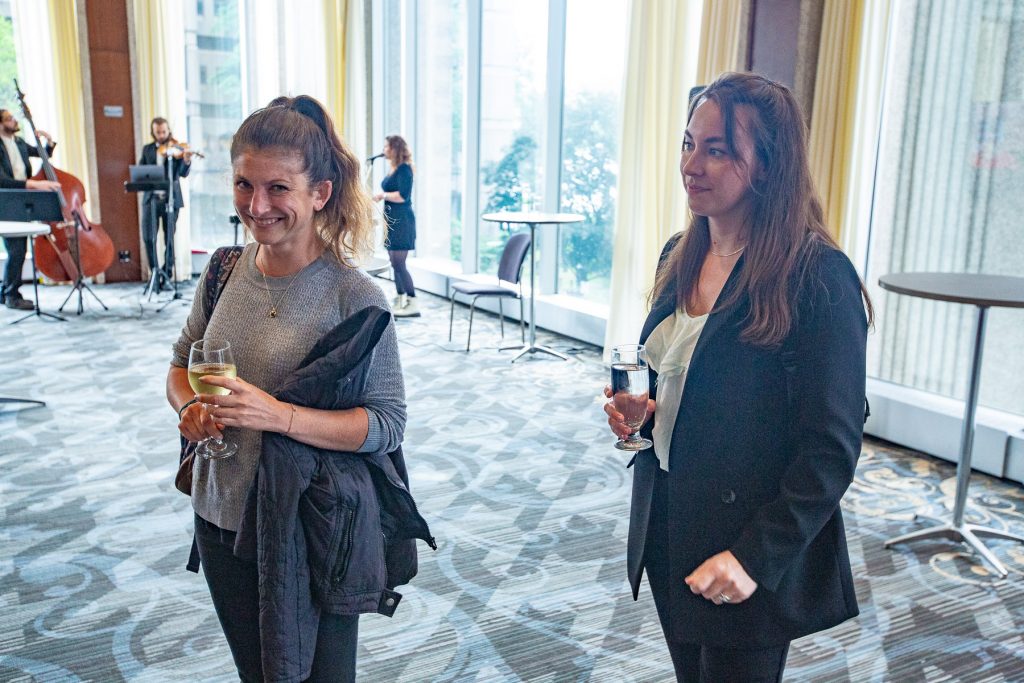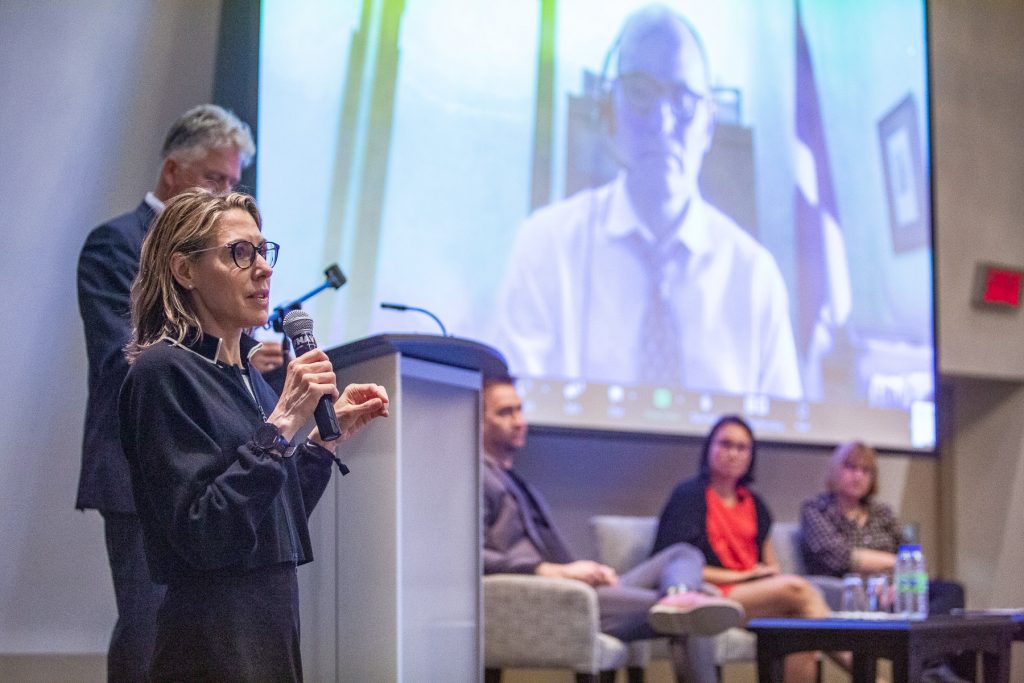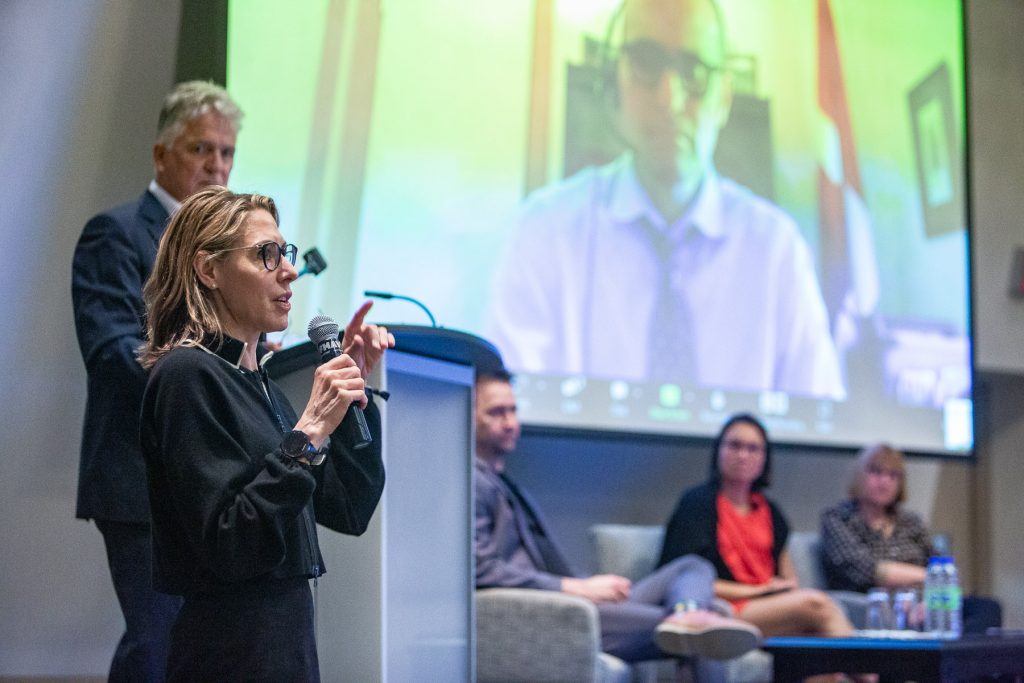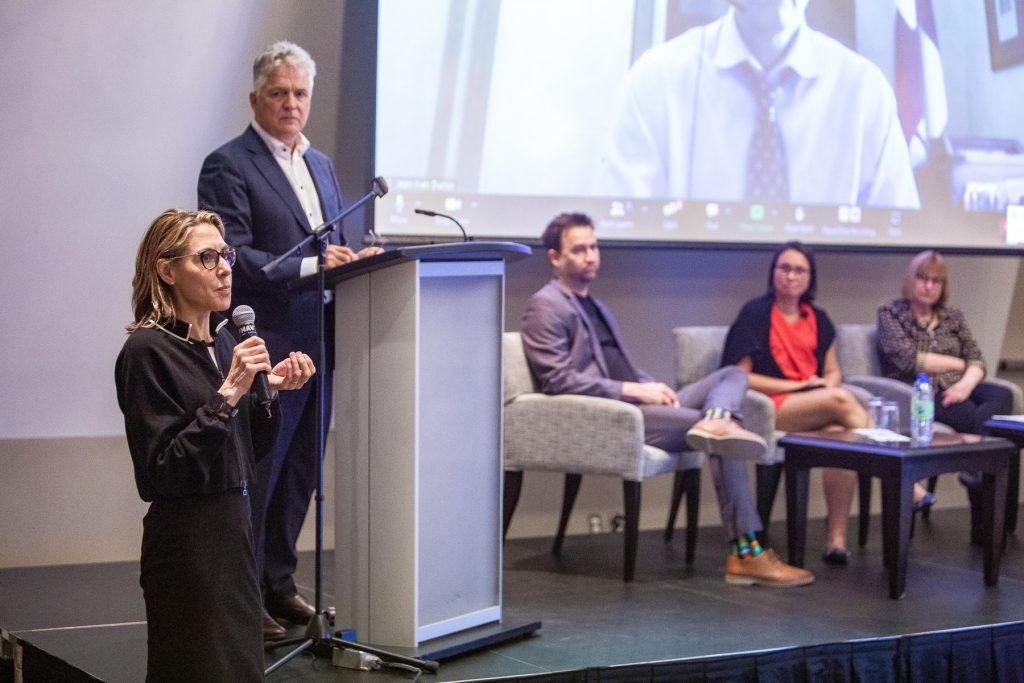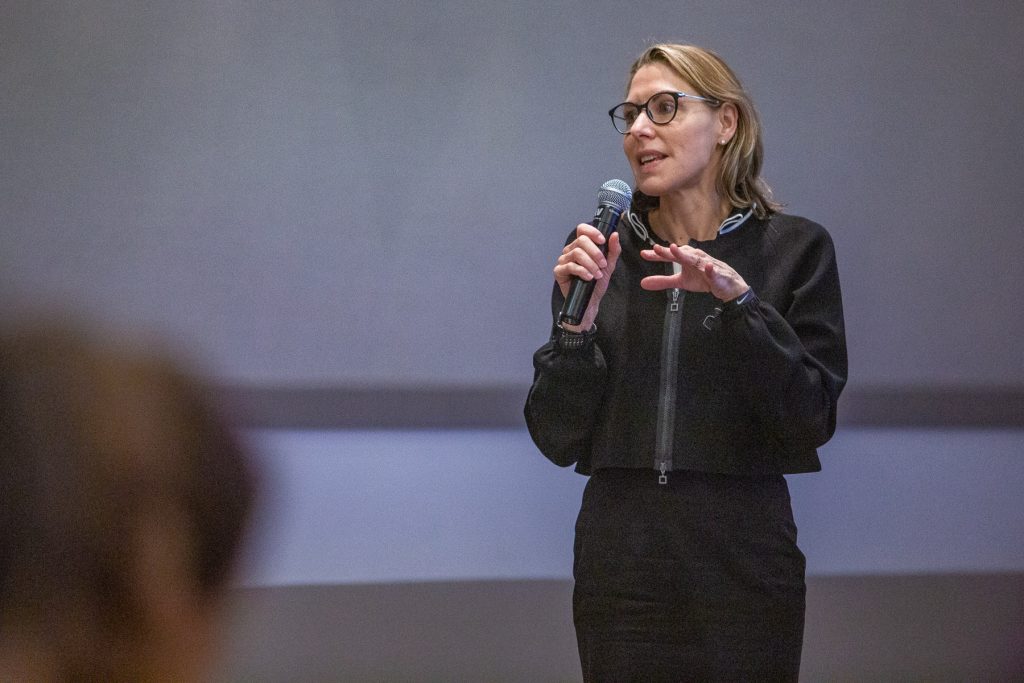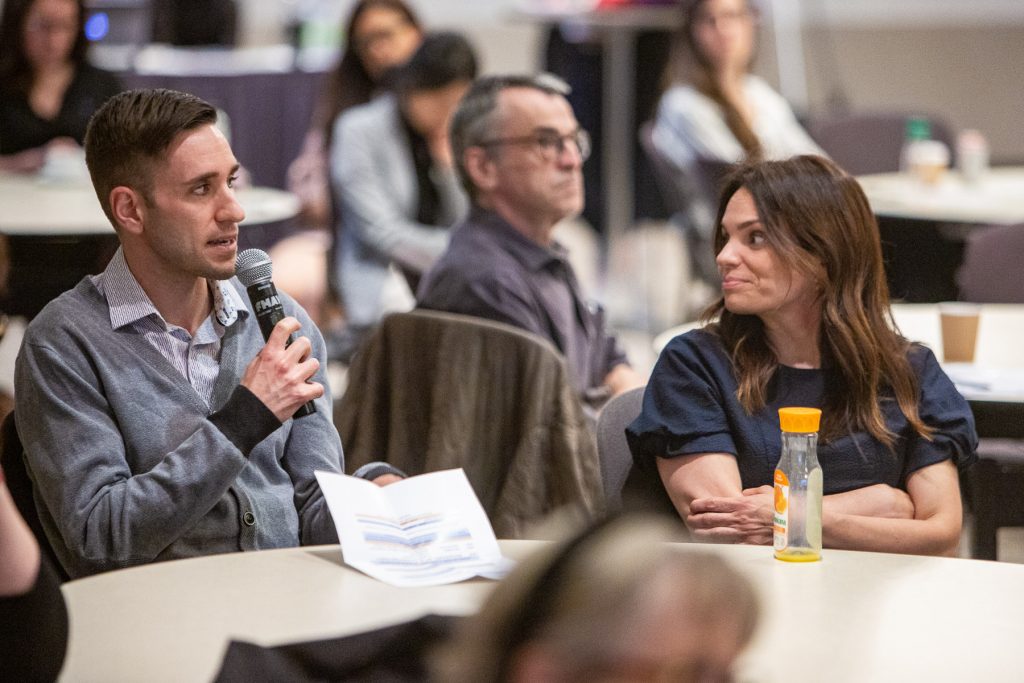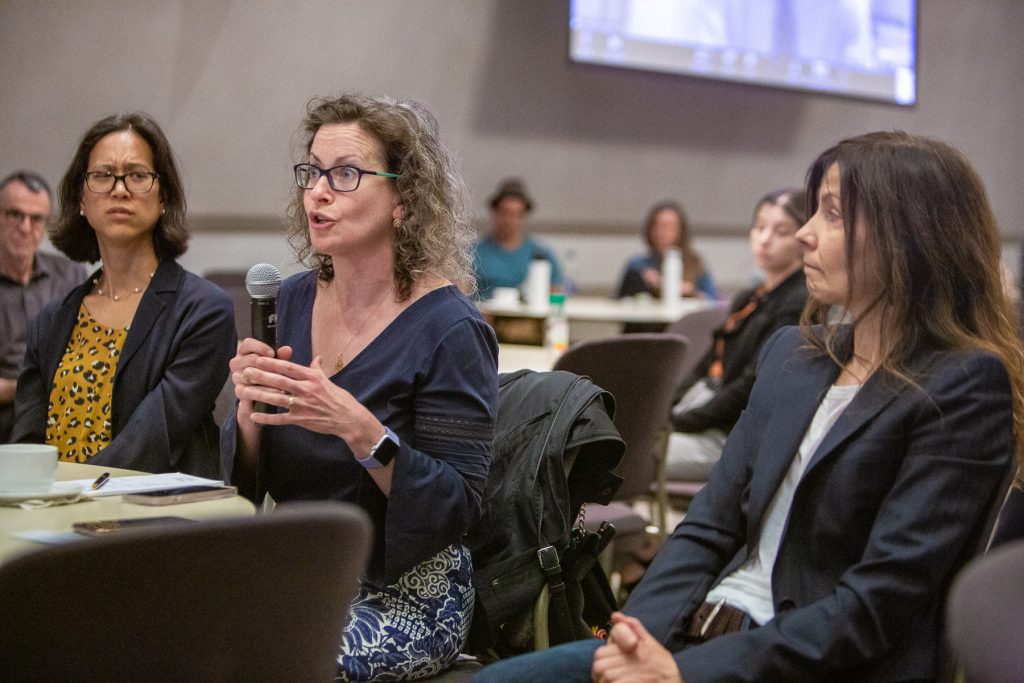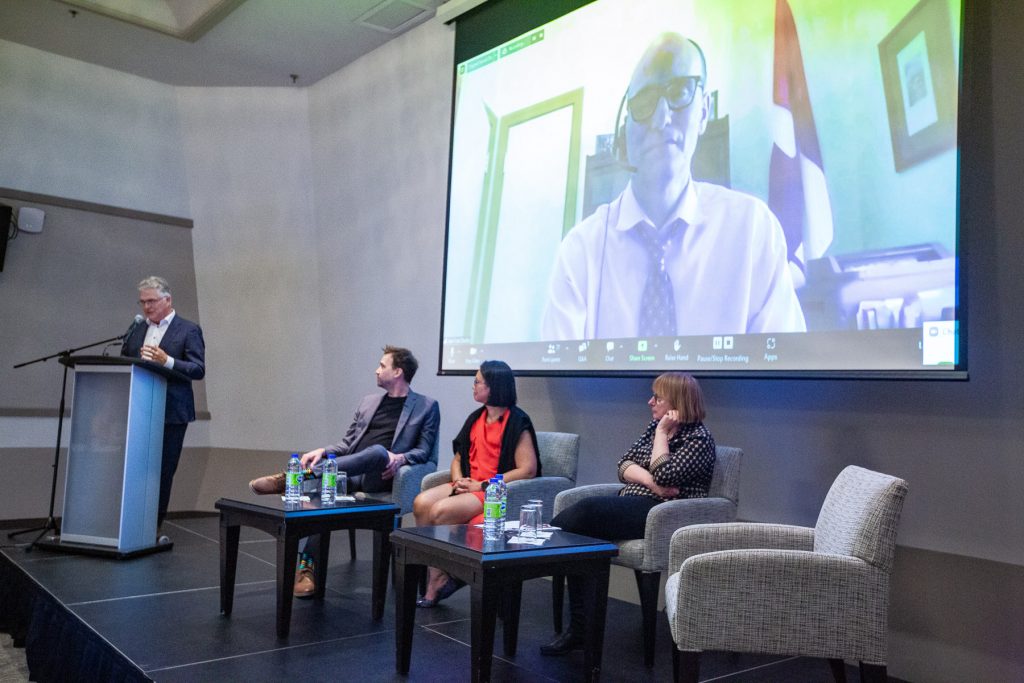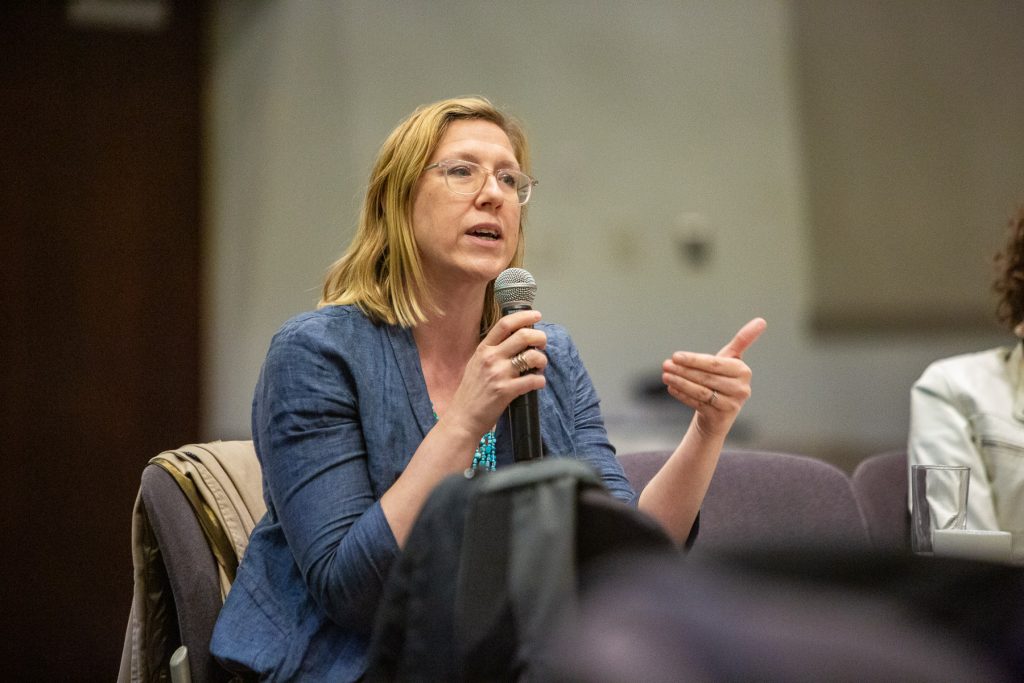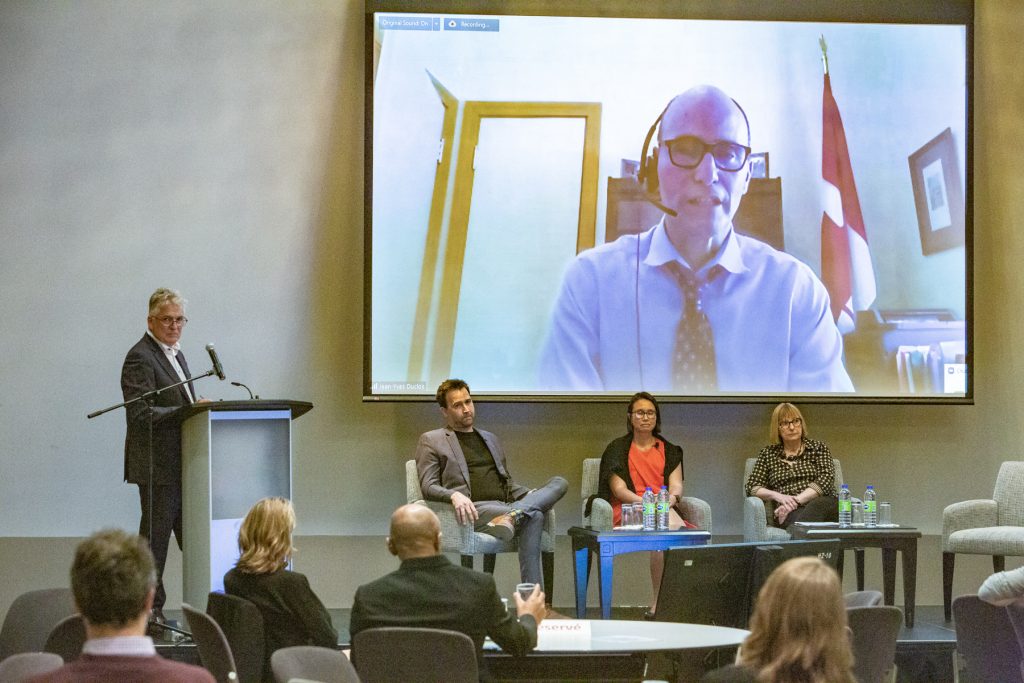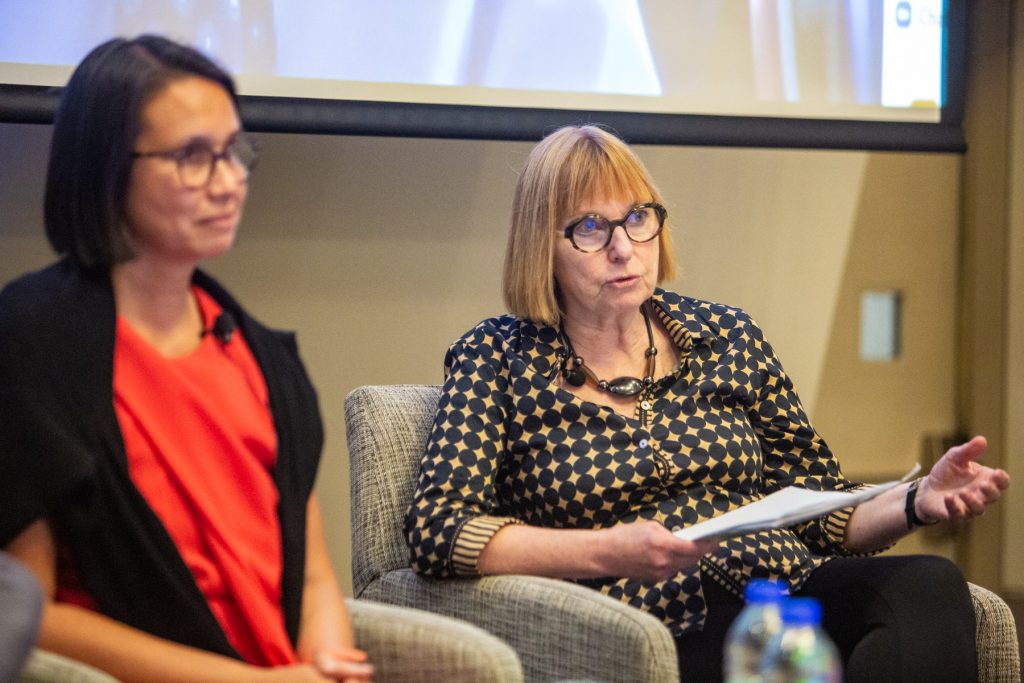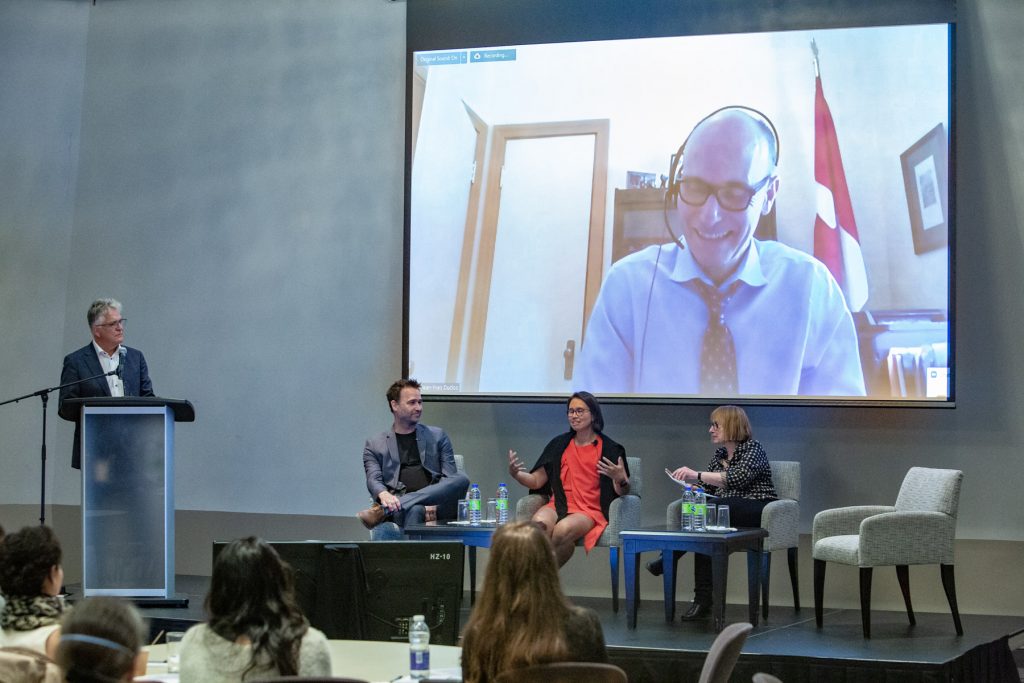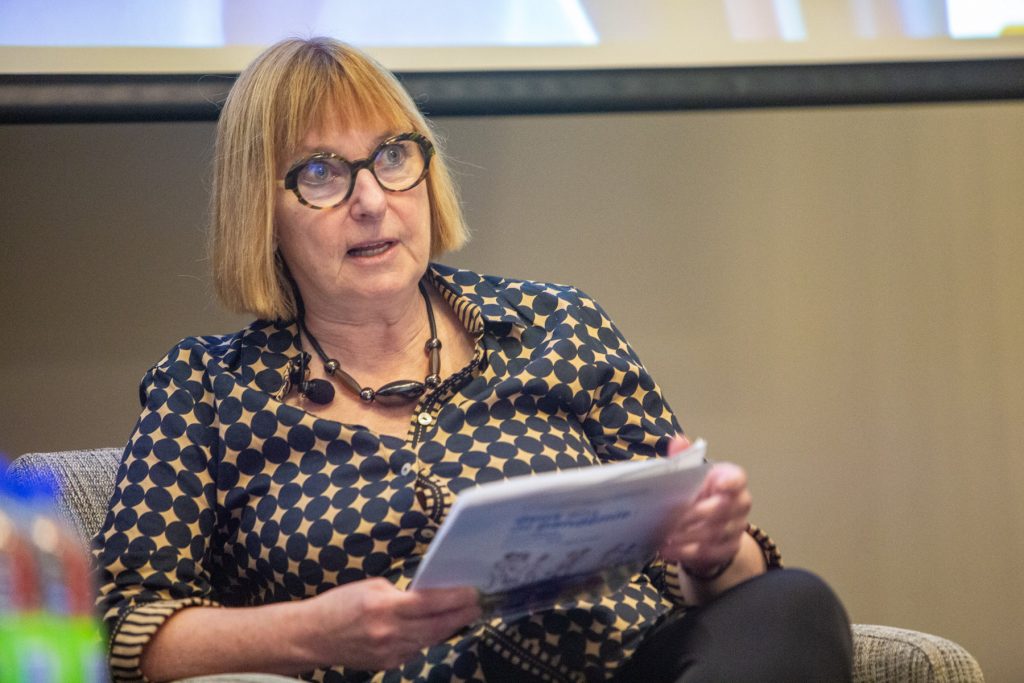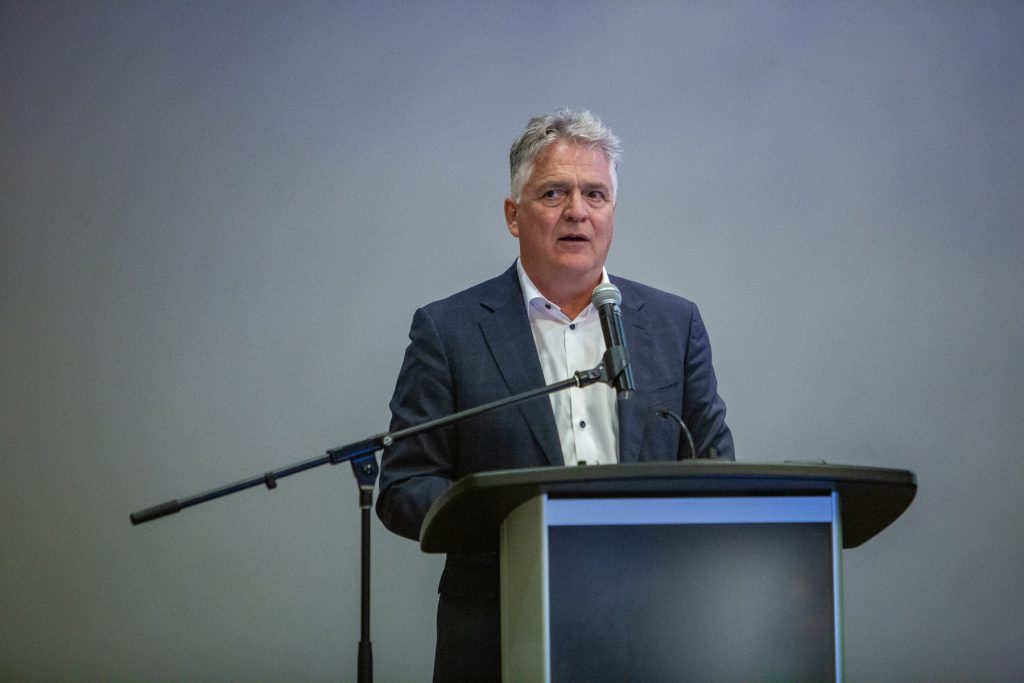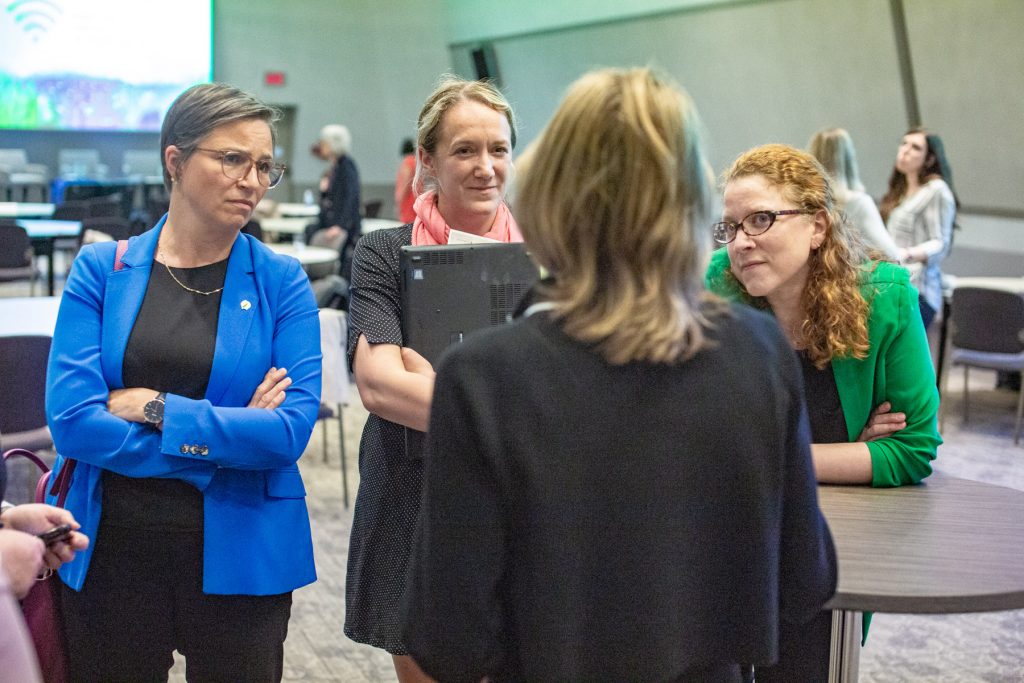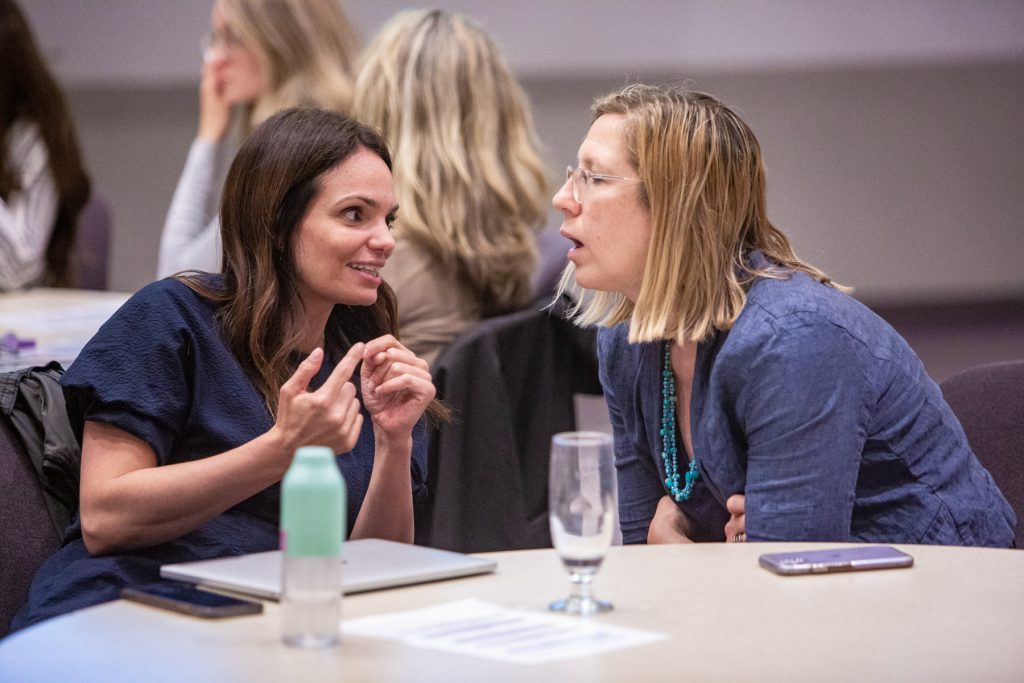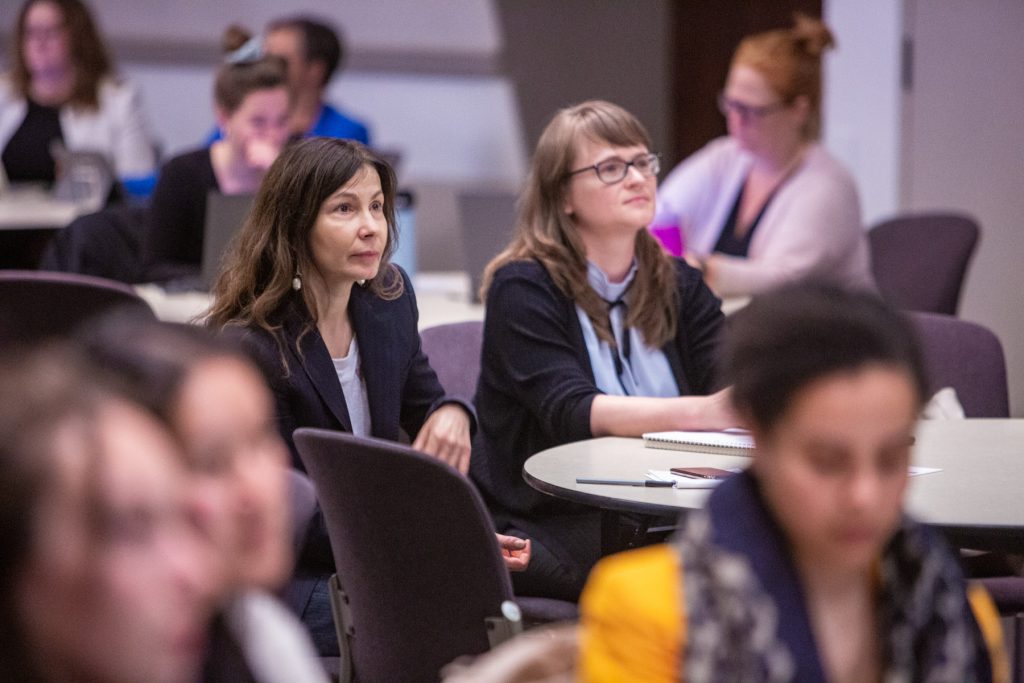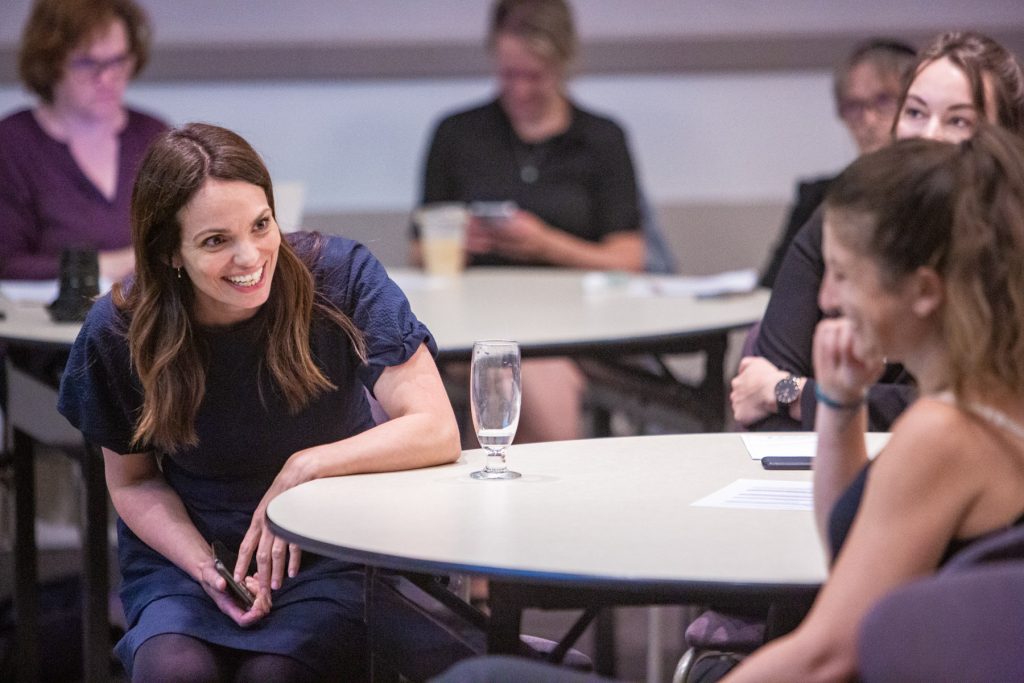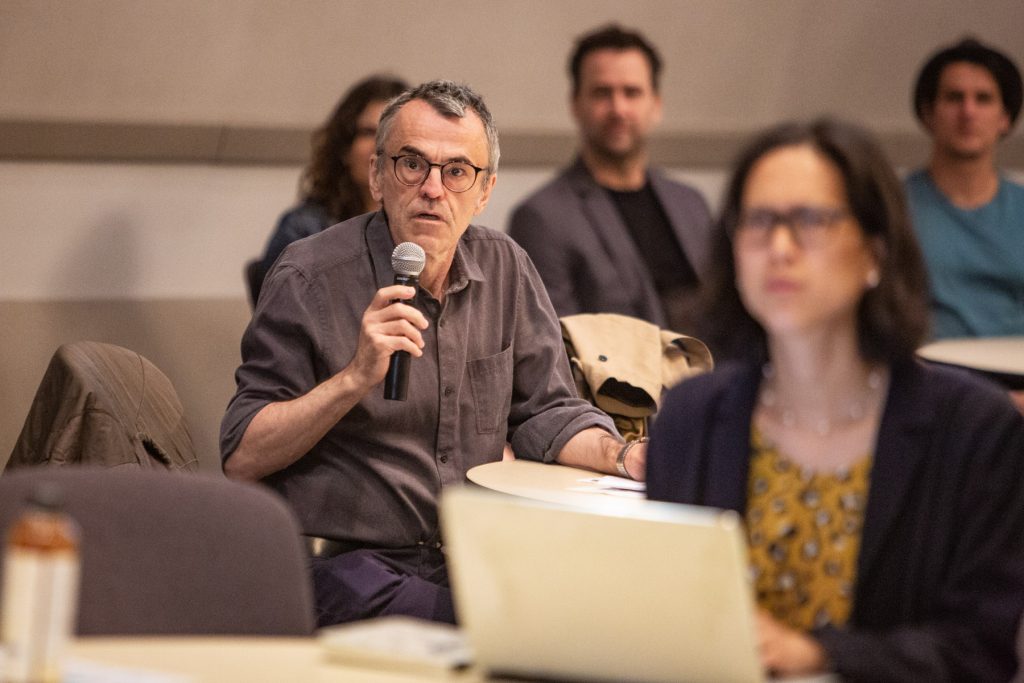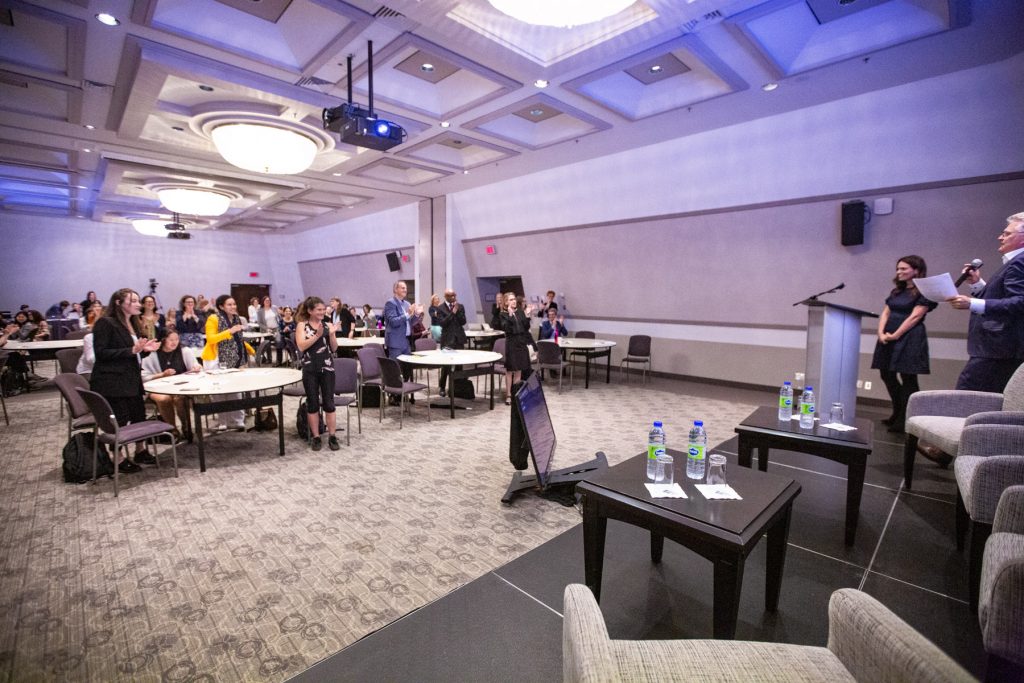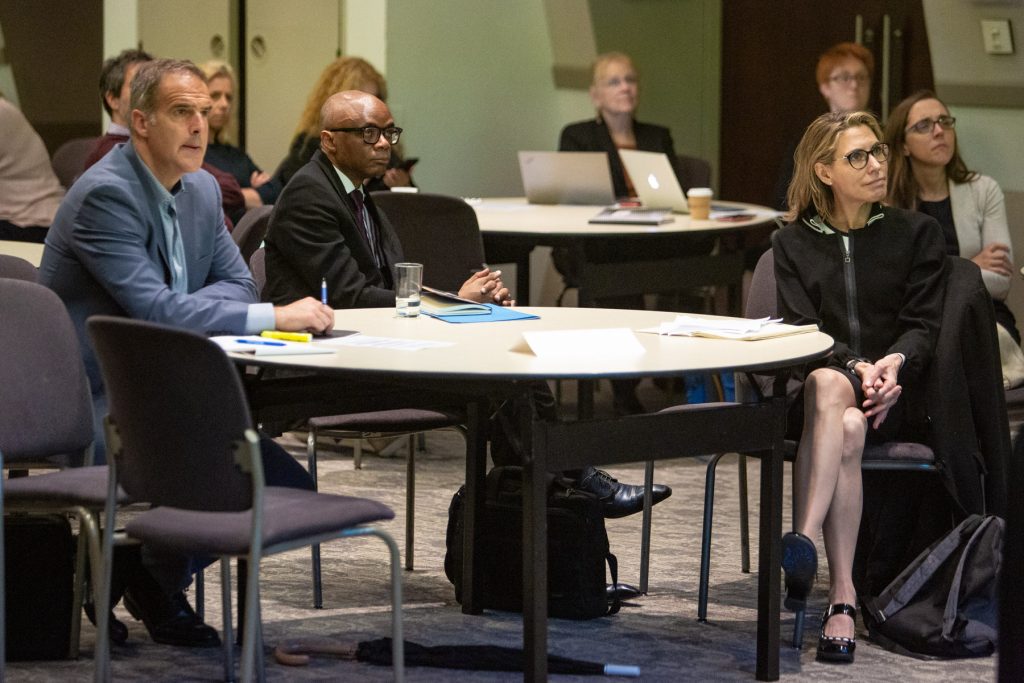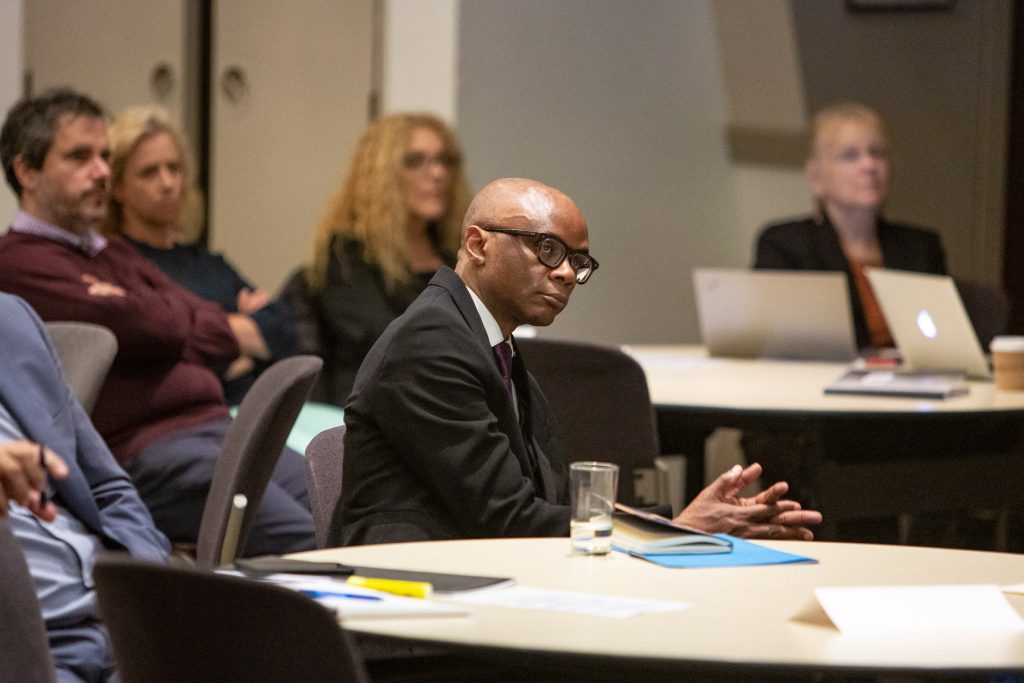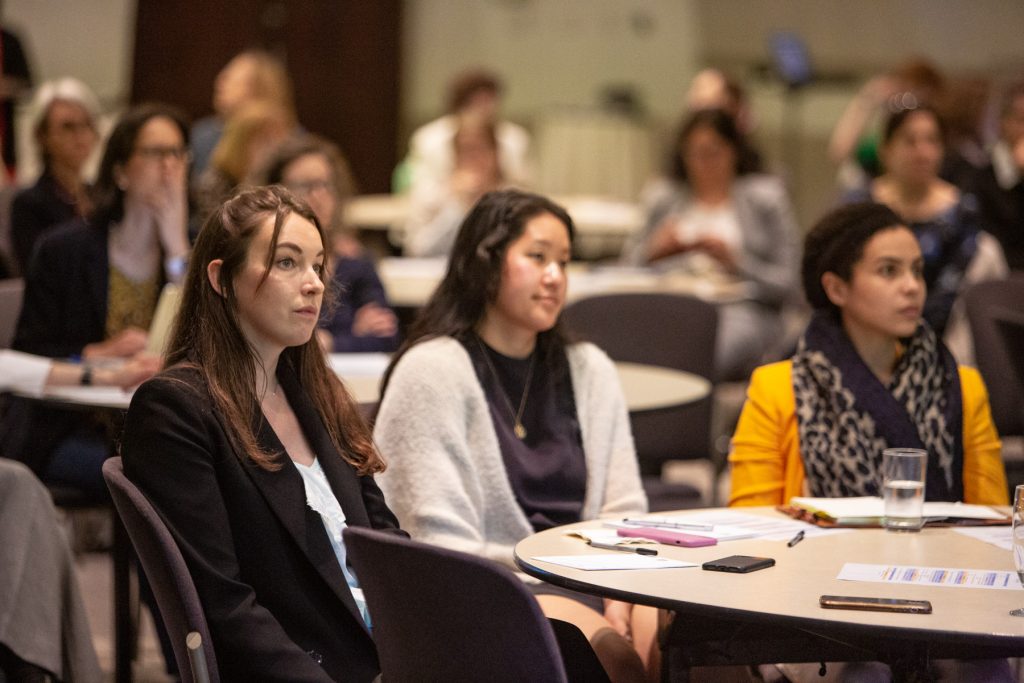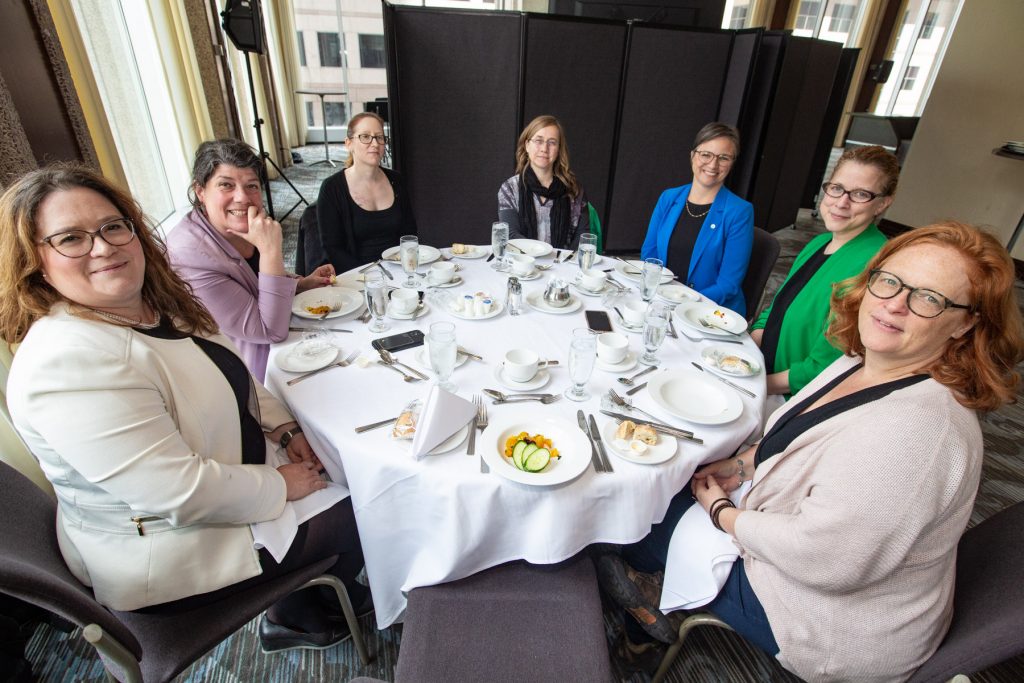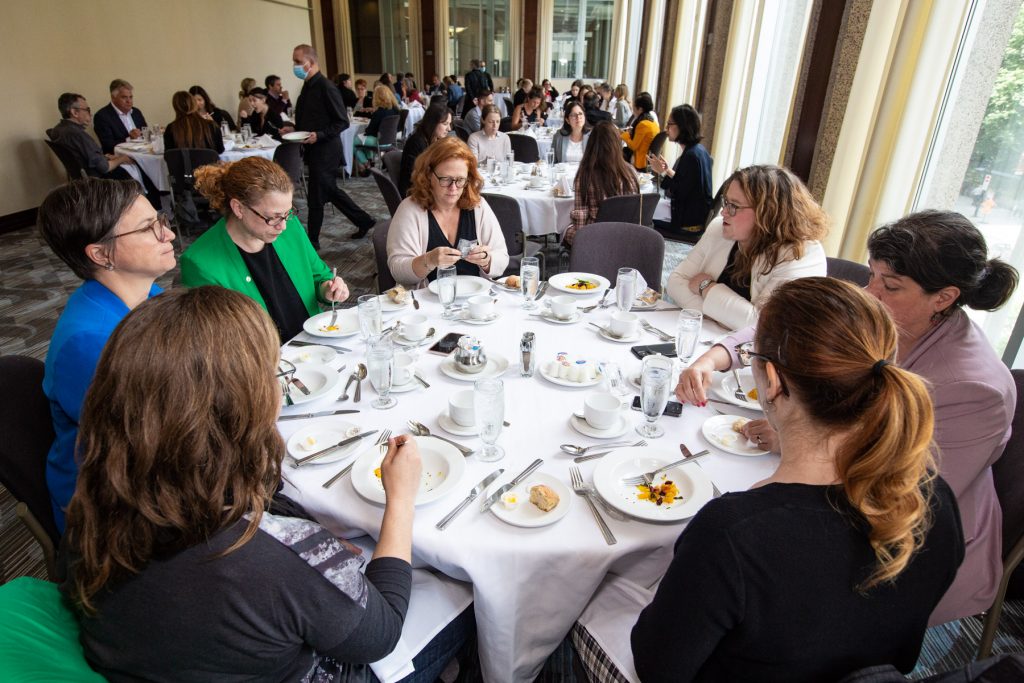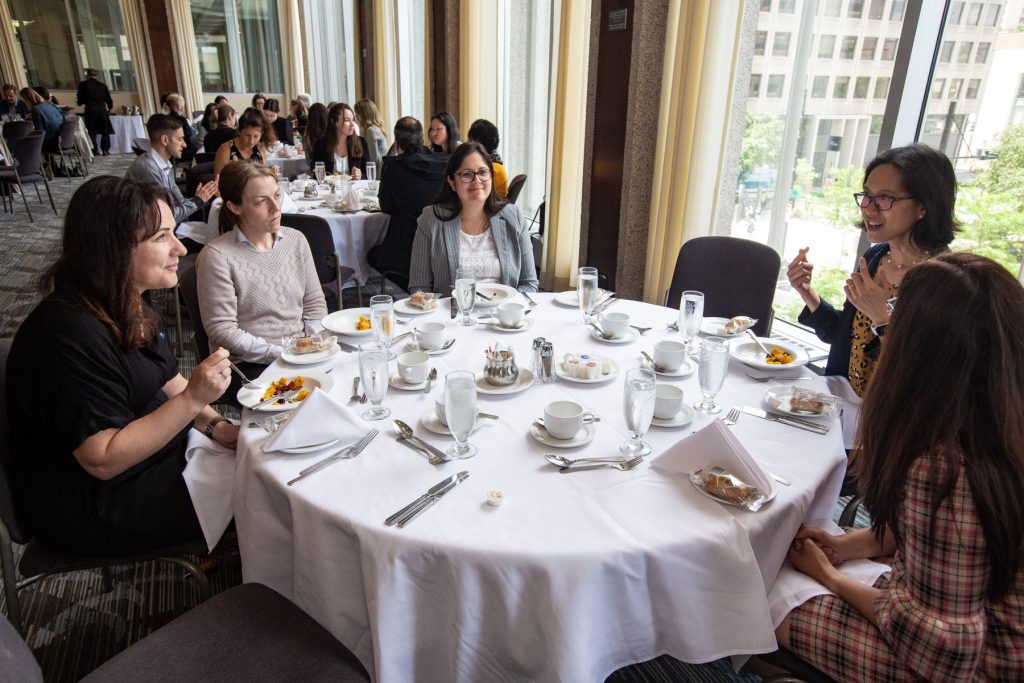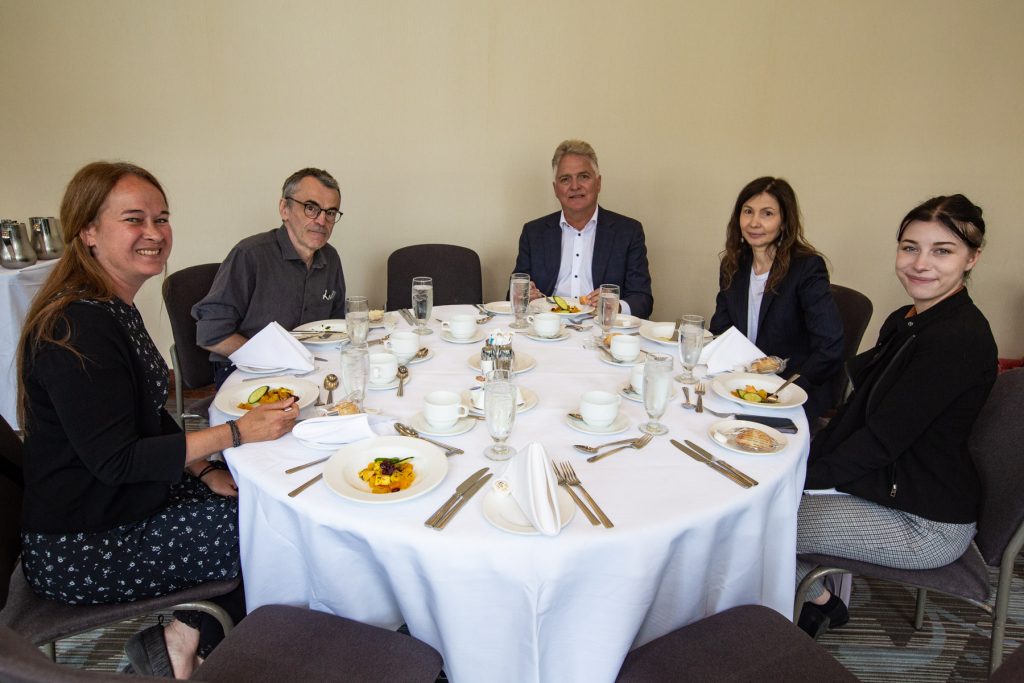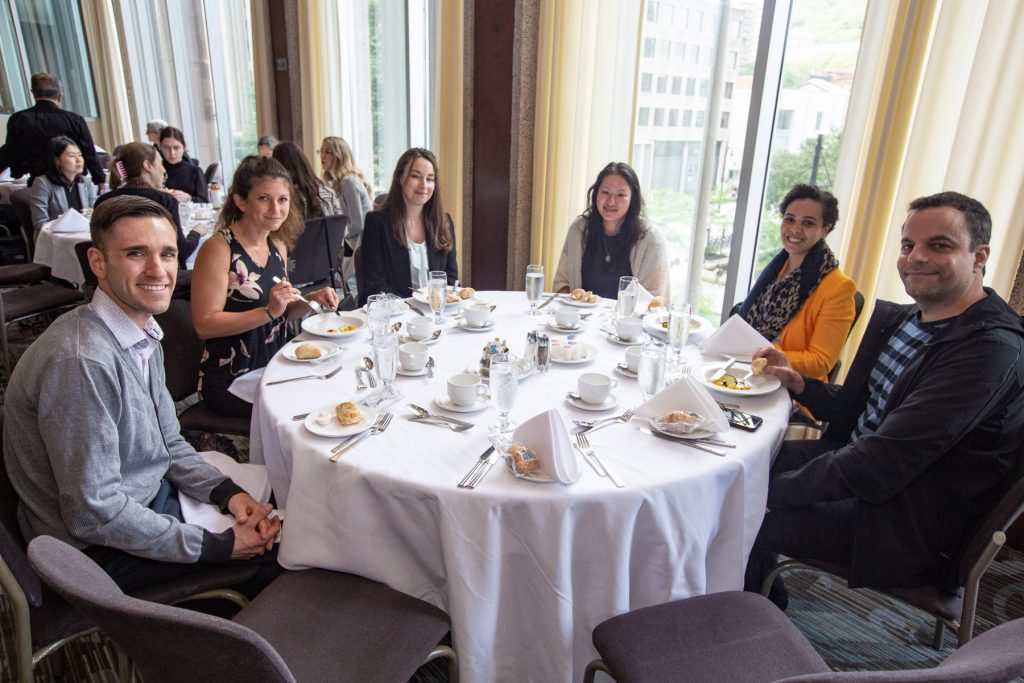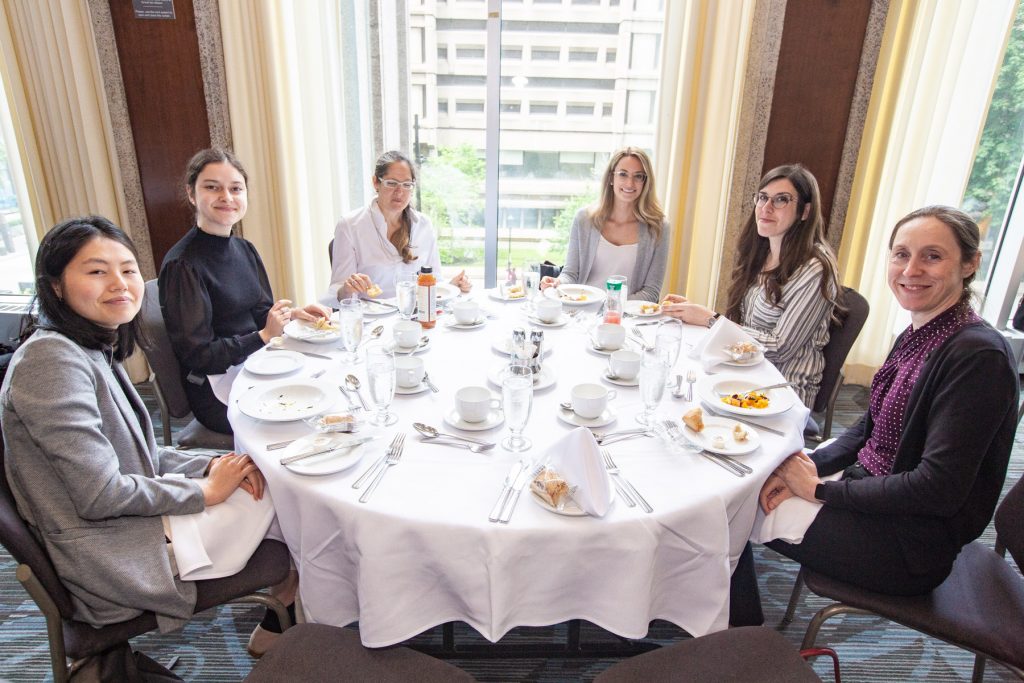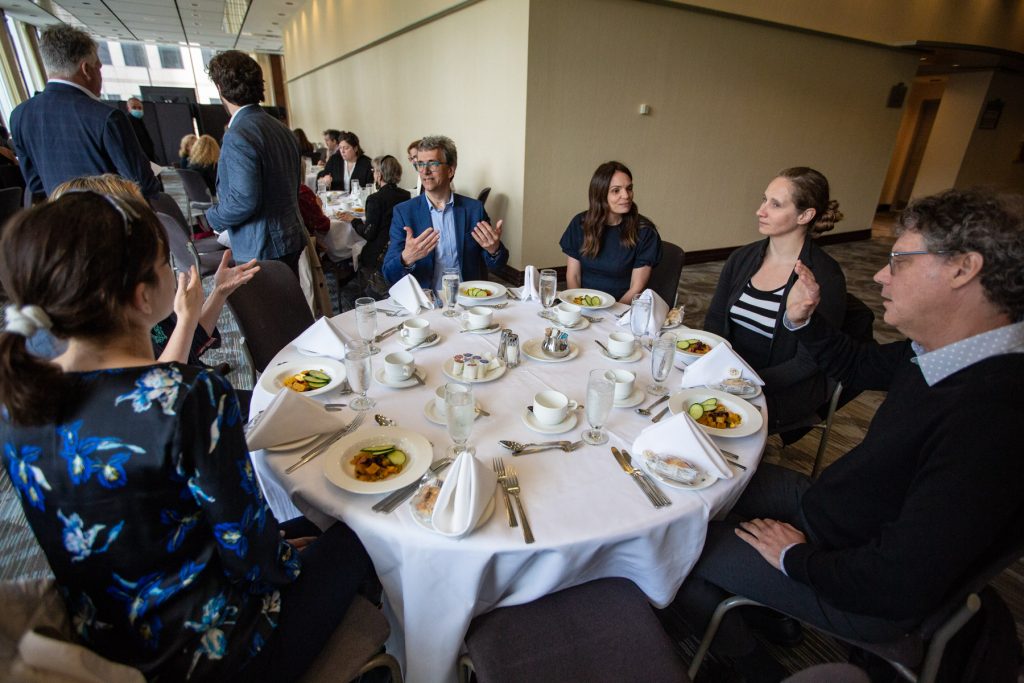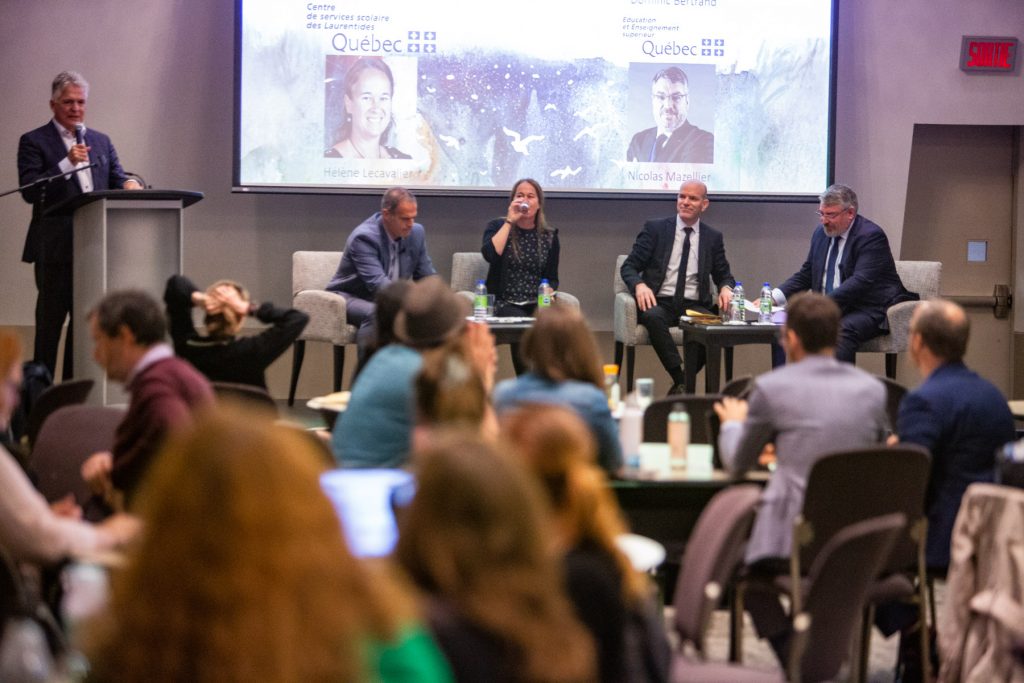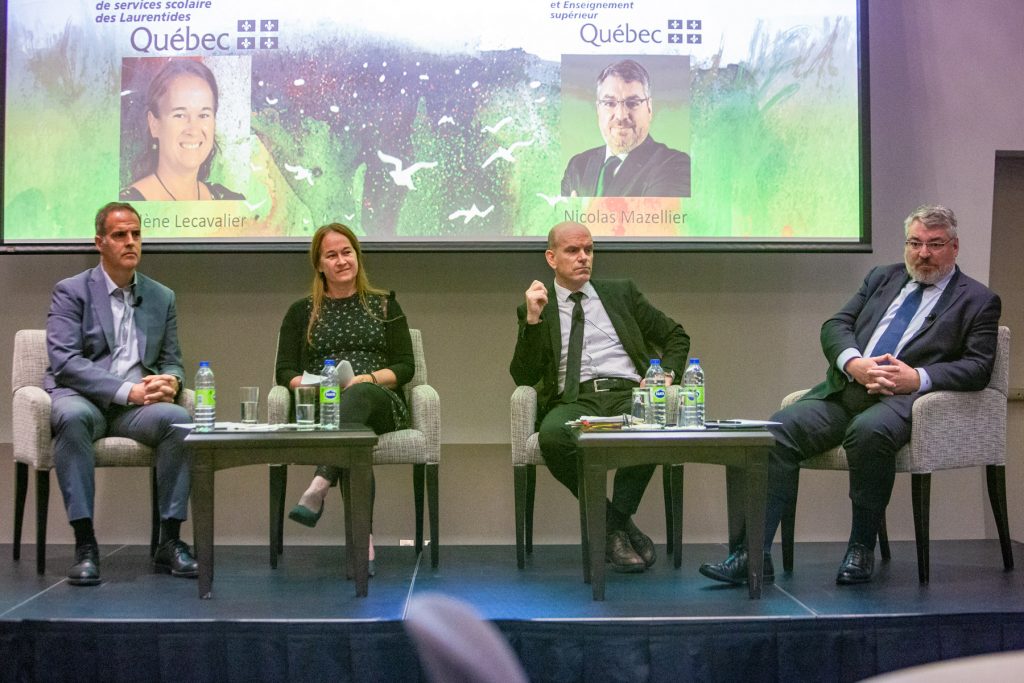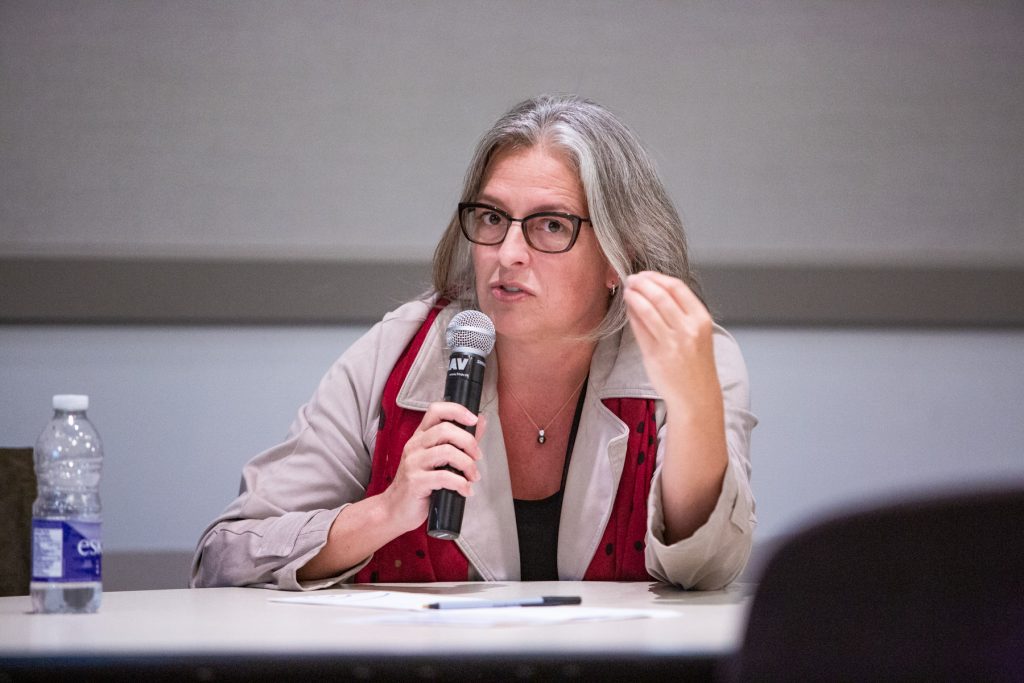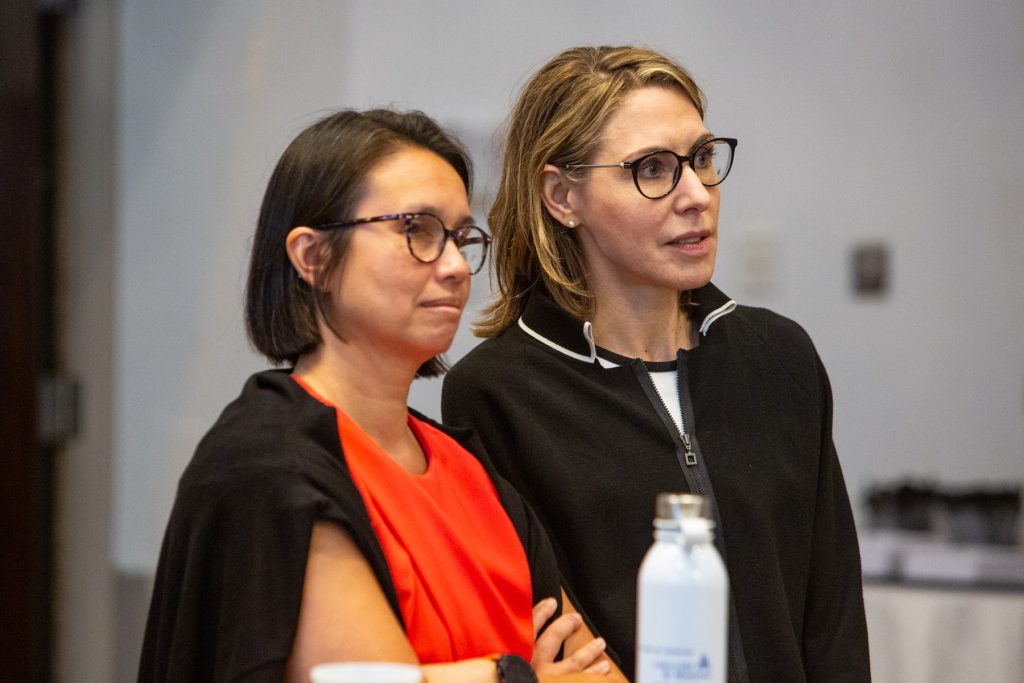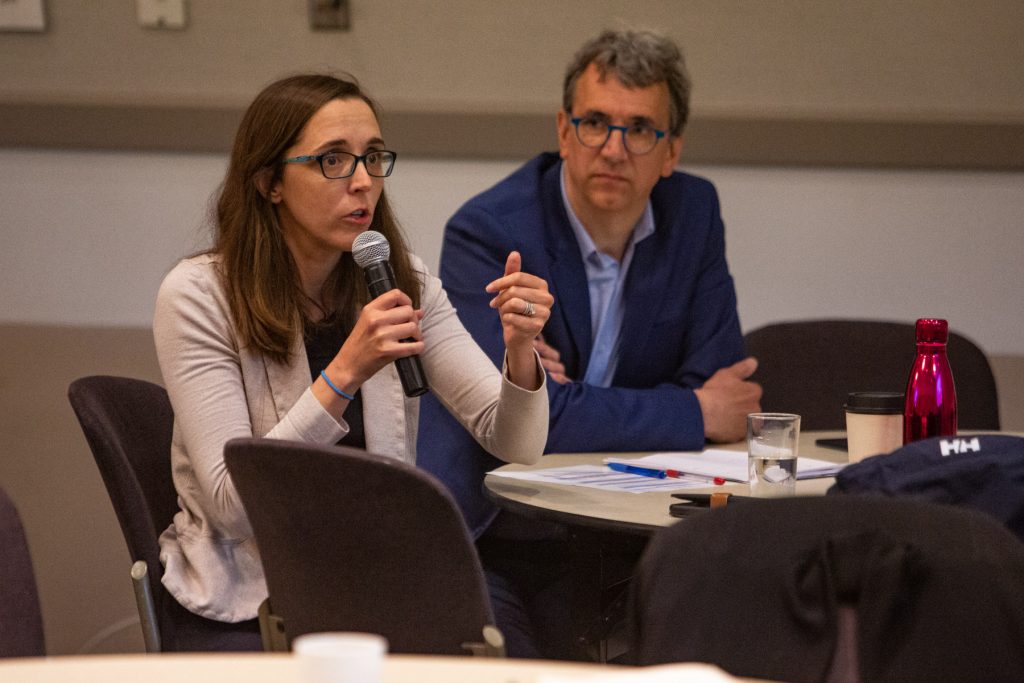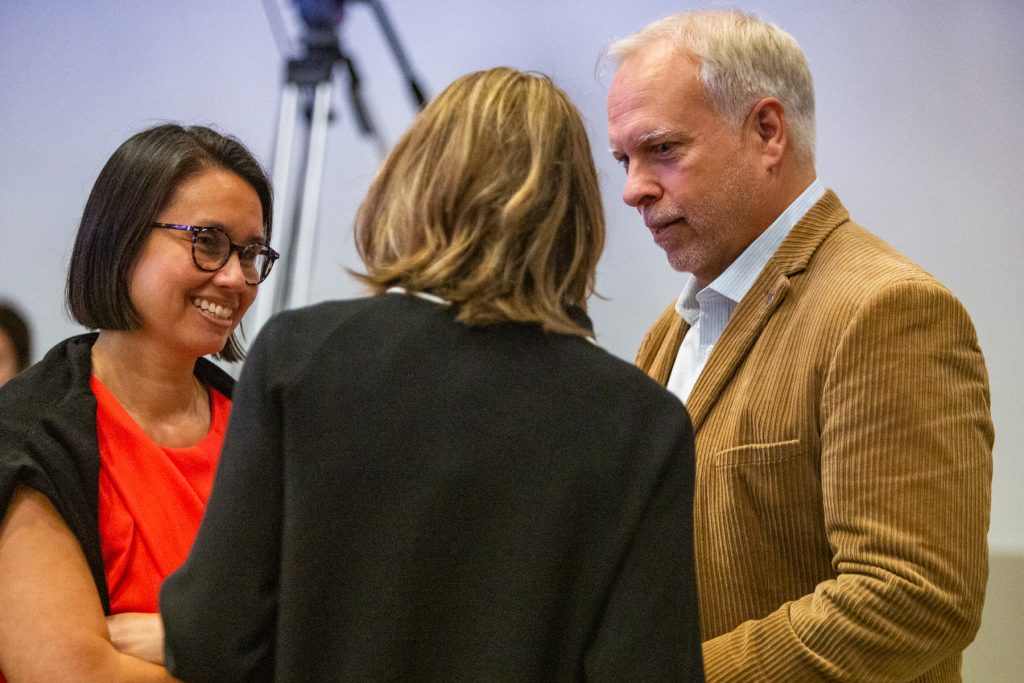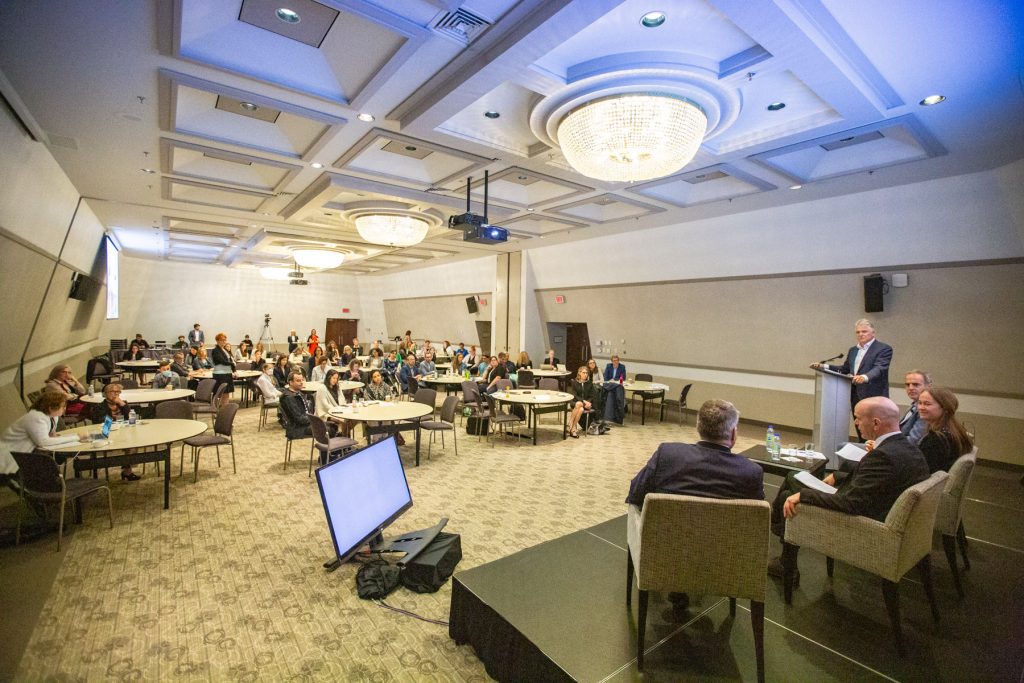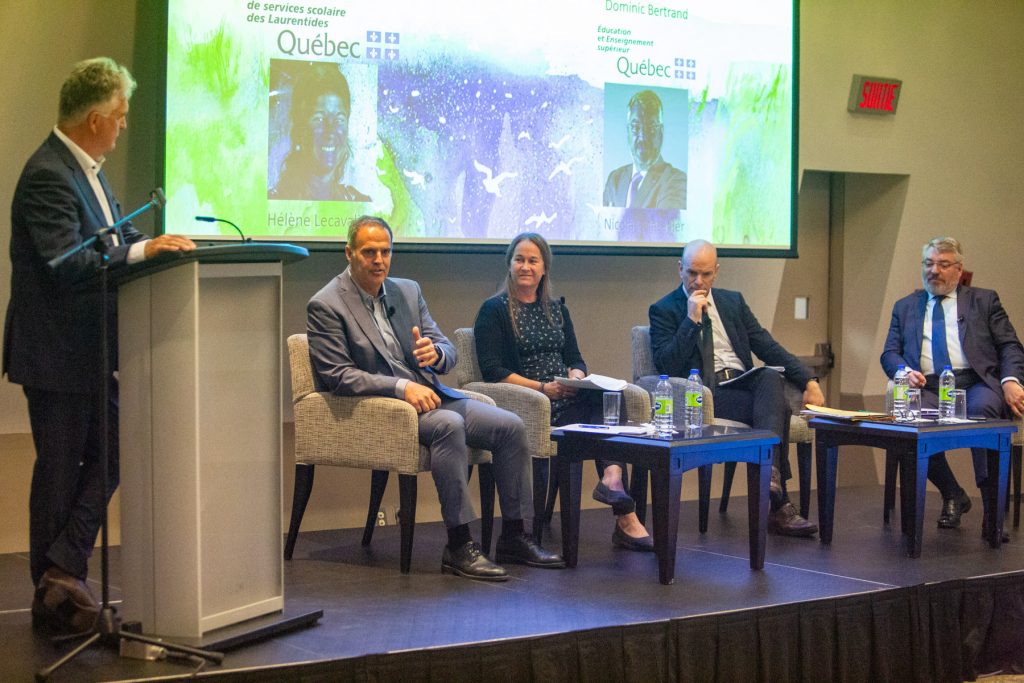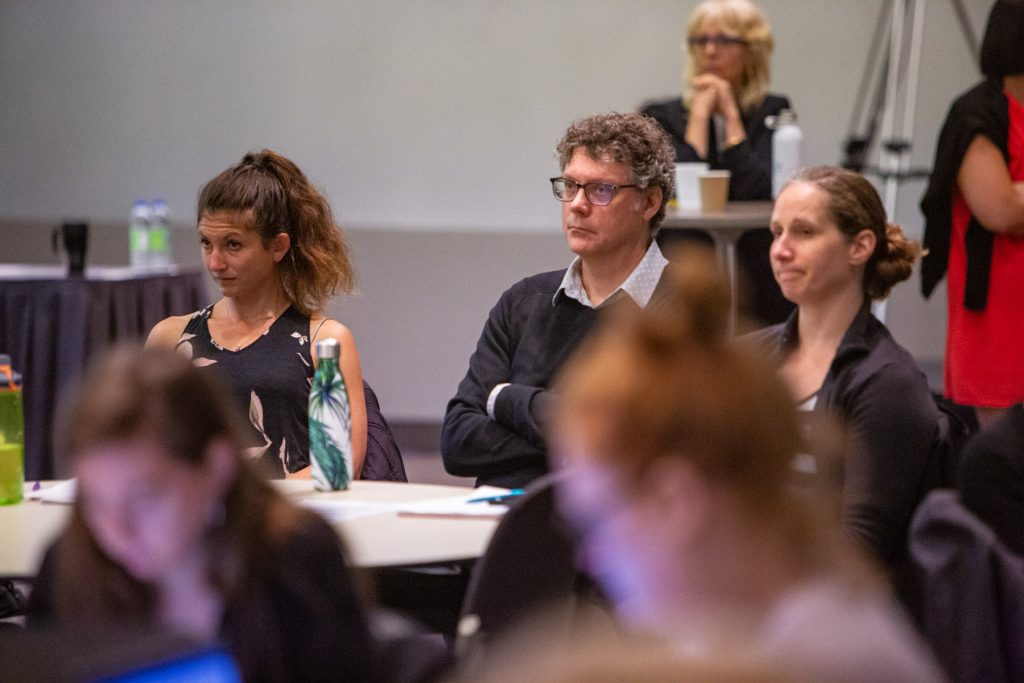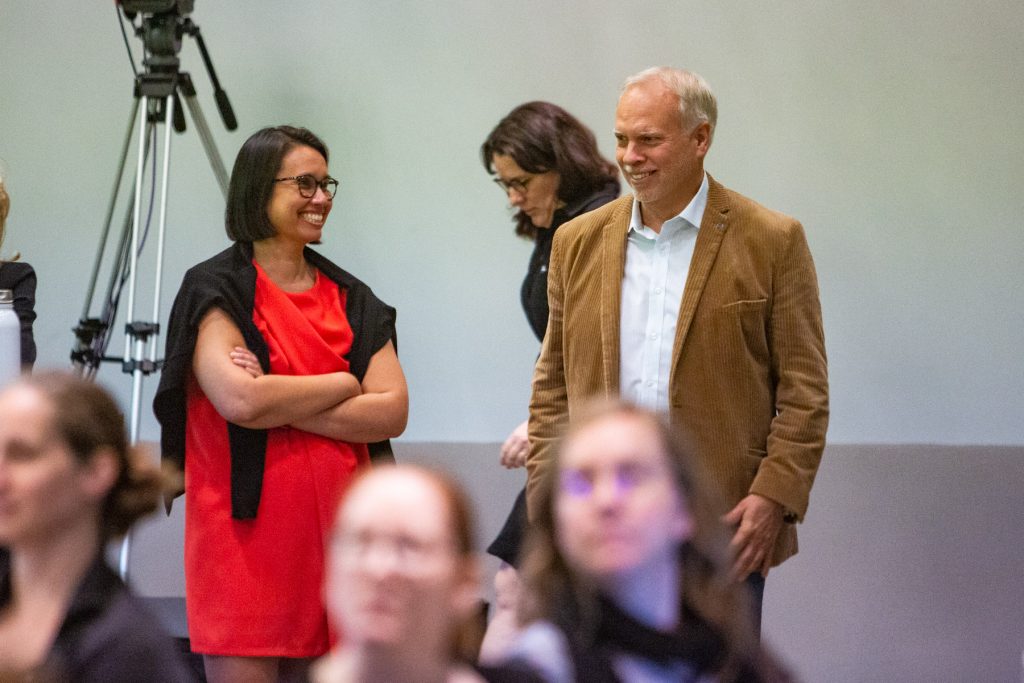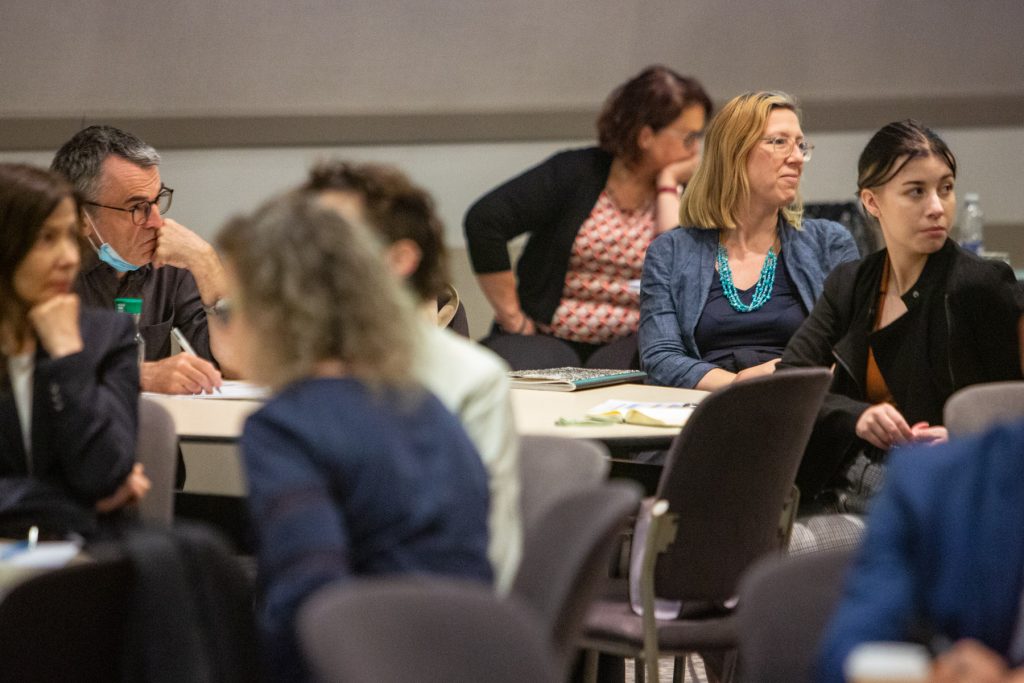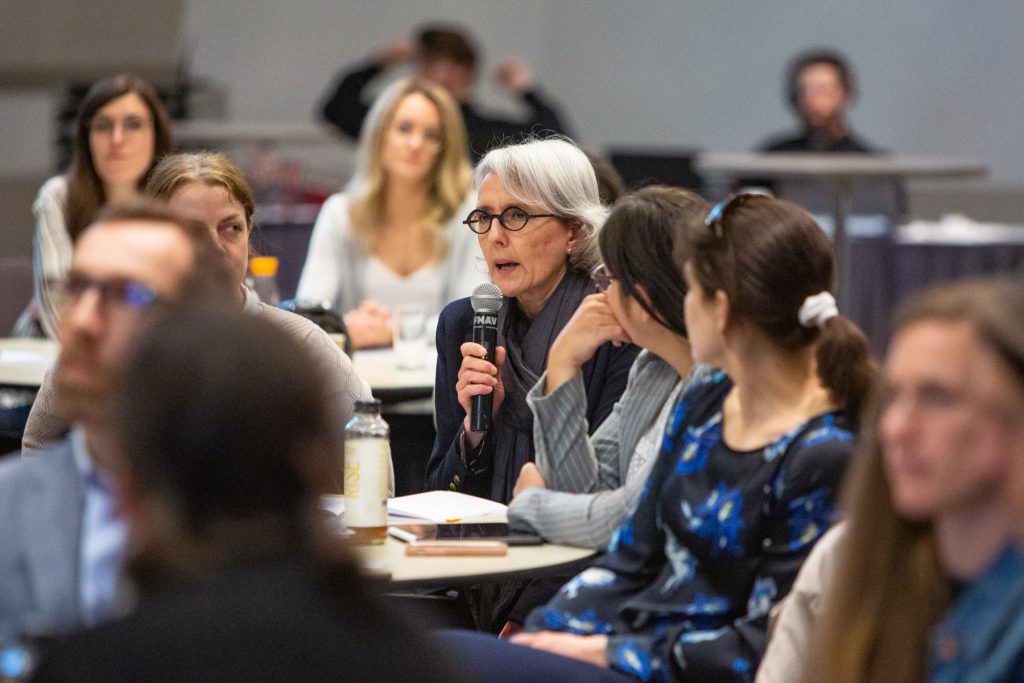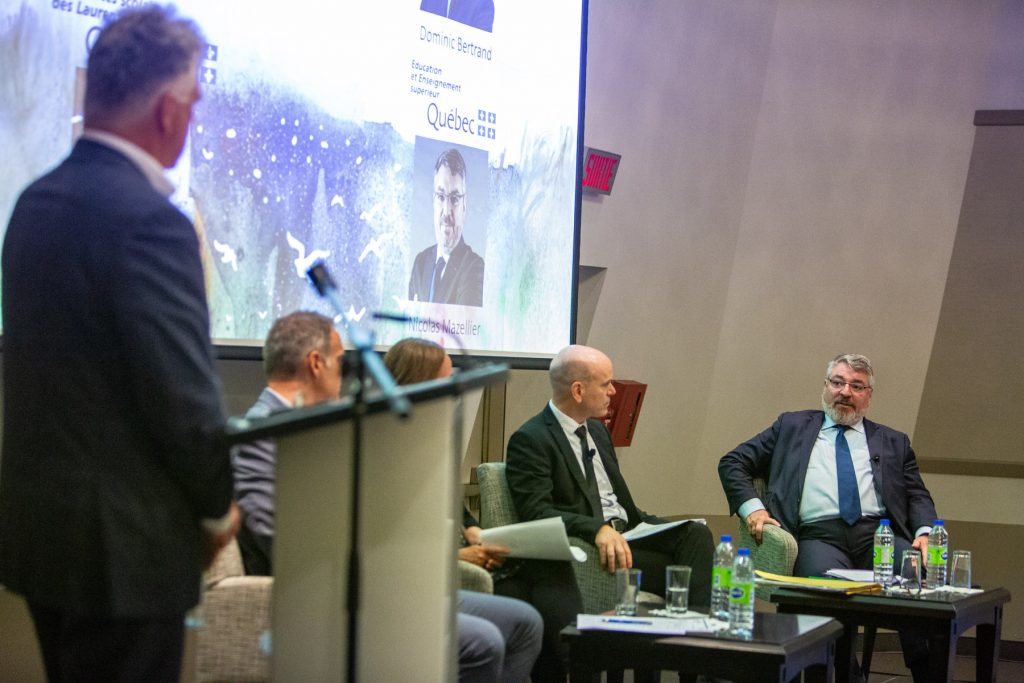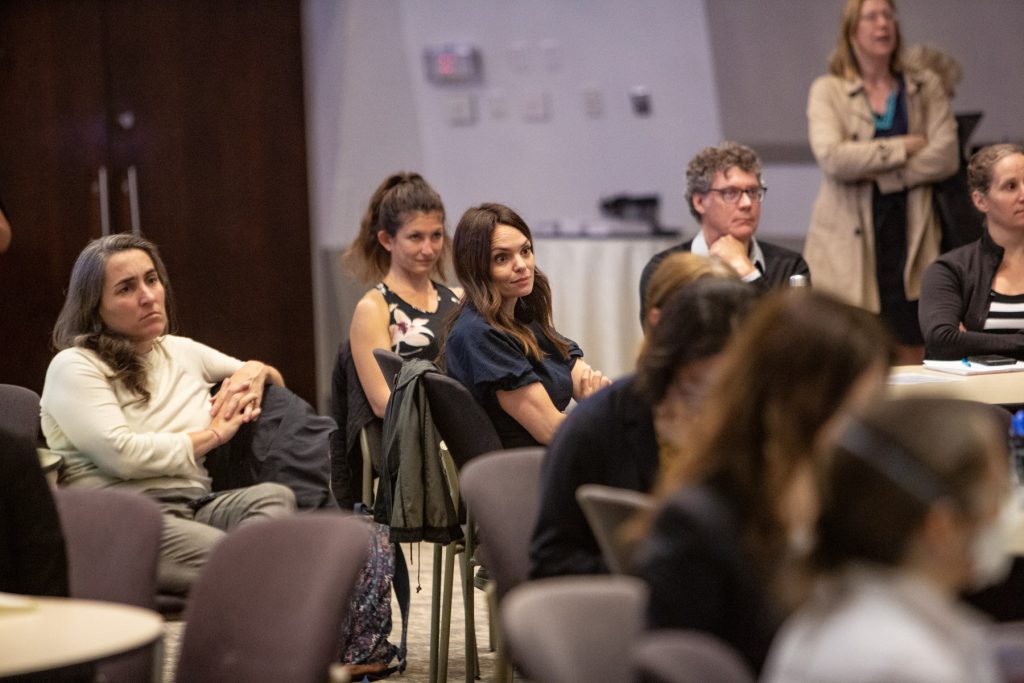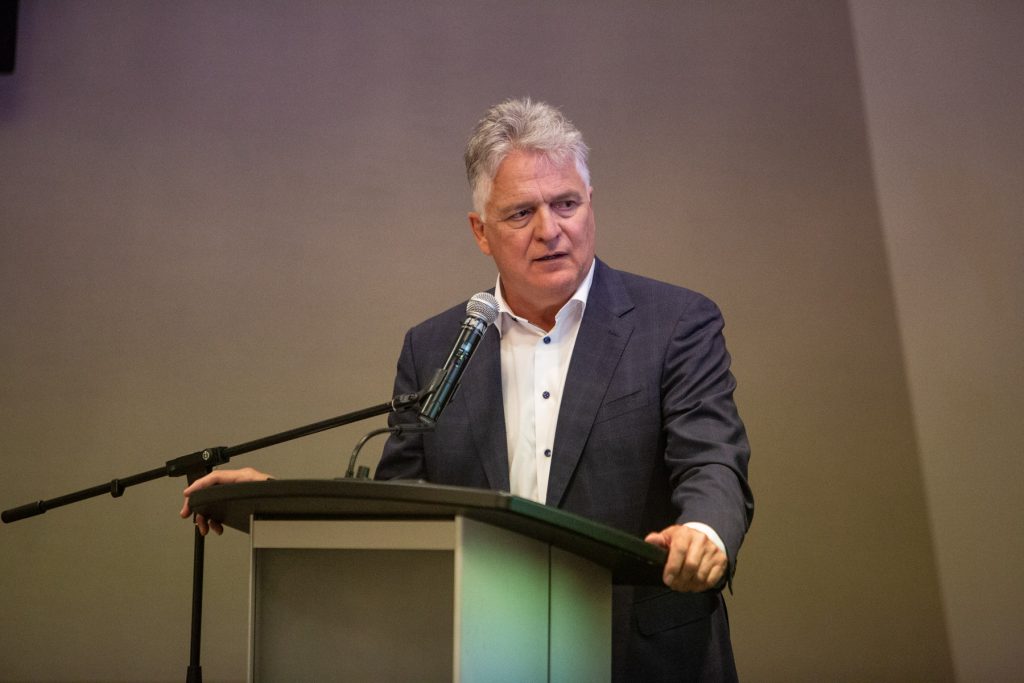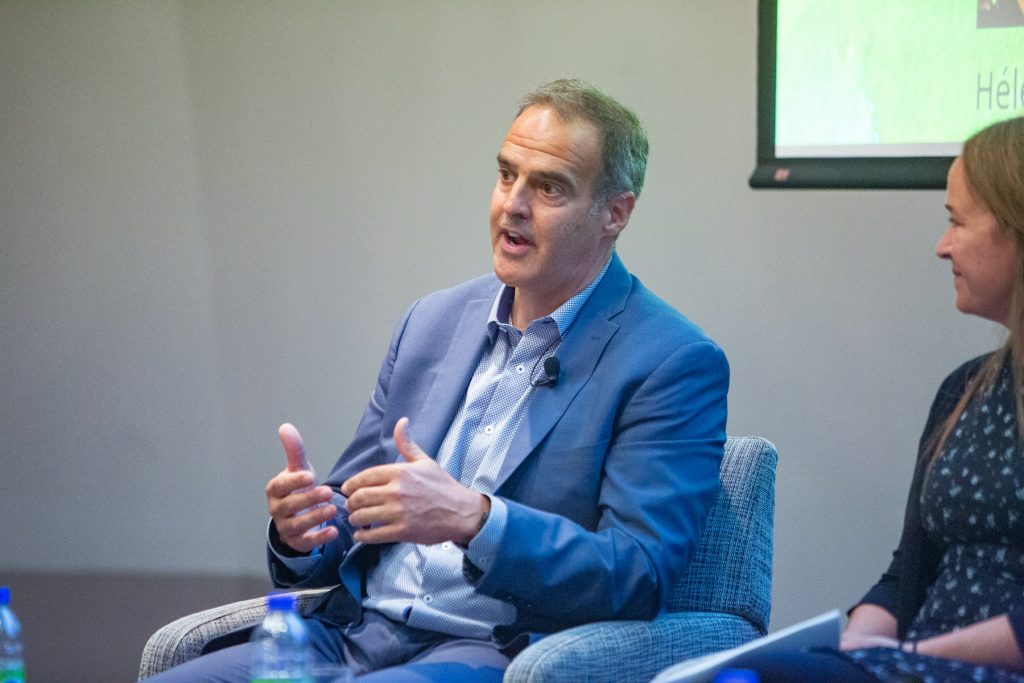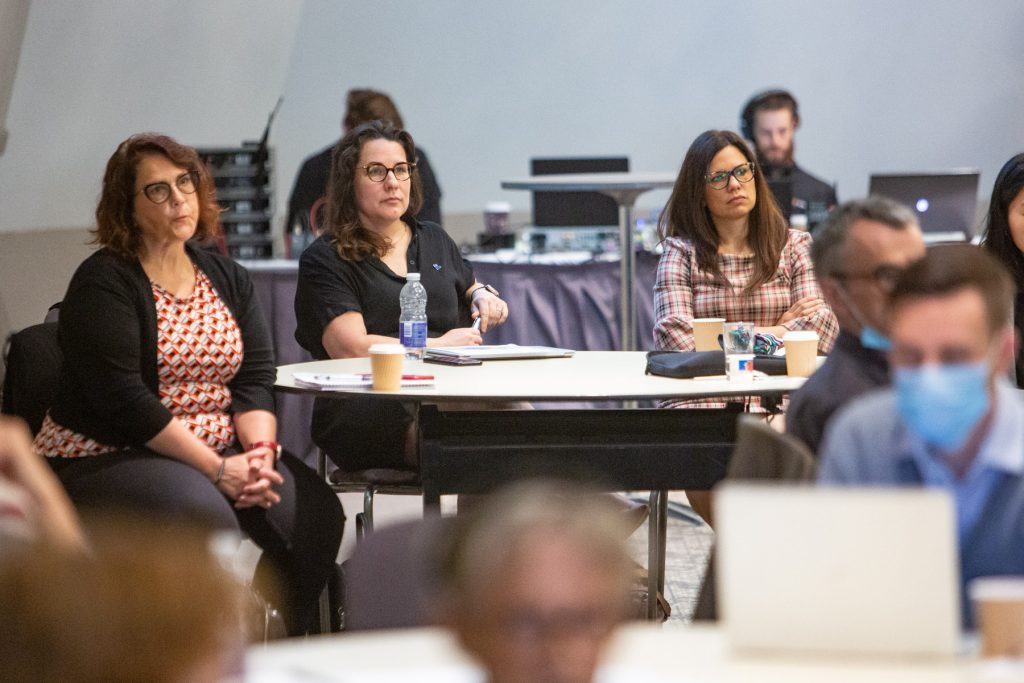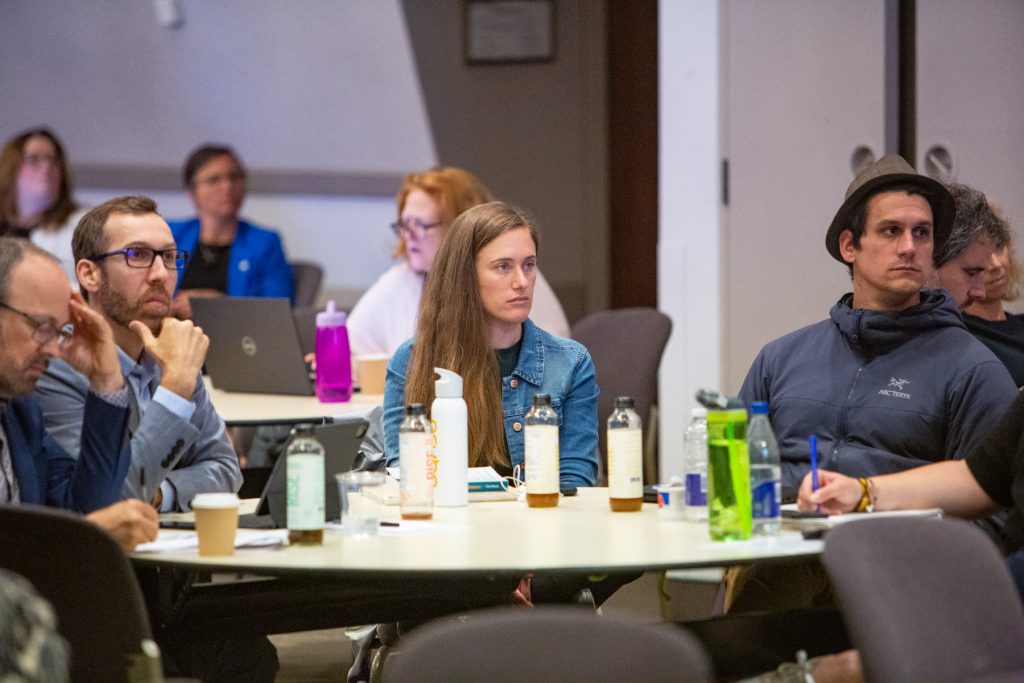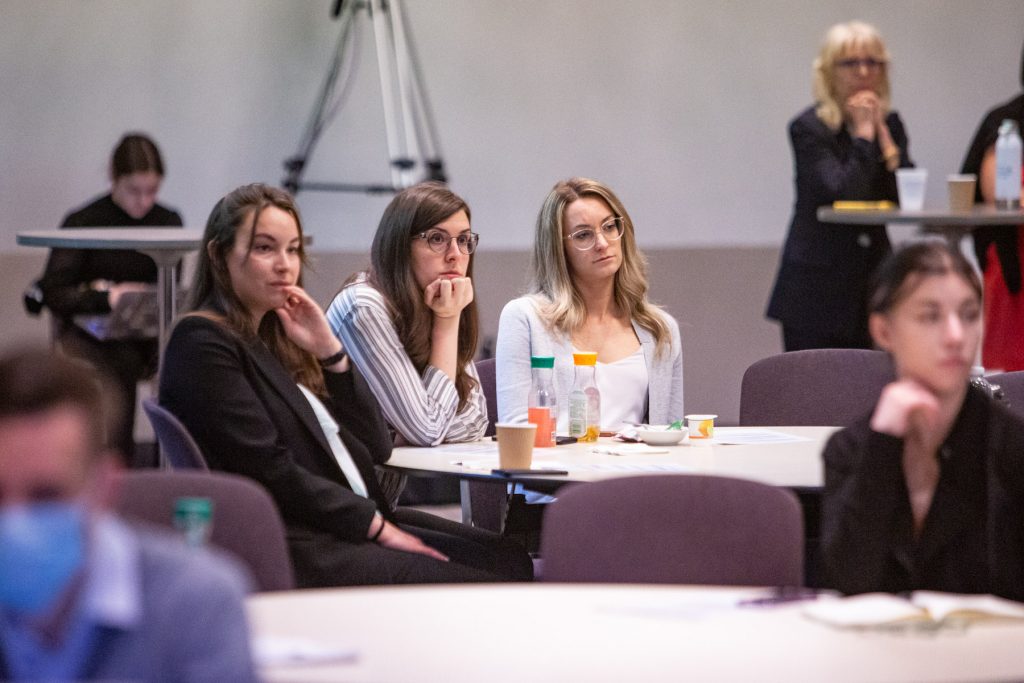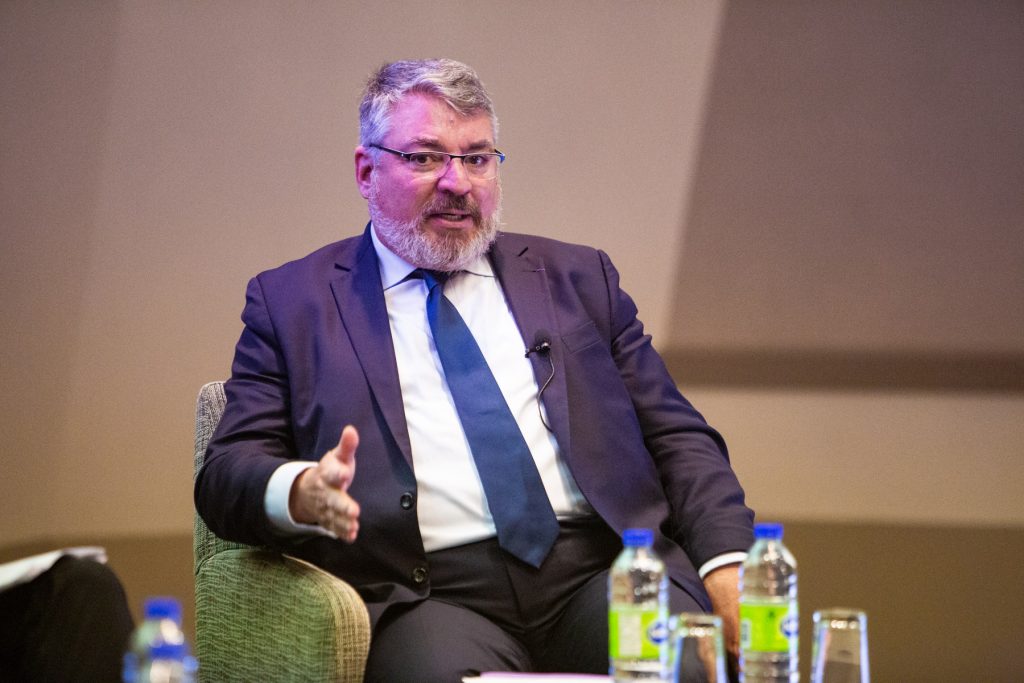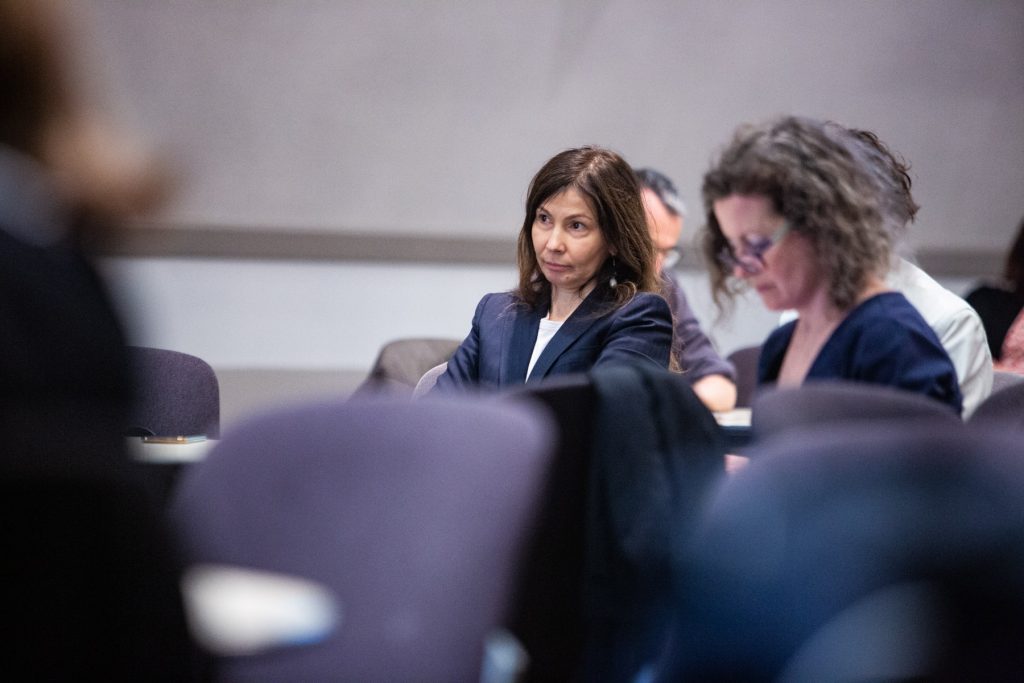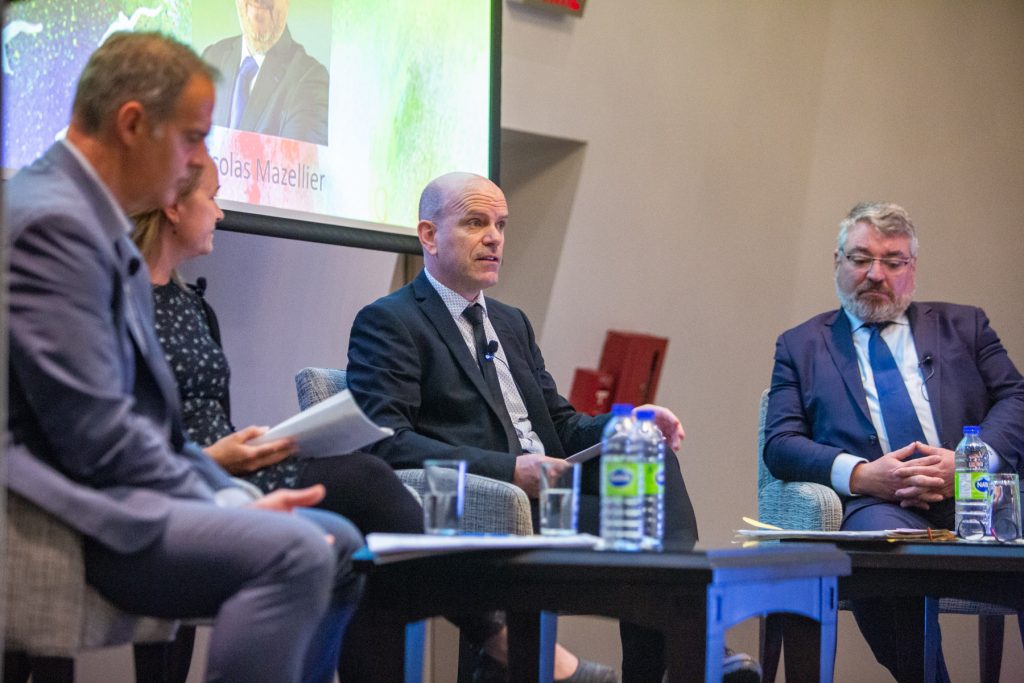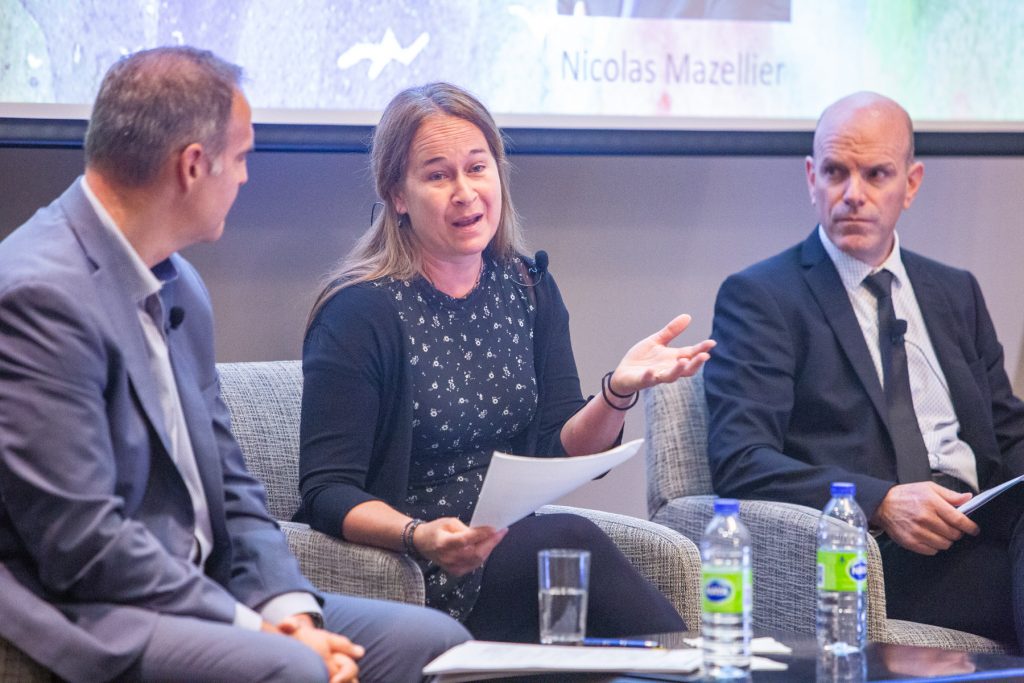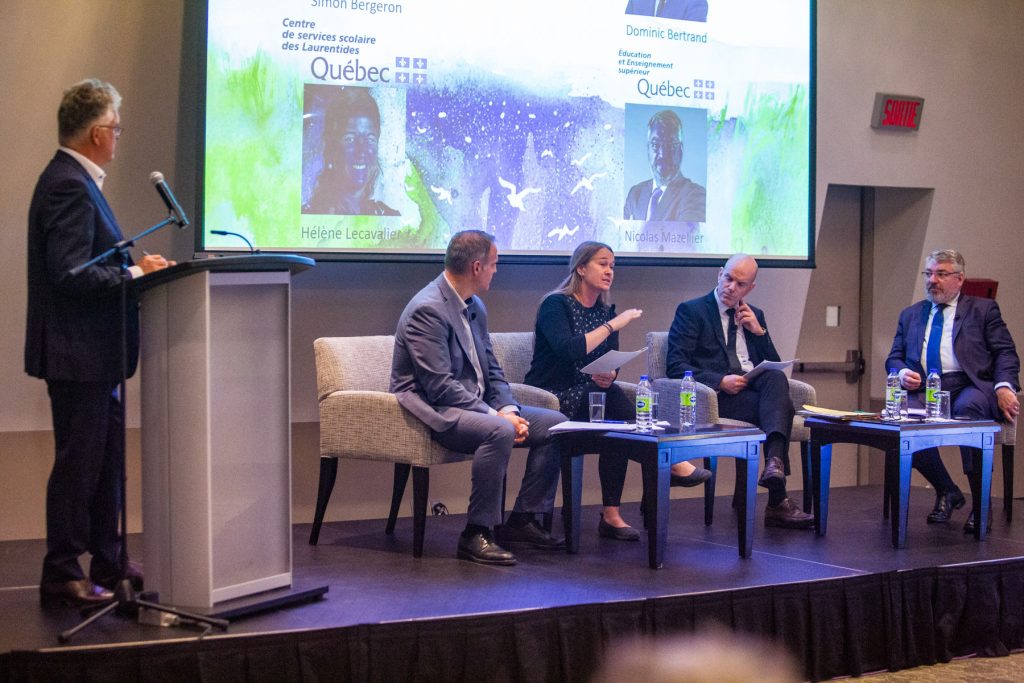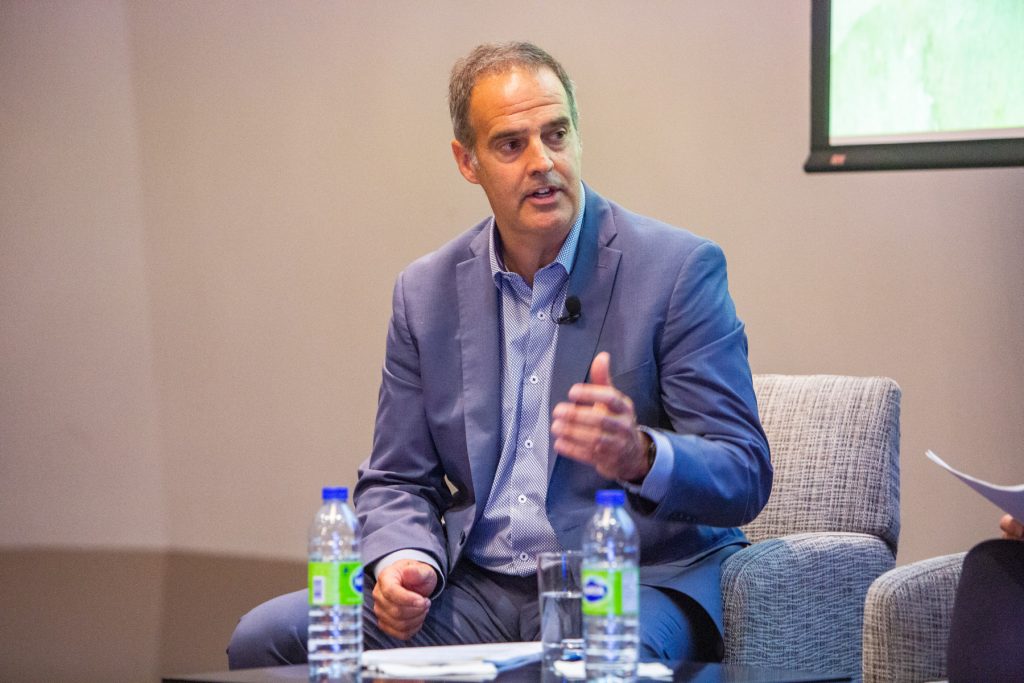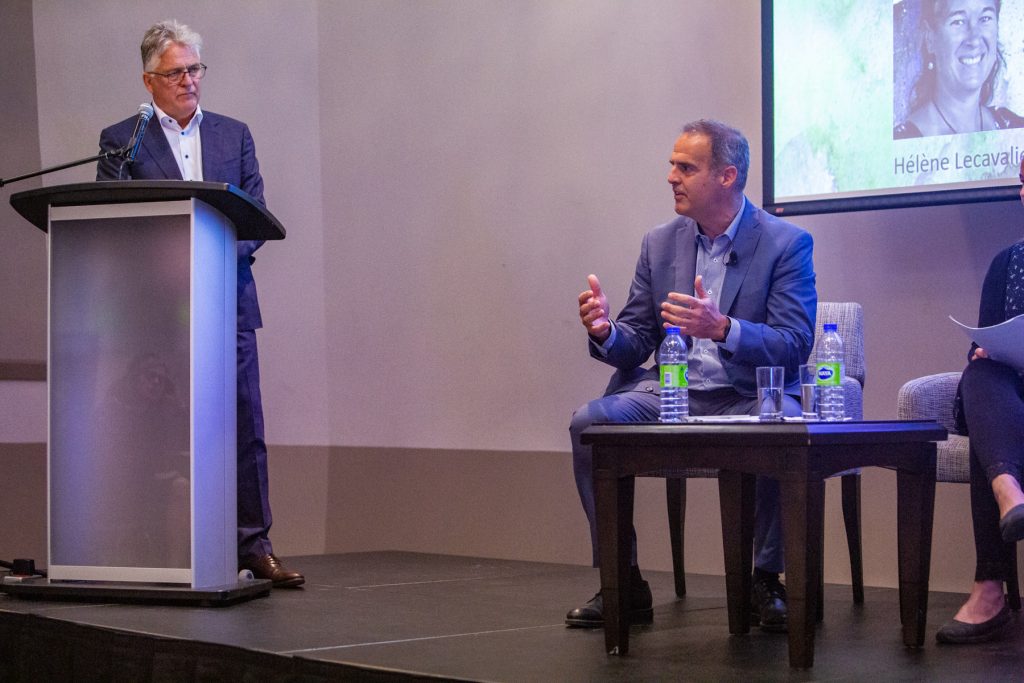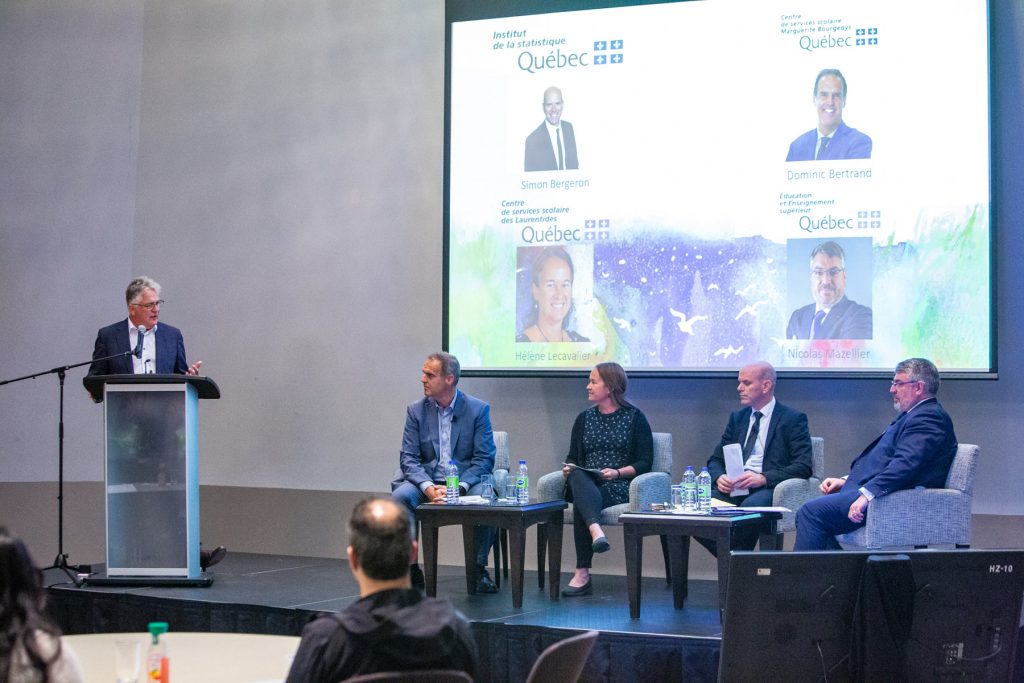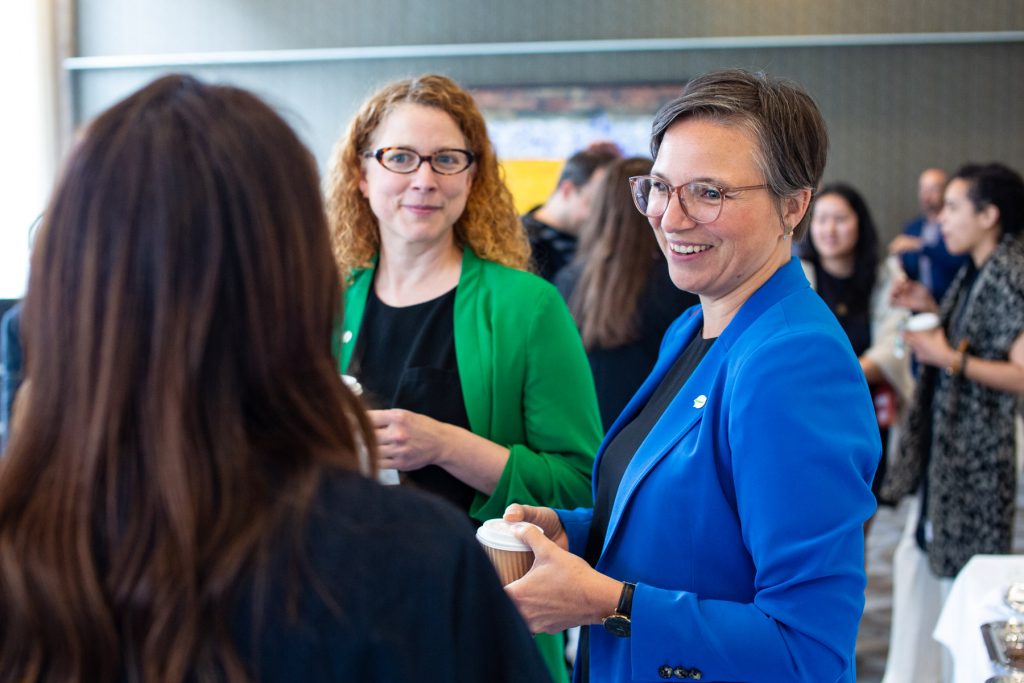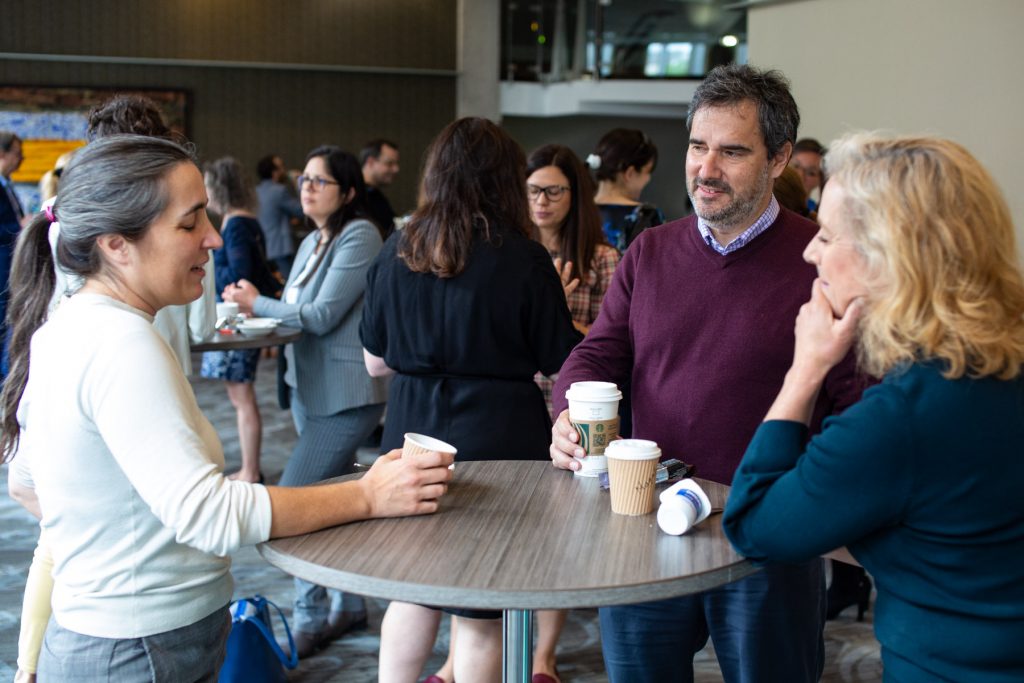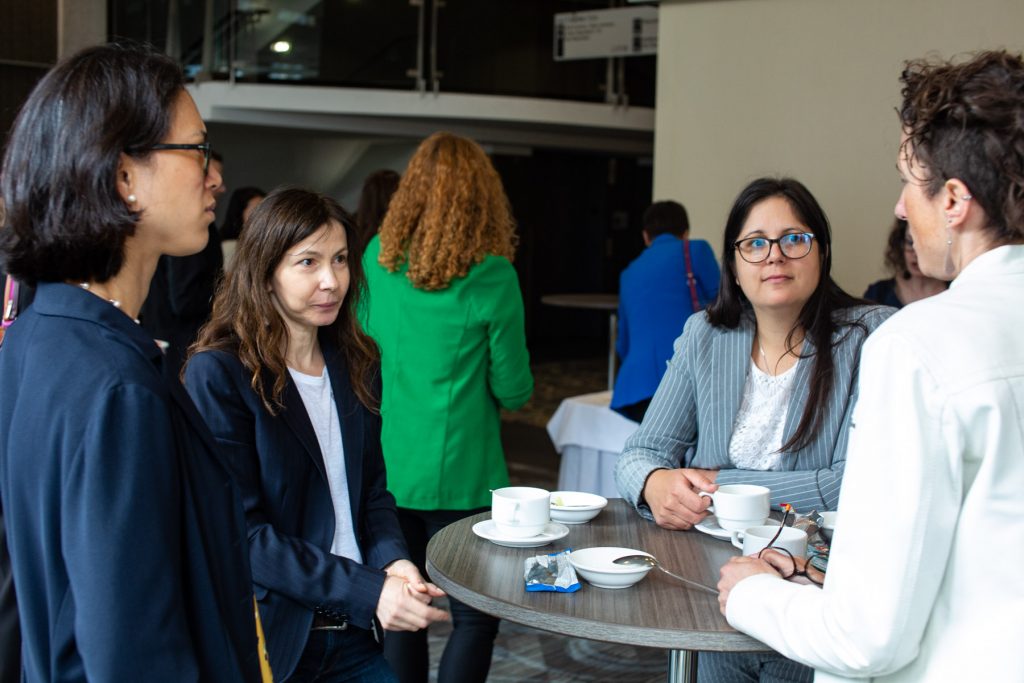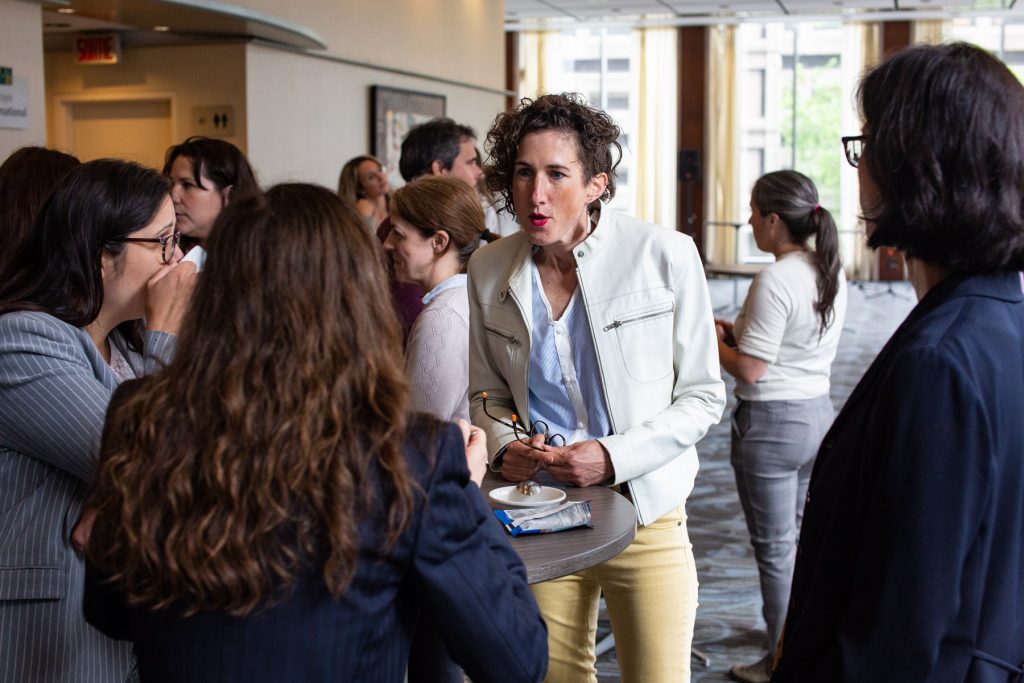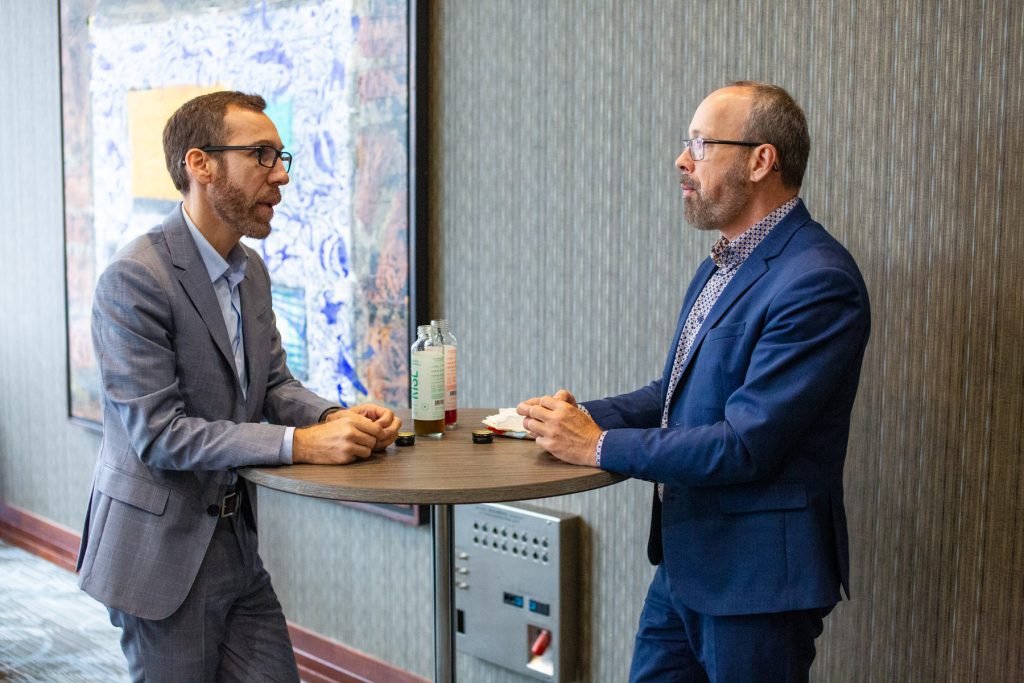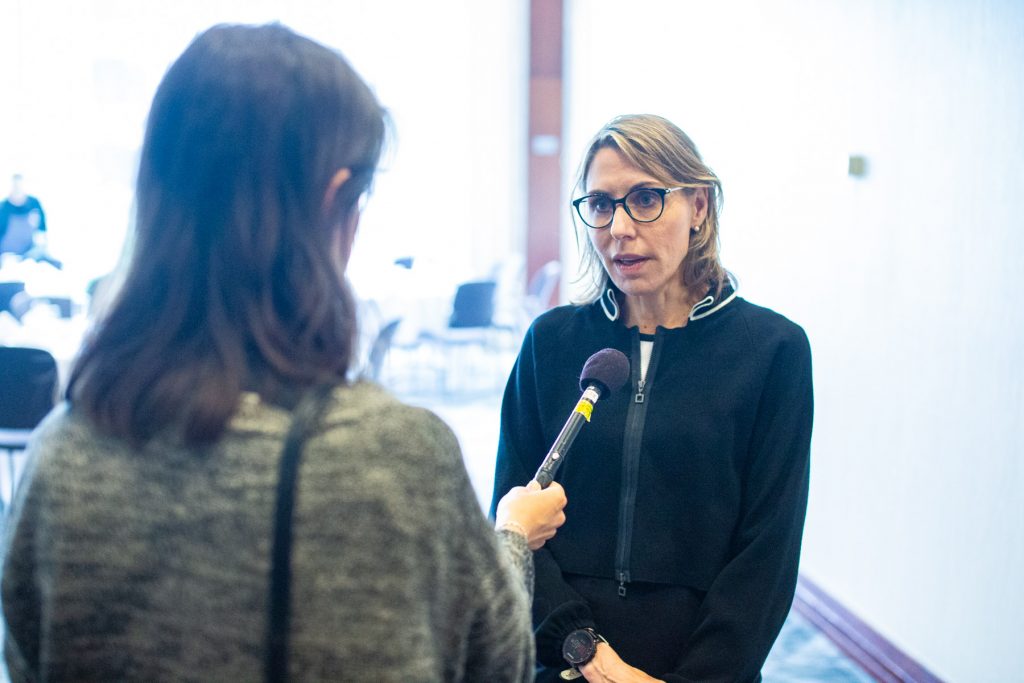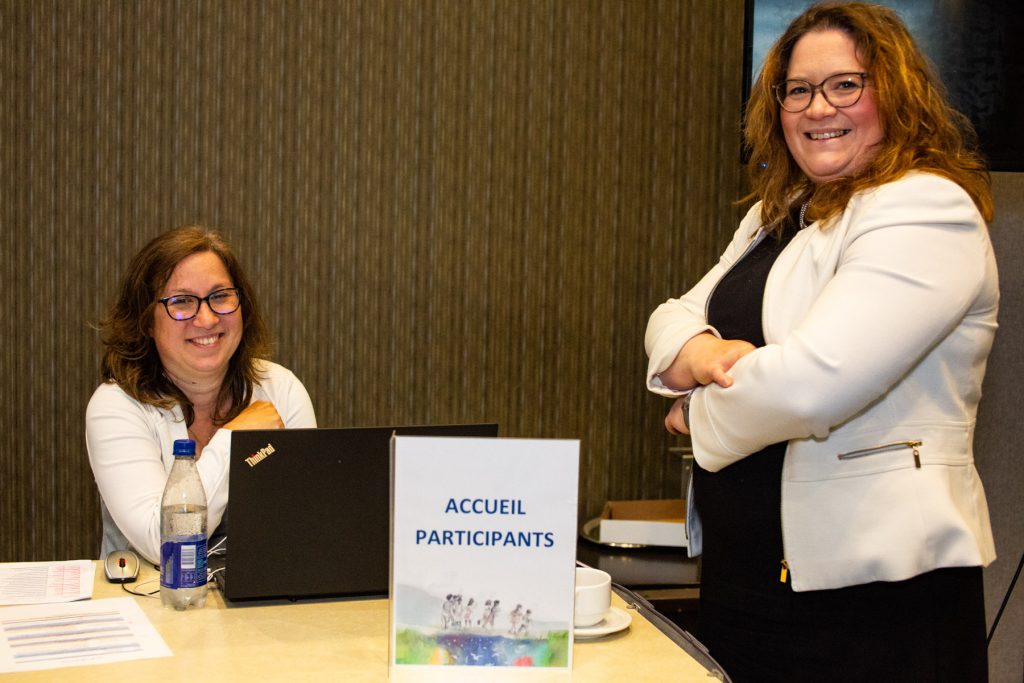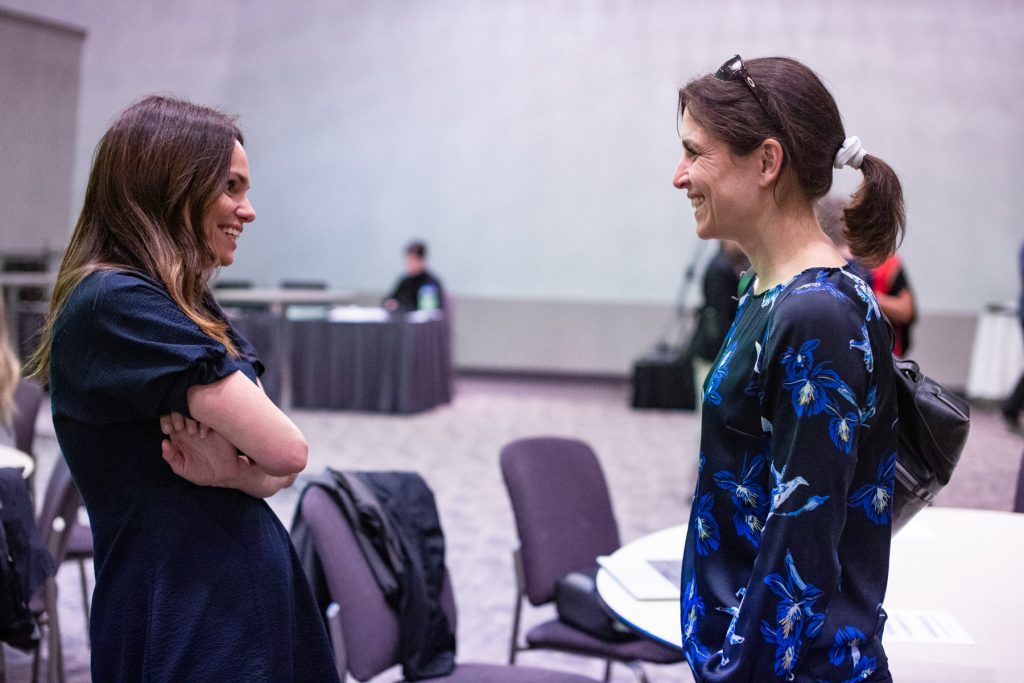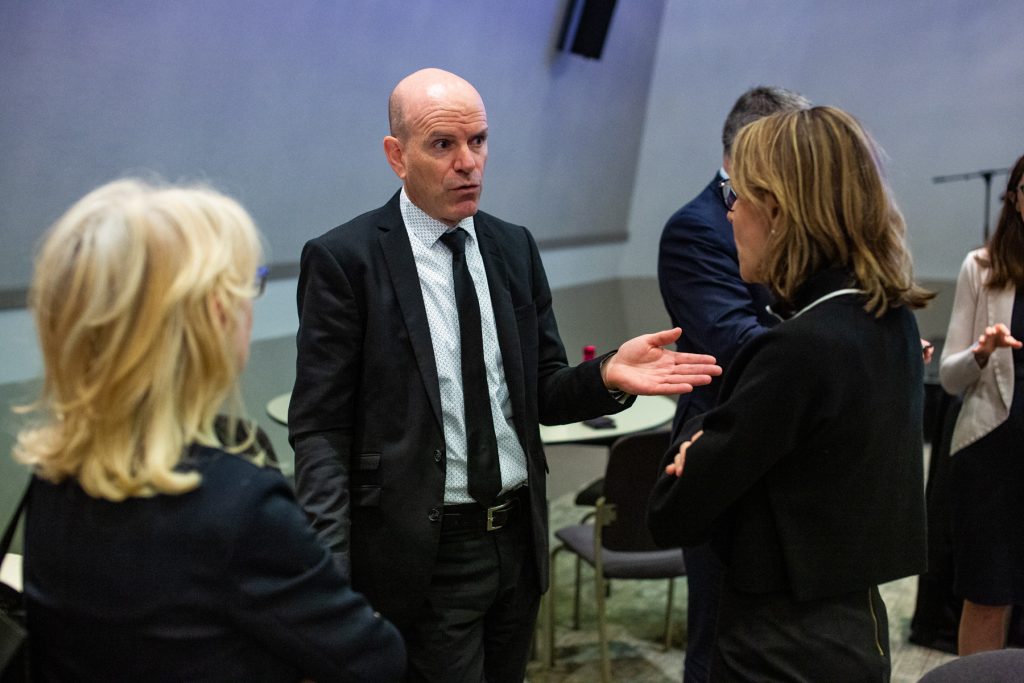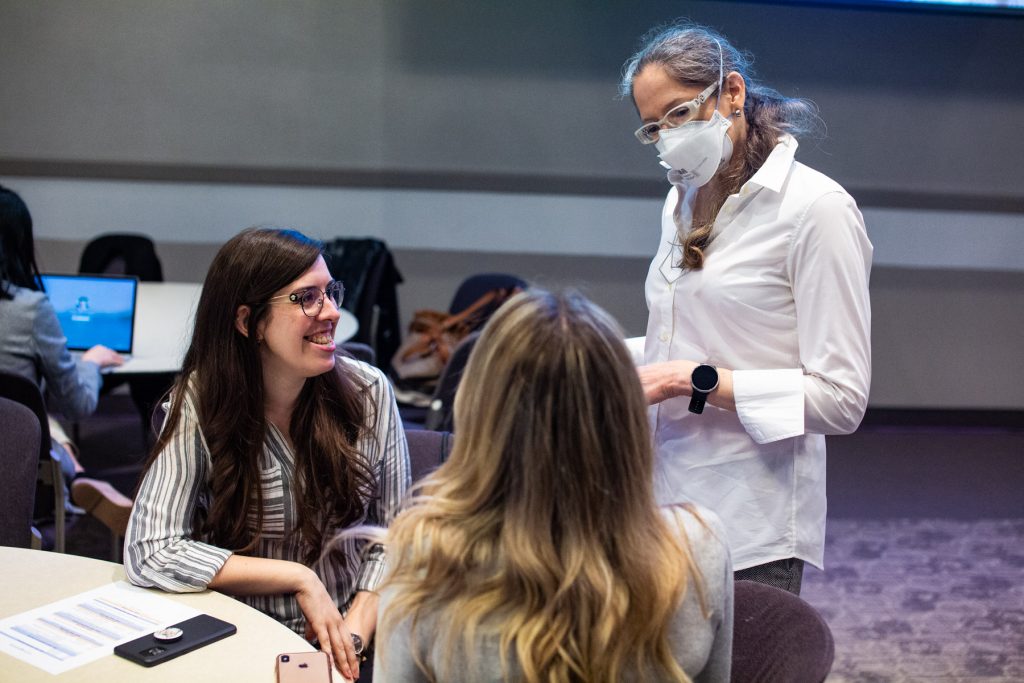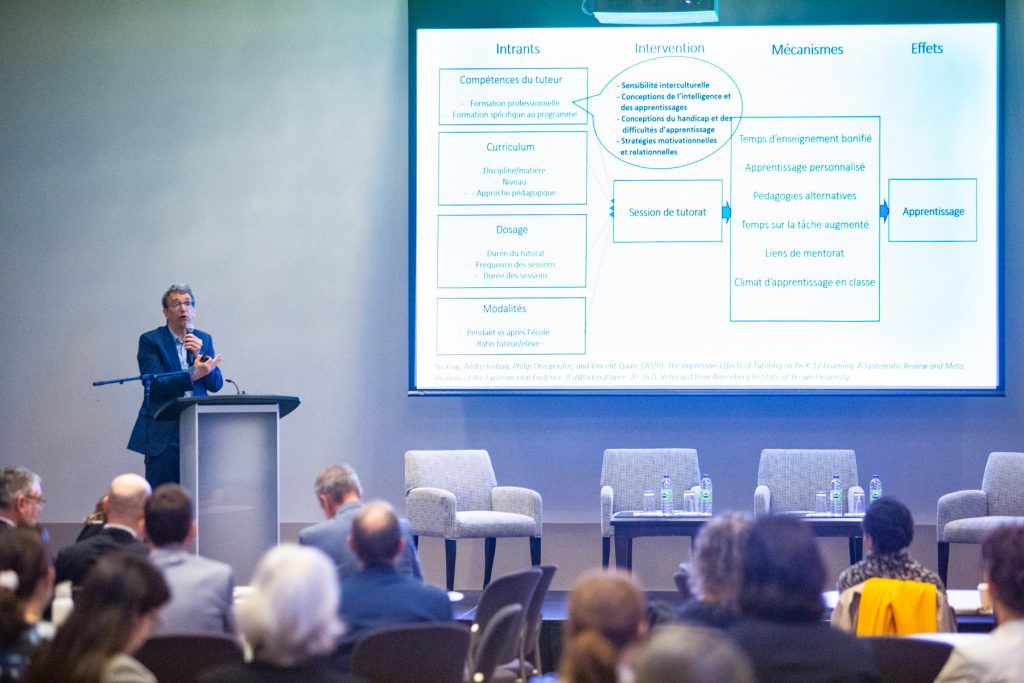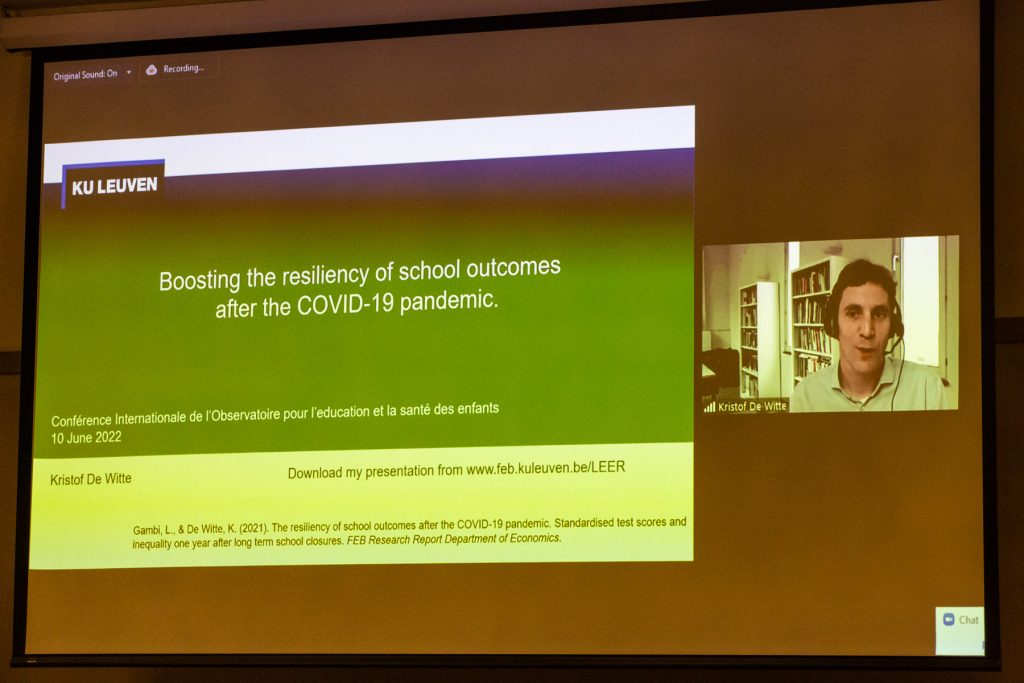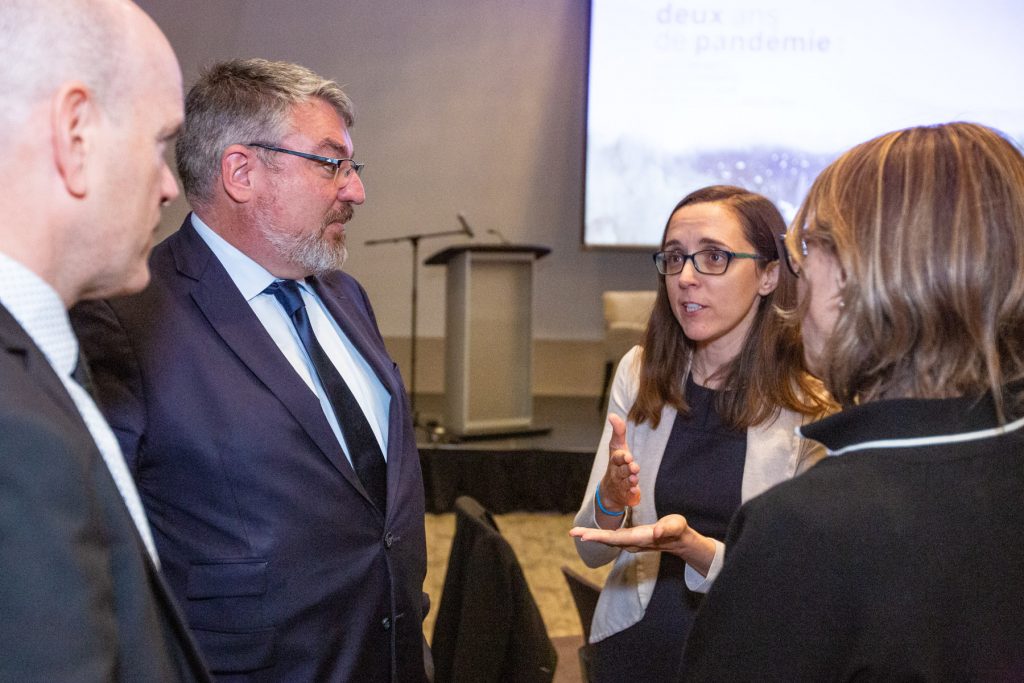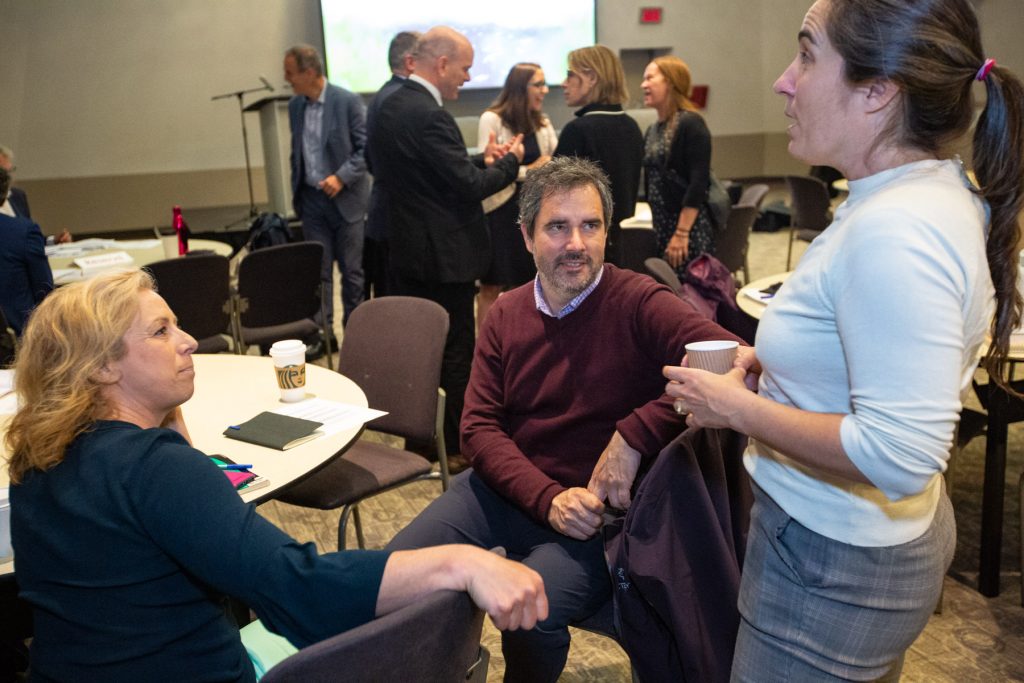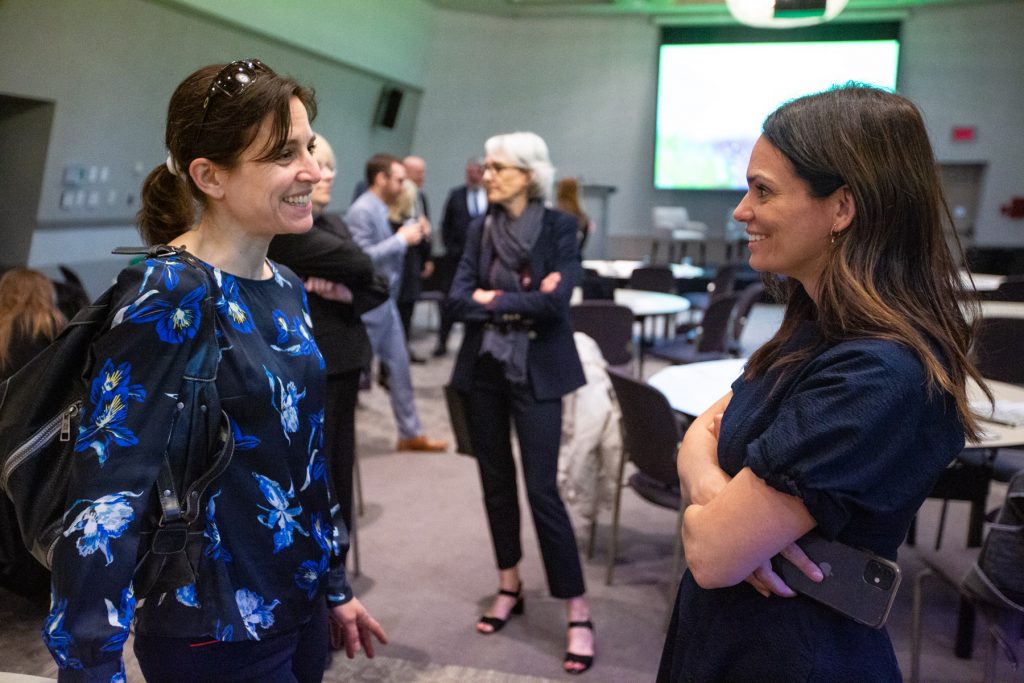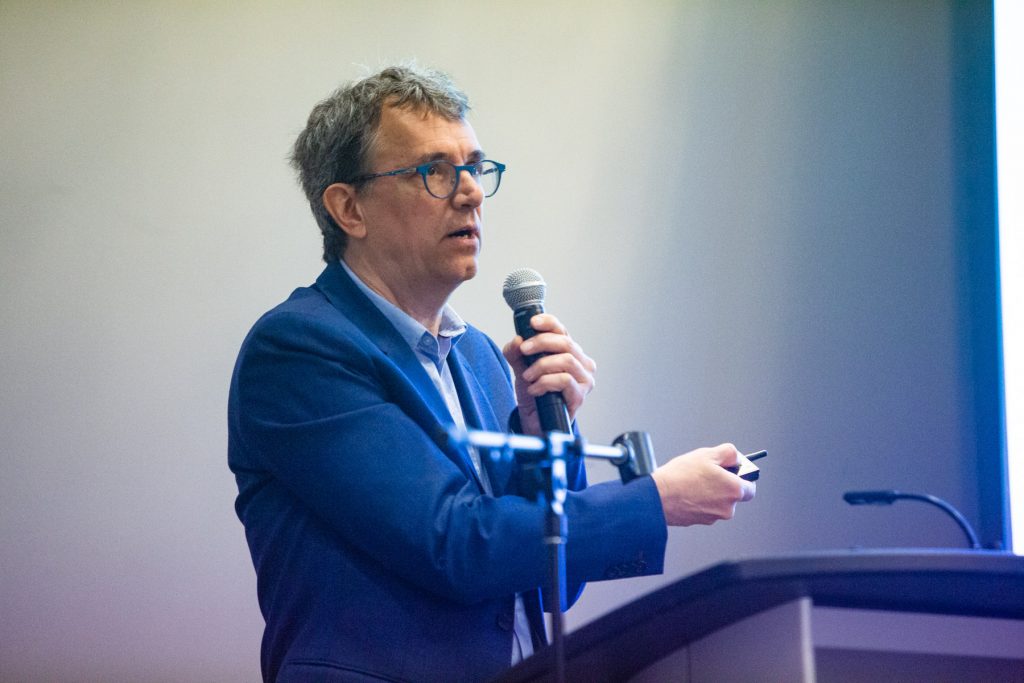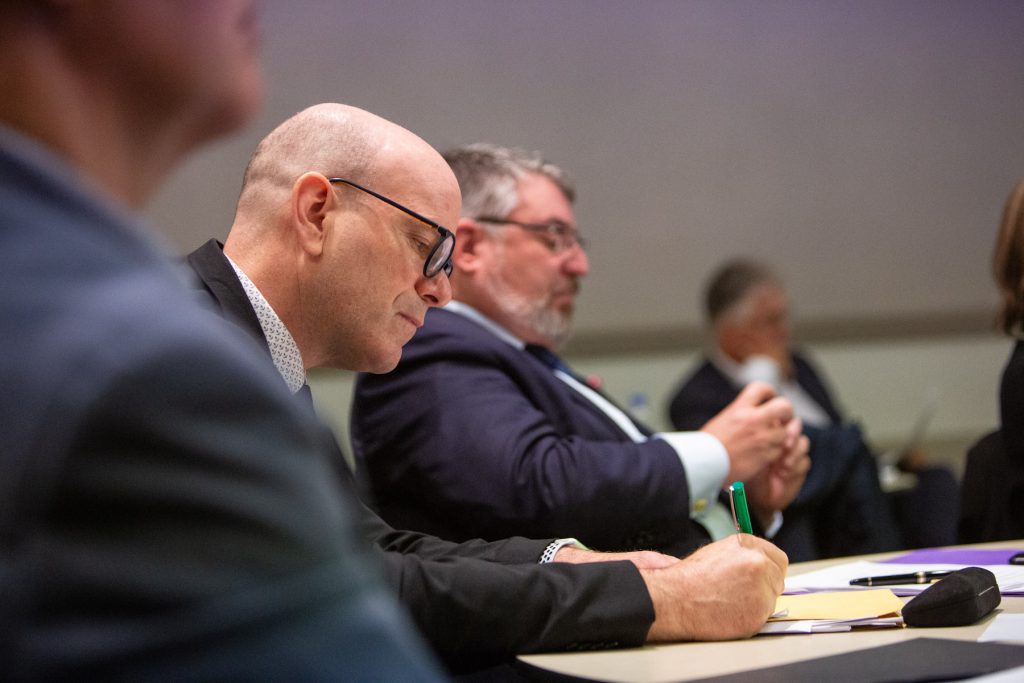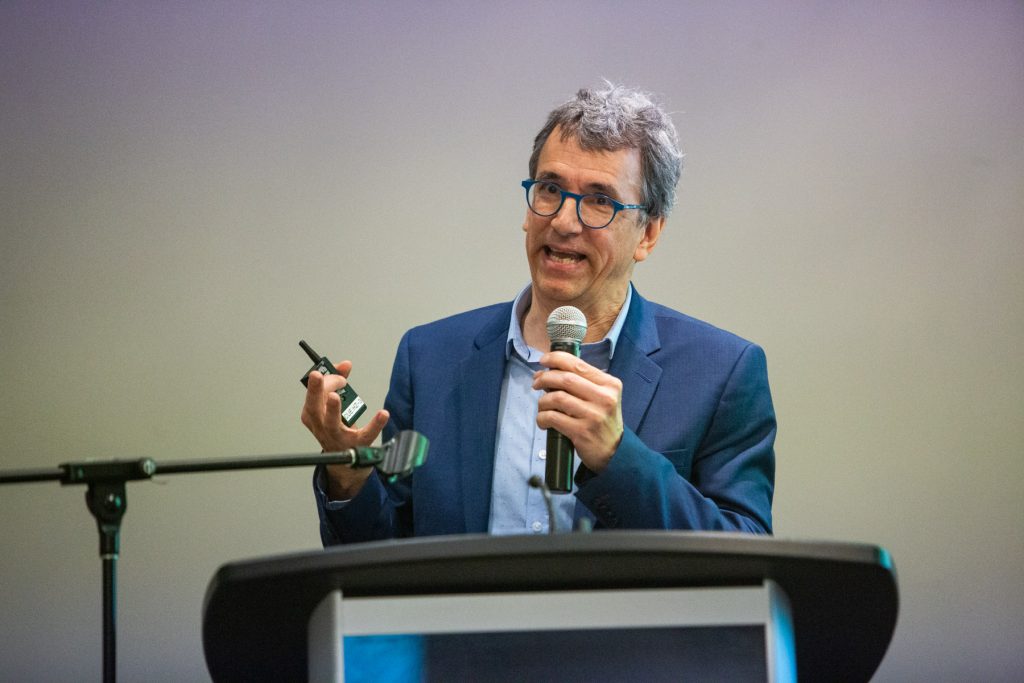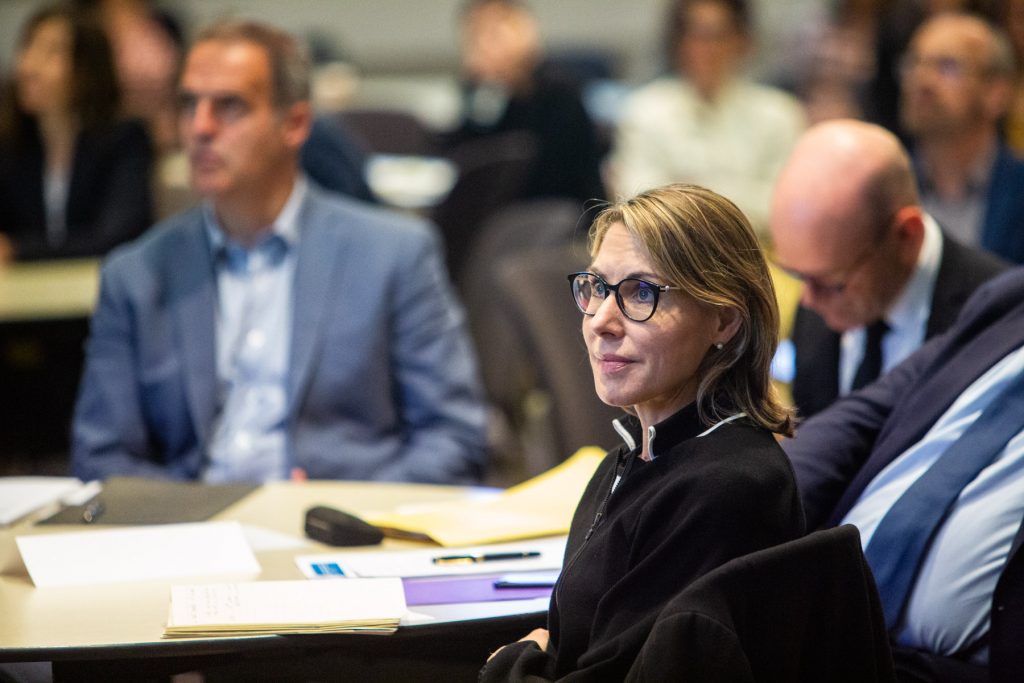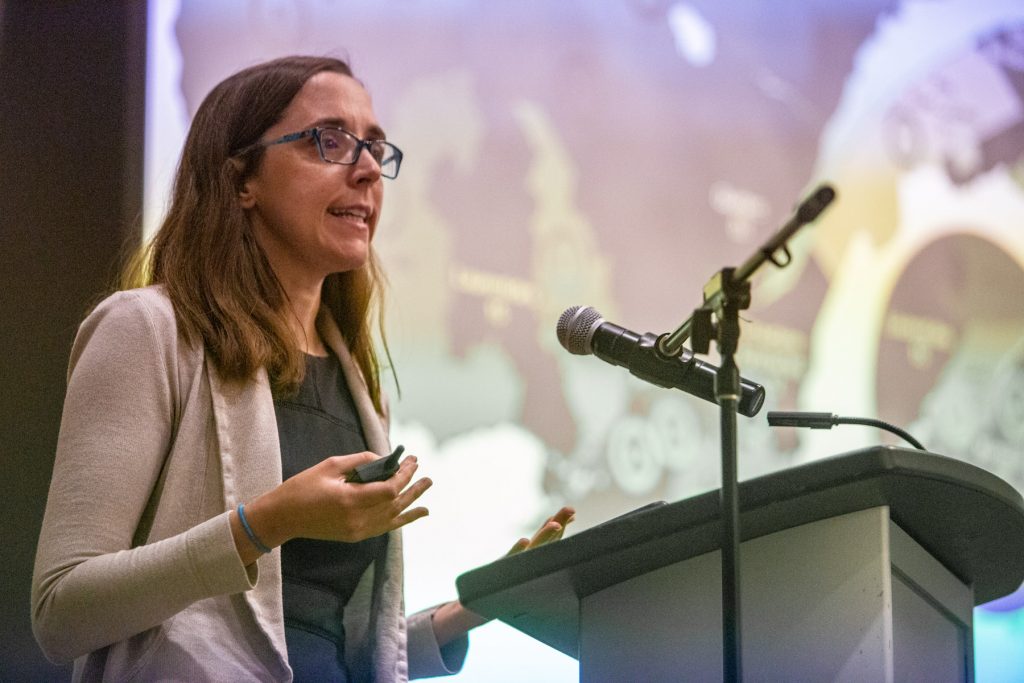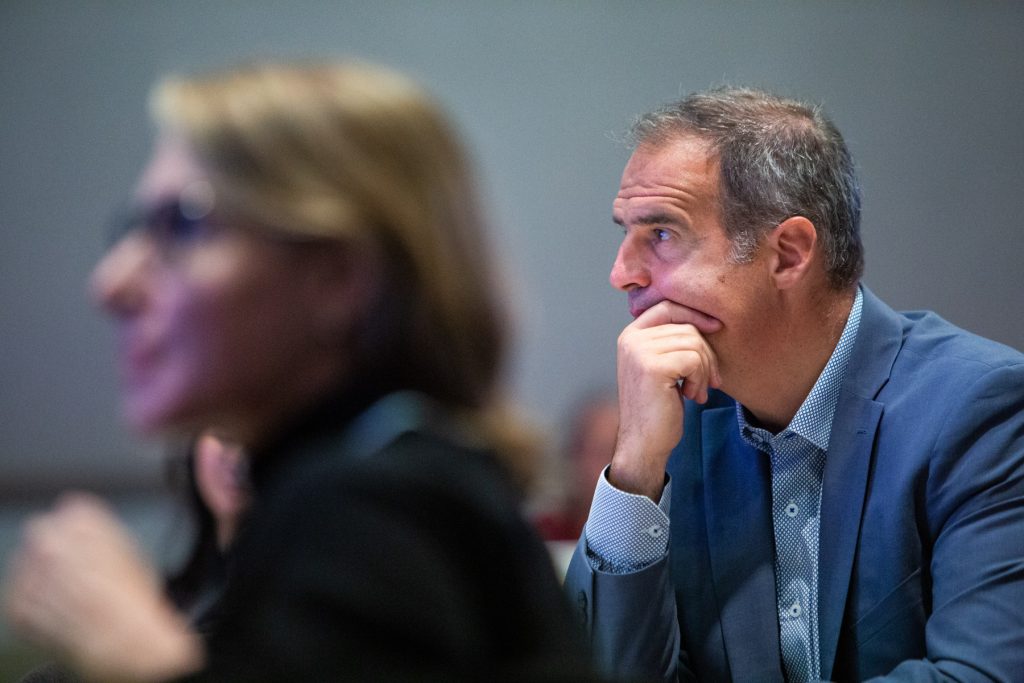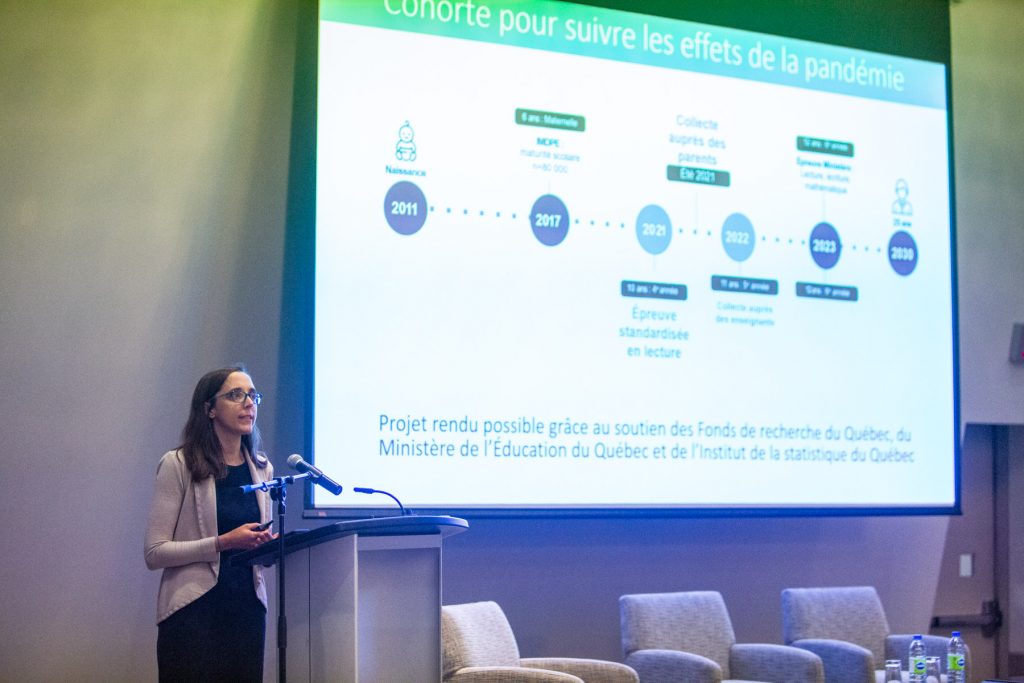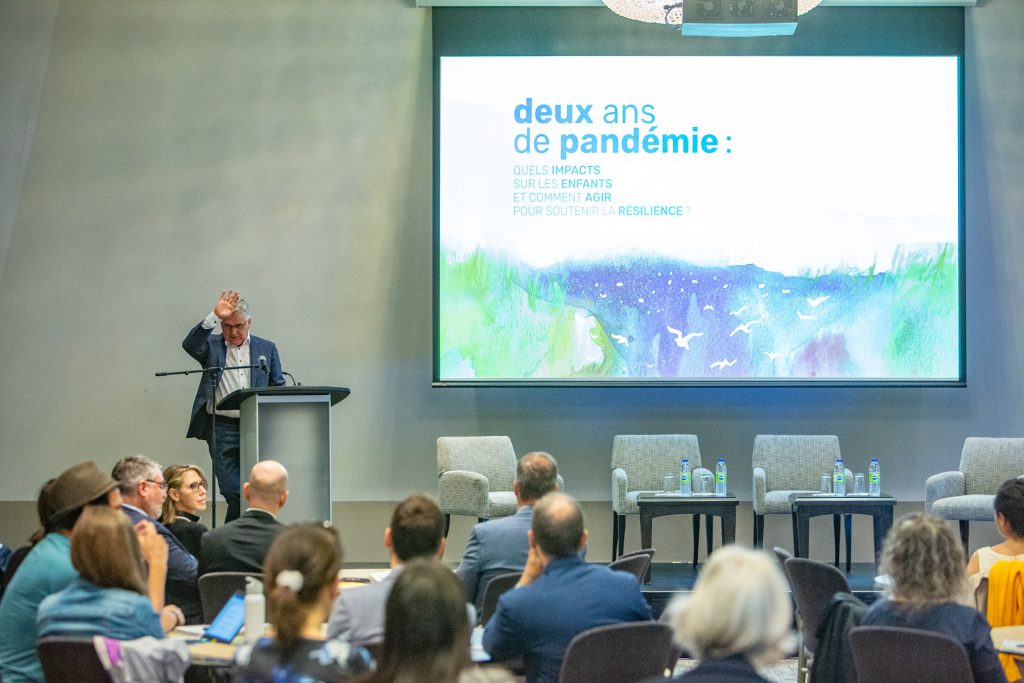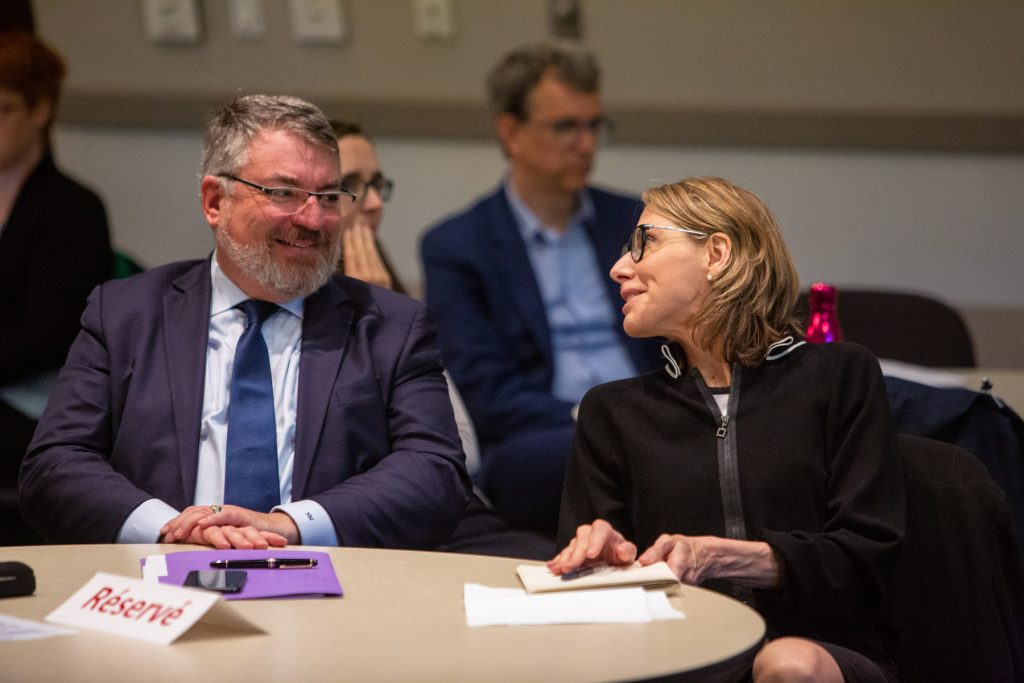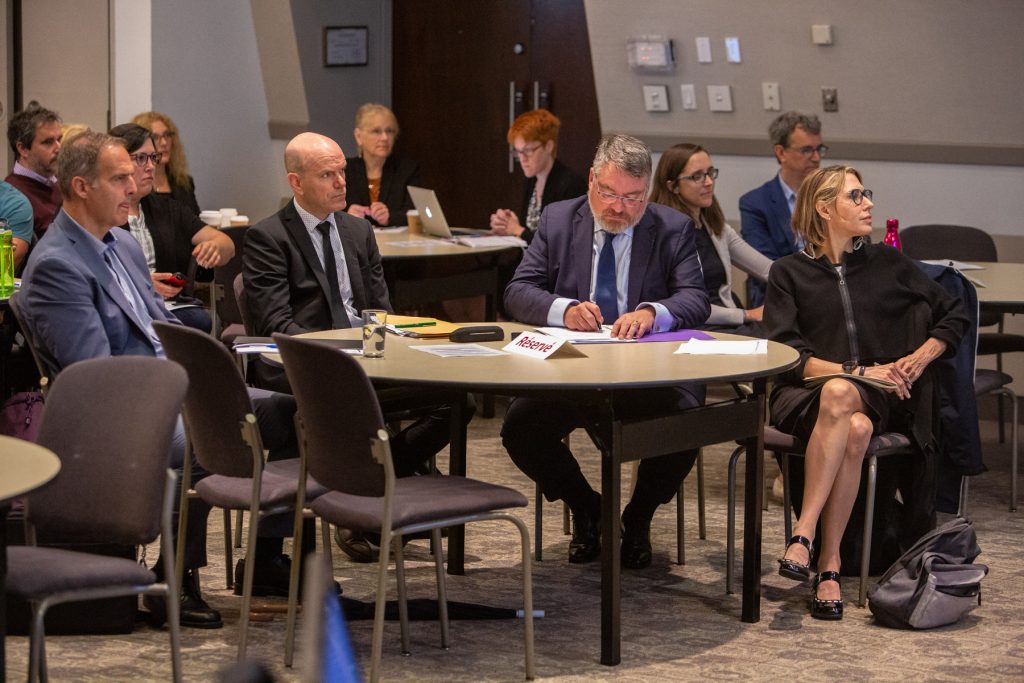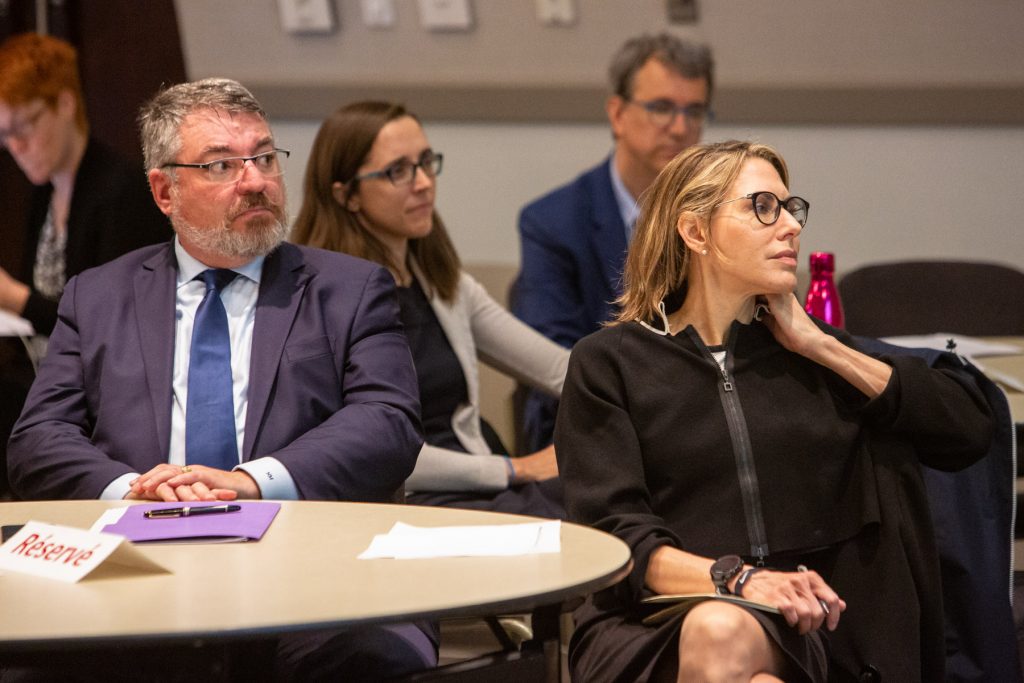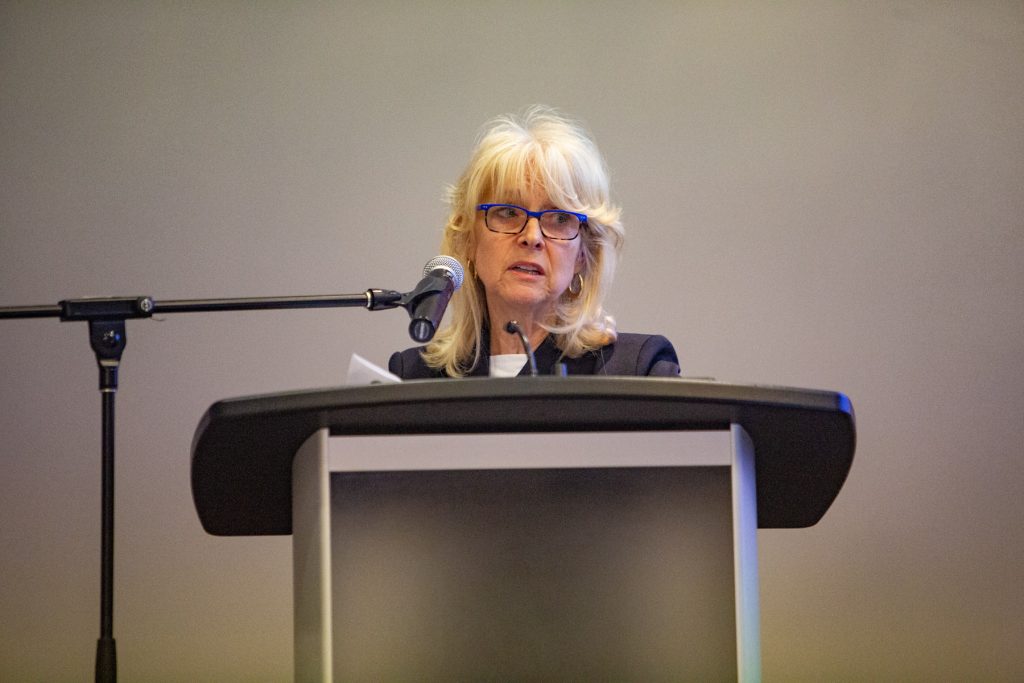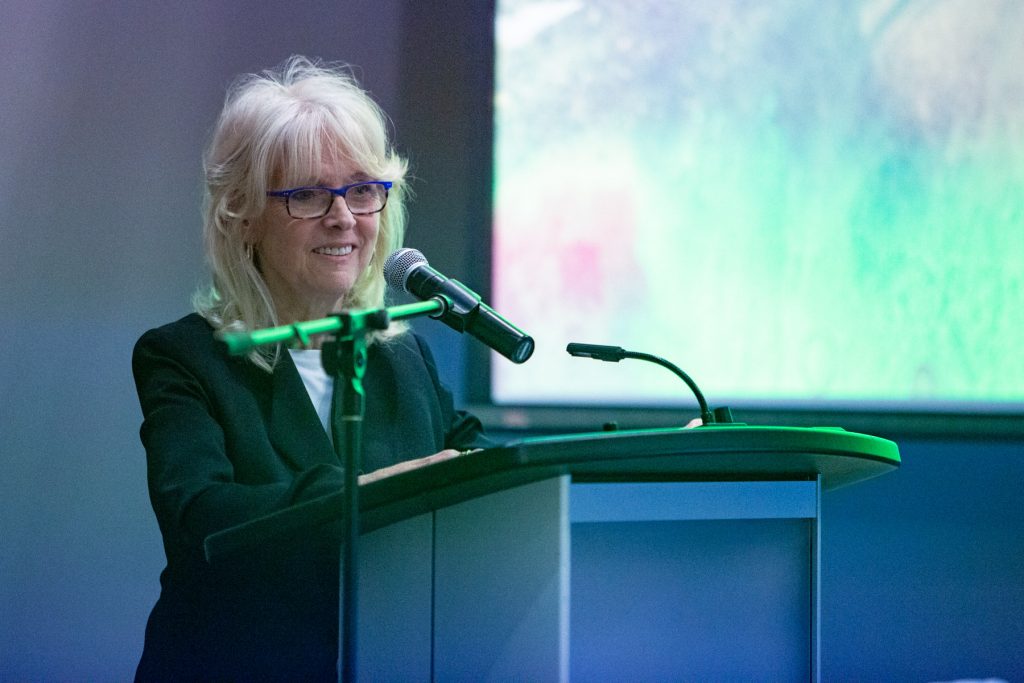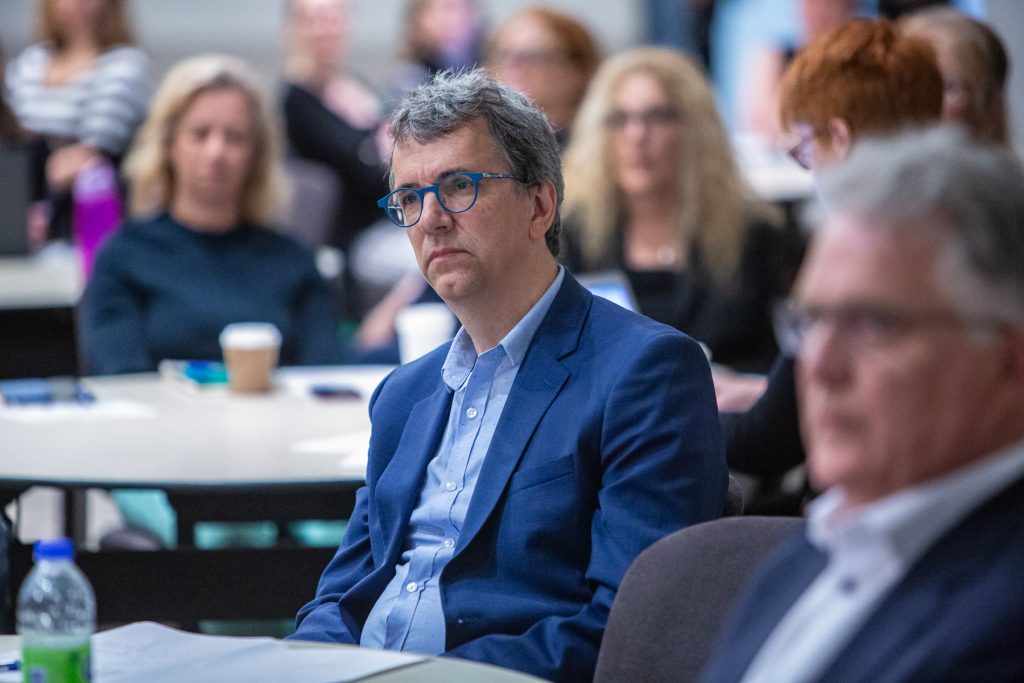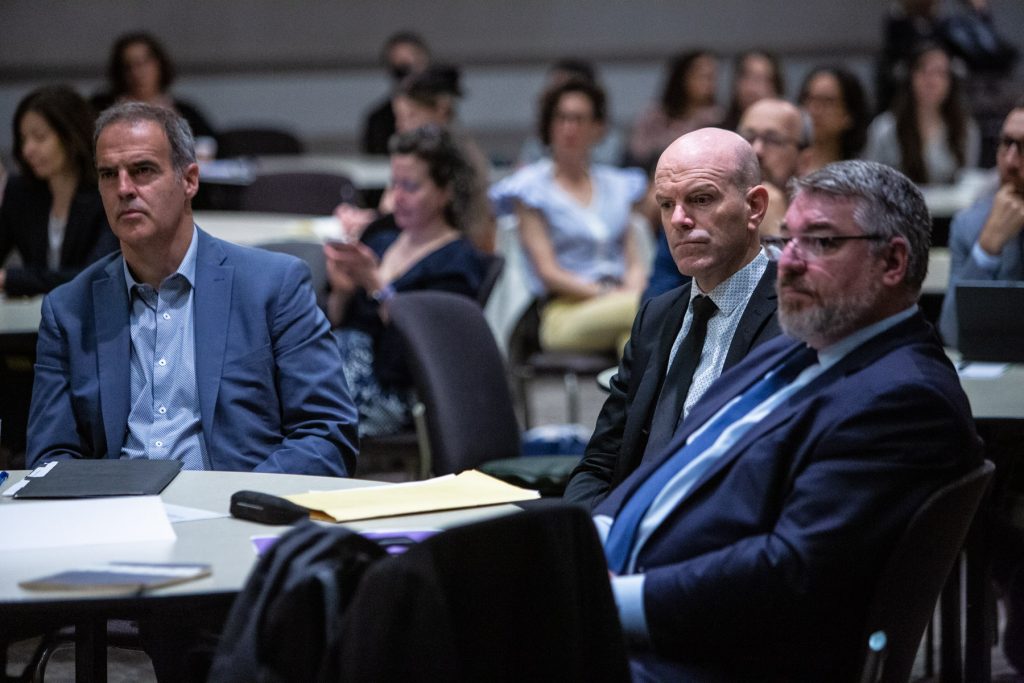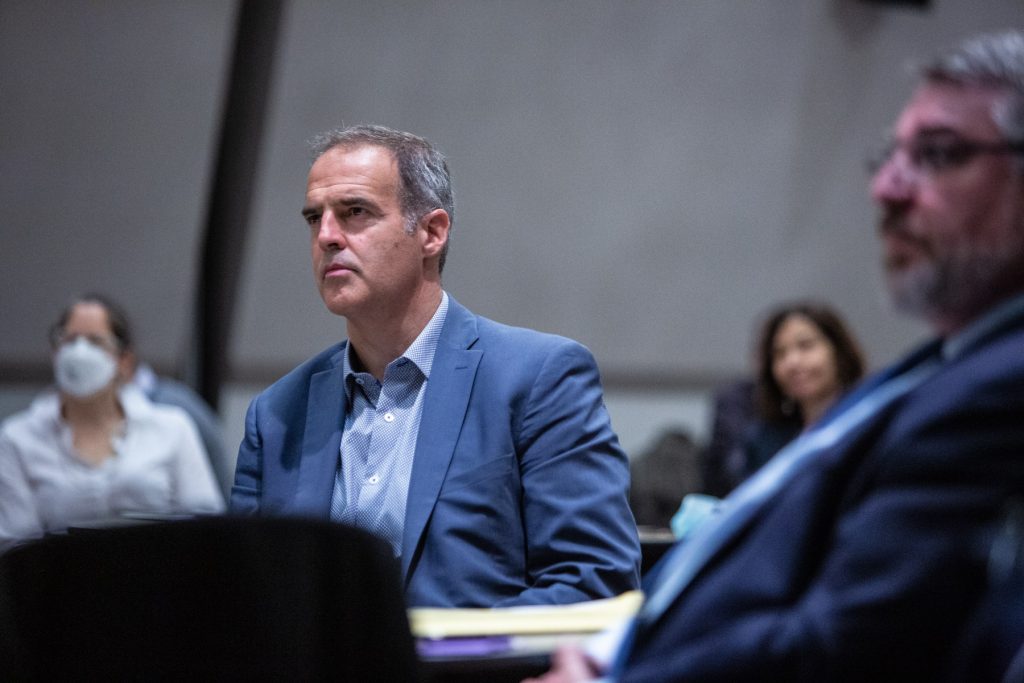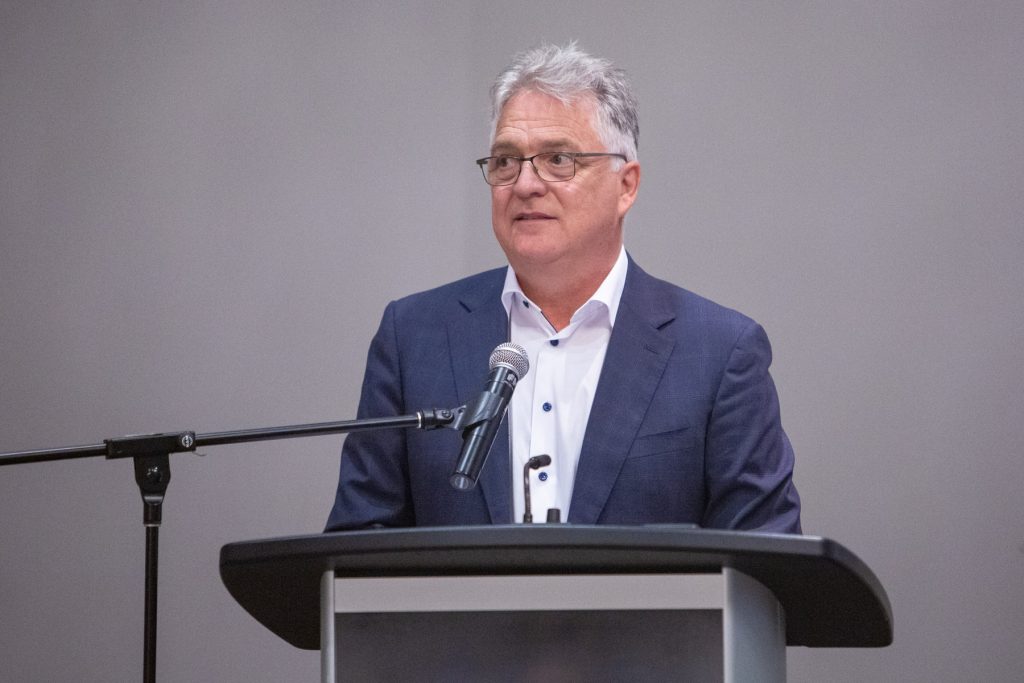
OPES International Conference Two Years of the Pandemic: What Impacts on Children and How to Act to Support Resilience (2022)
Recordings
Address by Dr. Sylvana Côté
The COVID-19 pandemic has affected, directly or indirectly, the life trajectory of many young people. The conference, organized by OPES and CHU Ste-justine, in collaboration with CIQSS and Cirano, will take a national and international perspective in order to: 1) review the scientific knowledge on the impacts of the pandemic; 2) identify strategies that could help mitigate and possibly eliminate the negative consequences of the pandemic on children and youth. In particular, we will focus on identifying opportunities for the alliance between researchers, policy makers, and community partners, as well as the use of massive data (administrative and research) to improve education and health of children. See here the presentation of Dr. Sylvana Côté, psychologist by training, full professor at the School of Public Health of the Université de Montréal and researcher at the CHU Ste-Justine. She directs the Groupe de Recherche sur l’Inadaptation Psychosociale chez l’enfant and the Observatoire pour l’Éducation et la Santé des Enfants, two multidisciplinary groups of researchers funded by the FRQSC. She is a member of the Royal Society of Canada. She conducts longitudinal studies and interventions in the prevention of psychosocial maladjustment.
Address by Dr. Benoit Dostie
The COVID-19 pandemic has affected, directly or indirectly, the life trajectory of many young people. The conference, organized by OPES and CHU Ste-Justine, in collaboration with CIQSS and CIRANO, will take a national and international perspective in order to take stock of the scientific knowledge on the impacts of the pandemic and to identify population-based strategies that could help mitigate and possibly eliminate the negative consequences of the pandemic on children and youth. In particular, we will focus on identifying opportunities for alliances between researchers, education and health stakeholders, and community partners, as well as the use of massive data (administrative and research) to improve education and health of children. See here the speech of Dr. Benoit Dostie, professor in the Department of Applied Economics at HEC and academic director of the Quebec Interuniversity Centre for Social Statistics (CIQSS).
Address by Dre Louise Poissant
The COVID-19 pandemic has affected, directly or indirectly, the life trajectory of many young people. The conference, organized by OPES and CHU Ste-Justine, in collaboration with CIQSS and CIRANO, will take a national and international perspective in order to take stock of the scientific knowledge on the impacts of the pandemic and to identify population-based strategies that could help mitigate and possibly eliminate the negative consequences of the pandemic on children and youth. In particular, we will focus on identifying opportunities for alliances between researchers, education and health stakeholders, and community partners, as well as the use of massive data (administrative and research) to improve education and health of children. See here the speech of Dr. Louise Poissant, Scientific Director of the Fonds de recherche du Québec – Société et culture (FRQSC). She has taught in the Department of Communication at the University of Ottawa, held the position of full professor at the School of Visual and Media Arts at UQAM, directed the Centre interuniversitaire des arts médiatiques, and served as Dean of the Faculty of Arts at the Université du Québec à Montréal (UQAM).
Inequality in the Effects of Primary School Closures due to the Covid-19 Pandemic – Updated evidence from the Netherlands - Dre Catherine Haelermans
Using a large dataset from around 500,000 Dutch primary students from about 2200 schools, we analyse the effect of two years of the pandemic on growth in proficiency rates of standardized tests for mathematics, reading and spelling in Dutch primary education. Using rich (social) background information on both the students and the school, we analyse differential effects by SES of the student. We find that the pandemic still has a negative effect on growth in proficiency score for maths and spelling, already the learning growth for reading seems to be back to normal. The negative effect of the pandemic for spelling and maths is larger for students from a low and average SES than for students from a high SES. When analysing the first year into the pandemic separately from the second year, we find that the delays in learning growth are about the same in both years, implying that hardly any catching up happened in the second year. Many strategies were put in place since the start of the pandemic to undo the negative consequences, one of them being the implementation of catch up programmes for disadvantaged children. We show that these programmes were effective and that inequality has decreased due to them.
Learning and tutoring in a pandemic context - Dr. Catherine Haeck and Dr. Simon Larose
The COVID-19 pandemic has affected, directly or indirectly, the life trajectory of many young people. The conference, organized by OPES and CHU Ste-Justine, in collaboration with CIQSS and CIRANO, will take a national and international perspective in order to take stock of the scientific knowledge on the impacts of the pandemic and to identify population-based strategies that could help mitigate and possibly eliminate the negative consequences of the pandemic on children and youth. In particular, we will focus on identifying opportunities for alliances between researchers, education and health stakeholders, and community partners, as well as the use of massive data (administrative and research) to improve education and health of children. See the presentation by Dr. Catherine Haeck and Dr. Simon Larose here. Dr. Haeck is a full professor in the Department of Economics at the Université du Québec à Montréal. She is co-director of OPES and director of the CIQSS-UQAM-INRS laboratory. Dr. Larose is a full professor in the Department of Teaching and Learning Studies and director of the OPES education axis. His research focuses on school transition and school and community mentoring.
Boosting the resiliency of learning outcomes - Dr Kristof De Witte
After the largest disruption of education in history, the question remains as to whether, and to what extent, school outcomes are resilient and inequality persists. To answer these questions, this presentation exploits a unique panel data-set with standardised test scores and administrative data pertaining to the last year of primary education in the Flemish region of Belgium. For the subjects of native language (Dutch), math, science, social science and foreign language (French), exactly the same standardised tests were administered in 2019 (pre-pandemic), 2020 and 2021. Our empirical specification captures (un)observed heterogeneity at school level, a time trend, and time-varying control variables. The resilience in school outcomes differs per subject as we observe additional attainment deficits in the Dutch and French language one year after the pandemic. For math, the impact of the COVID-19 school closures is halted, but not reversed yet. For science, students in the 2021 cohort have started catching up (though insignificantly) with previous cohorts, while the 2021 test scores improved significantly for social sciences. Notwithstanding the halted attainment deficits in math in 2021, a quantile analysis suggests that the math test scores of the best-performing students in a school (i.e., quantile 70 to 95) have significantly declined, while those of low-performing students seem to have slightly improved (though insignificantly). One year after the COVID-19 school closures, the inequality within schools seems to have increased in the Dutch language and decreased in mathematics. Further, the findings suggest that targeted remedial actions (in particular summer schools), which were mainly focusing on the most vulnerable students, were successful in halting attainment deficits.
Education round table conference
The COVID-19 pandemic has affected, directly or indirectly, the life trajectory of many young people. The conference, organized by OPES and CHU Ste-Justine, in collaboration with CIQSS and CIRANO, will take a national and international perspective in order to take stock of the scientific knowledge on the impacts of the pandemic and to identify population-based strategies that could help mitigate and possibly eliminate the negative consequences of the pandemic on children and youth. In particular, we will focus on identifying opportunities for alliances between researchers, education and health stakeholders, and community partners, as well as the use of massive data (administrative and research) to improve education and health of children. See here the morning roundtable on the topic of education. The panel was composed of Simon Bergeron, Dominic Bertrand, Hélène Lecavalier and Nicolas Mazellier.
Mental health of Quebec youth during the COVID-19 pandemic - Dr. Marie-Claude Geoffroy
The COVID-19 pandemic has affected, directly or indirectly, the life trajectory of many young people. The conference, organized by OPES and CHU Ste-Justine, in collaboration with CIQSS and CIRANO, will take a national and international perspective in order to take stock of the scientific knowledge on the impacts of the pandemic and to identify population-based strategies that could help mitigate and possibly eliminate the negative consequences of the pandemic on children and youth. In particular, we will focus on identifying the opportunities offered by the alliance between researchers, education and health actors and community partners, as well as the use of massive data (administrative and research) to improve education and health of children. Listen to Dr. Marie-Claude Geoffroy’s presentation on the mental health of Quebec youth during the COVID-19 pandemic.
Compass Quebec Presentation - Dr. Slim Haddad
The COVID-19 pandemic has affected, directly or indirectly, the life trajectory of many young people. The conference, organized by OPES and CHU Ste-Justine, in collaboration with CIQSS and CIRANO, will take a national and international perspective in order to take stock of the scientific knowledge on the impacts of the pandemic and to identify population-based strategies that could help mitigate and possibly eliminate the negative consequences of the pandemic on children and youth. In particular, we will focus on identifying opportunities for alliances between researchers, education and health stakeholders, and community partners, as well as the use of massive data (administrative and research) to improve education and health of children. Click here to view Dr. Slim Haddad’s presentation on the COMPASS Quebec program
Maximizing our impact on childhood and adolescent's healthy lifestyle habits through scale-up science - Dre Patti-Jean Naylor
The COVID-19 pandemic has affected, directly or indirectly, the life trajectory of many young people. The conference, organized by OPES and CHU Ste-Justine, in collaboration with CIQSS and CIRANO, will take a national and international perspective in order to take stock of the scientific knowledge on the impacts of the pandemic and to identify population-based strategies that could help mitigate and possibly eliminate the negative consequences of the pandemic on children and youth. In particular, we will focus on identifying opportunities for alliances between researchers, education and health stakeholders, and community partners, as well as the use of massive data (administrative and research) to improve education and health of children. See here the morning roundtable on the topic of education. The panel was composed of Simon Bergeron, Dominic Bertrand, Hélène Lecavalier and Nicolas Mazellier.
Mental health and healthy lifestyle roundtable
The COVID-19 pandemic has affected, directly or indirectly, the life trajectory of many young people. The conference, organized by OPES and CHU Ste-Justine, in collaboration with CIQSS and CIRANO, will take a national and international perspective in order to take stock of the scientific knowledge on the impacts of the pandemic and to identify population-based strategies that could help mitigate and possibly eliminate the negative consequences of the pandemic on children and youth. In particular, we will focus on identifying opportunities for alliances between researchers, education and health stakeholders, and community partners, as well as the use of massive data (administrative and research) to improve education and health of children. See here the morning roundtable on the topic of education. The panel was composed of Dominic Besner, Caroline Quach-Thanh, Marie-France Raynault and Jean-Yves Duclos. The questions asked were: 1. What is your reaction to the results presented by the speakers? How are the results consistent with your vision of the situation (the results of Marie-Claude Geoffroy, Slim Haddad and Patti-Jean Naylor)? 2. What solutions should be prioritized for recovery in relation to healthy lifestyles and mental health? 3. How can research/science be useful to support your post-pandemic recovery efforts in relation to healthy living and mental health?
Address from Dr Carl-Ardy Dubois
The COVID-19 pandemic has affected, directly or indirectly, the life trajectory of many young people. The conference, organized by OPES and CHU Ste-justine, in collaboration with CIQSS and Cirano, will take a national and international perspective in order to: 1) review the scientific knowledge on the impacts of the pandemic; 2) identify strategies that could help mitigate and possibly eliminate the negative consequences of the pandemic on children and youth. In particular, we will focus on identifying opportunities for the alliance between researchers, policy makers, and community partners, as well as the use of massive data (administrative and research) to improve education and health of children. See here for the presentation by Dr. Carl-Ardy Dubois, full professor and dean of ESPUM. He holds a PhD in Public Health from the University of Montreal. He previously completed a doctorate in medicine, graduate studies in health services administration, epidemiology and statistics. He did his post-doctoral studies at the London School of Hygiene and Tropical Medicine (UK), in collaboration with the European Observatory on Health Systems and Policies. Dr. Dubois was a regular researcher at the IRSPUM (Institut de recherche en santé publique de l’Université de Montréal), the Centre de recherche Interactions du CIUSSS du Nord-de-l’Île-de-Montréal and the RRISIQ (Réseau de recherche en interventions en sciences infirmières du Québec). Prior to joining ESPUM, Dr. Dubois was a professor at the Faculty of Nursing at UdeM. For 12 years, as a researcher on a FRQS scholarship, he conducted a research program on the analysis of health services organization models, health human resources management and health services performance evaluation. He is currently pursuing several projects in the same fields. His contributions have been recognized, among others, by the Peter Reizensten Prize awarded to him in 2014 by the International Society for Quality in Health Care (ISQua). Dr. Dubois has held several research leadership positions. From 2010 to 2014, he was the Scientific Director of the FERASI Center (Center for Nursing Administration Research Education and Expertise). With two other Center leaders, he co-lead the development and implementation of the RRISIQ (Réseau de recherche en interventions en sciences infirmières du Québec), a consortium of seven Quebec Universities. From 2012 to 2014, he was the associate director of the network. In recent years, Dr. Dubois has been regularly called upon by the MSSS and various organizations in the health care network as an expert to study, evaluate and support the implementation of service and work reorganization projects in various care sectors. Internationally, he has accompanied the ministries of health of several countries (Morocco, Algeria, Madagascar, Haiti, Togo, Congo, Guyana, Ivory Coast) in the context of health policy development and implementation projects.



